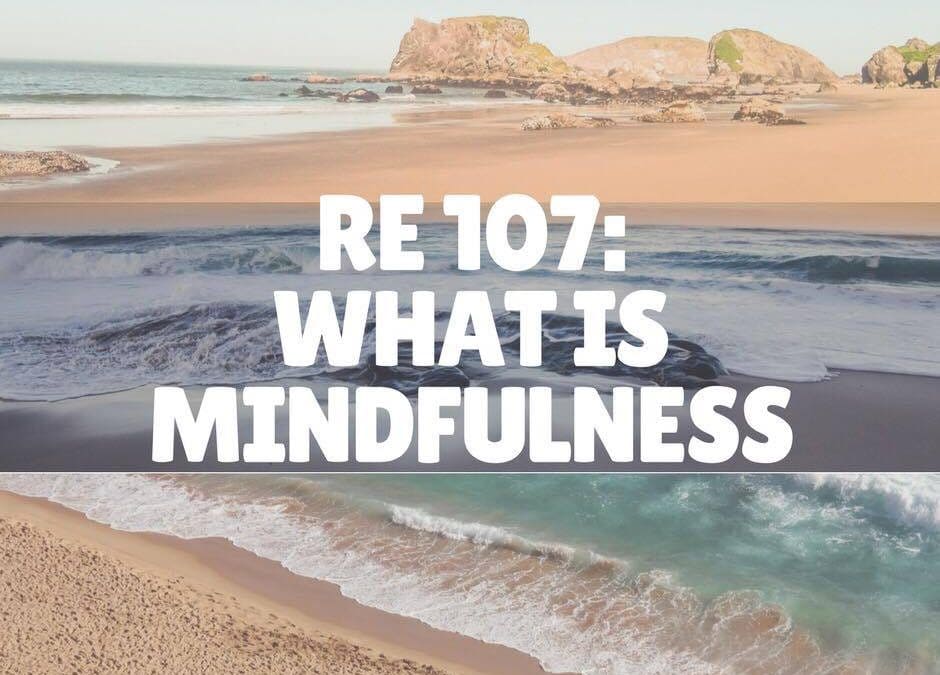
by Paul Churchill | Mar 6, 2017 | Podcast
Podcast: Play in new window | Download
Subscribe to the Recovery Elevator Podcast Apple Podcasts | | More
Paul G with 10 years of sobriety, shares his story……
What is mindfulness? Mindfulness is basically a type of coping strategy. It is being in the moment, paying attention and being present.
Why should we practice mindfulness?
- It is good for our bodies It helps boost our immune system
- It increases positive thoughts while decreasing negative thoughts
- It changes how the brain functions and helps us focus
- It enhances our relationships
Unfortunately many alcoholics have terrible coping skills and we can live entirely in our head. Mindfulness training can help us stay in the moment. It is the art of being, not doing.
SHOW NOTES
[ 9:05 ] Paul C Introduces Paul G from Hope Rehab in Thailand. How long have you been sober?
Paul G – over 10 years. My first round of rehab happened when I was 19 years old.
[ 11:00 ] Tell our listeners a little about yourself.
Paul G – I am originally from Ireland but now live in Thailand. I am married and have a 10 year old son
[ 11:30 ] Did you ever try to implement rules to control your drinking?
Paul G – I did not have any rules in place at the beginning of my drinking life. Alcohol gave me comfort. After taking my first drink, I finally liked who I was and where I was. I moved to England and worked in a bar where I was able to drink all day long. A girlfriend convinced me to leave that occupation and I realized I had not gone a day without drinking in many years. I went to rehab for her, not because I wanted to stop drinking.
[ 16:14 ] Paul C and Paul G discuss his first stay in rehab.
Paul G – After I left rehab, I did not stay sober. I knew if I drank, I would lose my girlfriend. I chose booze over the girl. I got back into school and immediately went on a drinking bender. I was having panic attacks and suffered from alcohol induced depression. I was just hoping for someone to get me psychiatric help because I could not even complete the forms to have myself admitted to the hospital.
[ 19:11 ] So you basically drank yourself homeless?
Paul G – Yes, I was walking the streets and wandered in to a recovery house. They sent me to a dry house for 1 year and stated that I did not need psychiatric help. My panic attacks had all been alcohol induced. I stayed sober for 2 years.
[ 20:40 ] What happened after 2 years?
Paul G – I got sick of thinking and talking about recovery. I had been so enthusiastic in early recovery but was starting to feel like I was missing out on something. The mental obsession had returned. Perhaps I had opened that door again. I was going to bars with my sober friends but it was a very slippery slope.
[ 23:00 ] What was your bottom like?
Paul G – I drank for another 10 years because I felt like I had some control in the beginning. I did not end up back in that poor mental state so it gave me a sense of false confidence. Things eventually did go downhill and I moved to Saudi Arabia thinking that because it is a dry country, it would make it easier to stop drinking. My first day on the job, I was shown the bins where all of the illegal alcohol was stored. Booze was readily available and even stronger since it was home brewed. I knew that I would die if I stayed to I moved to Thailand
[ 28:00 ] How did you get introduced to meditation?
Paul G – I have been into meditation for years. After every relapse I would always go back to meditation. My problem was that I was using meditation to escape reality instead of using in to get “into” reality. I would use meditation to get into a blissful state when it should be used to get grounded.
[ 31:22 ] How is meditation similar to mindfulness?
Paul G – Mindfulness is the ability to objectively observe our thoughts. It allows us to take a backward step and see our thoughts. Mindfulness is a part of meditation.
[ 32:11] What are some things we can do to enter into a mindfulness state?
Paul G – You need to bring your thoughts to a physical sensation. We use feel beads in therapy. With true meditation, you start to see how your mind has been tricked. The craving, which is that voice in our heads, is not always obvious. Mindfulness helps you identify what your brain is doing and the craving loses its’ power. Addiction is like having an allergic reaction to our emotions.
[ 37:35 ] Rapid Fire Round
- What was your worst memory from drinking? Sitting is a bar after learning that my liver was damaged from drinking.
- Did you ever have an “oh-shit” moment? Selling my girlfriend’s music tapes for booze
- What’s your plan moving forward? Showing up for life every day
- What’s your favorite resource in recovery? Inside timer App
- What’s the best advice you’ve ever received (on sobriety)? You will never regret not drinking yesterday
- What parting piece of guidance can you give listeners who are in recovery or thinking about quitting drinking? If you are really willing to change, there is an option for you.
- You might be an alcoholic if…… You keep saying you are sorry for things that you are not really sorry for.
******Congratulations to Allison for reaching 1 year of sobriety! You rock!******
Resources mentioned in this episode:
Recovery Elevator Retreat – (A Personal Recovery Wellness Retreat – non 12 step based)
Connect with Cafe RE– Use the promo code Elevator for your first month free
Sobriety Tracker iTunes
Sobriety Tracker Android
Sober Selfies! – Send your Sober Selfie and your Success Story to info@recoveryelevator.com
Inside Timer App (mindfulness app found in iTunes)
Podcast – Hope Rehab Mindful Compassion Show (www.hoperehabcenterthailand.com)
“We took the elevator down, we gotta take the stairs back up, we can do this!”
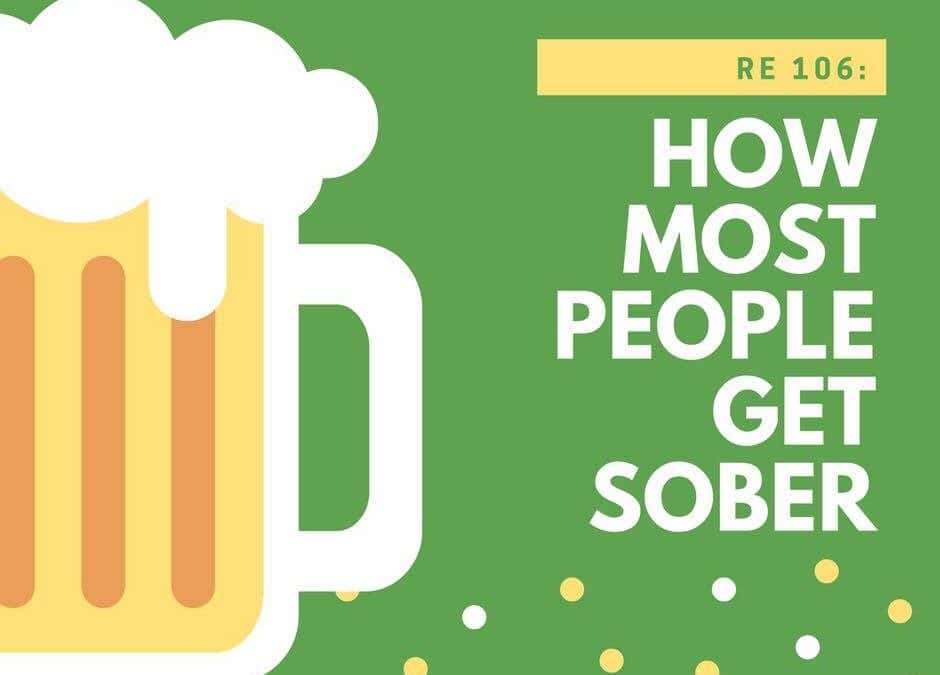
by Paul Churchill | Feb 27, 2017 | Podcast
Podcast: Play in new window | Download
Subscribe to the Recovery Elevator Podcast Apple Podcasts | | More
Henk, 5 years sober, shares his story…..
How do most people get sober? We all assume that it is through rehab or 12 step programs and that your odds are slim if you try to do it on your own (www.addiction.com). During the 1980’s an idea was promoted that the only way you could get and stay sober was through rehab programs or AA. However, a study that followed problem drinkers from 2001-2005 showed that 85% of these drinkers got sober without any outside help (a phenomenon known as spontaneous or natural remission recovery). It should be noted that the majority of these people still had strong support systems at home and in their community.
SHOW NOTEs
[ 7:53 ] How long have you been sober?
Henk – I have been sober since Sept 13, 2010. I am originally from Holland but now live in Thailand where I for work for Hope Rehab. I also love to ride motor bikes.
[ 9:30 ] When did you realize that you had a problem?
Henk – I have been in and out of various treatment facilities since I was 23. At the age of 13, I began drinking and using drugs. This quickly escalated into selling drugs at the age of 15. By the time I turned 30, I had been in 5 long term treatment programs. They did not work because I did not want to stop drinking, I just wanted the problems to stop.
[ 11:15 ] Do you think that alcohol is the gateway drink?
Henk – Yes, when I drank I became a completely different person. We believe that it is more alcohol than marijuana that leads to destructive behavior.
[ 12:29 ] Paul and Henk discuss what lead him to finally seek treatment
Henk – My family did not want anything to do with me anymore. I had racked up high debts and I could not even take care of myself. I was living in dilapidated conditions. I finally realized that you cannot run away from what is in your head. You cannot drink those thoughts away.
[ 13:37 ] What was the biggest difference between your last 2 rehabs?
Henk – I had lost everything and was mentally and physically dying. I decided that I could not go back to that kind of life.
[ 15:00 ] Paul and Henk discuss the “gift” of desperation
Henk – The gift of desperation is very painful but it helped get me clean. It made me realize what I had done to myself.
[ 16:32 ] Paul and Henk discuss the value of a fishing rod
Henk – Right after leaving treatment, I found that I had no hobbies and no friends. I had to find some type of higher power and since I had a love of nature, I decided to buy a fishing pole. Anytime I was bored, angry, and lonely or upset, I would go to the canal and sit with my fishing pole. I would feel the wind and watch the water move. It really helped settle my mind. I also bought a pair of running shoes and began running. It was time to move forward.
[ 21:47 ] Paul and Henk discuss the classroom exercise he observed while visiting Hope Rehab in Thailand
Henk – I try to make the patients understand that work is needed if you want to remain sober. Relapse rates are very high and I try to stress the importance of putting in the effort. You want to remain sober? You’ve got to do the work.
[ 25:20 ] How are you staying sober now?
Henk – My sobriety is still my #1 priority. I have a sponsor and still go to meetings, especially when I travel. Since I work in a rehab facility, I am constantly seeing new comers. It helps remind me that addiction is so painful. When I reached 1 year of sobriety myself, I had tears running down my face because I could not believe that I had done it!
[ 27:50] What are your thoughts on relapse?
Henk – Relapse is a sign of some type of reservation in recovery. As alcoholics, we can think of a million reasons to drink. Nothing that happens to you justifies a relapse. Drinking only makes it worse.
[ 30:39 ] Rapid Fire Round
- What was your worst memory from drinking? Sitting by myself at Christmas one year. My life was a mess, my girlfriend had just left me and no one wanted anything to do with me.
- Did you ever have an “oh-shit” moment? When I crashed my scooter in front of all of my friends
- What’s your plan moving forward? Right now I am feeling very stable and calm in my recovery. It helps that I love where I work.
- What’s your favorite resource in recovery? Intherooms.com, meetings, and the book Living Sober
- What’s the best advice you’ve ever received (on sobriety)? “Stop being a dick Henk!” and “Take the cotton out of your ears and put it in your mouth.”
- What parting piece of guidance can you give listeners who are in recovery or thinking about quitting drinking? The best thing you can do for yourself is get sober. I used to think that my life would be over if I could no longer party. Life has only just begun for me since I got sober.
- You might be an alcoholic if………you think alcohol is the solution
Resources mentioned in this episode:
“We took the elevator down, we gotta take the stairs back up, we can do this!”
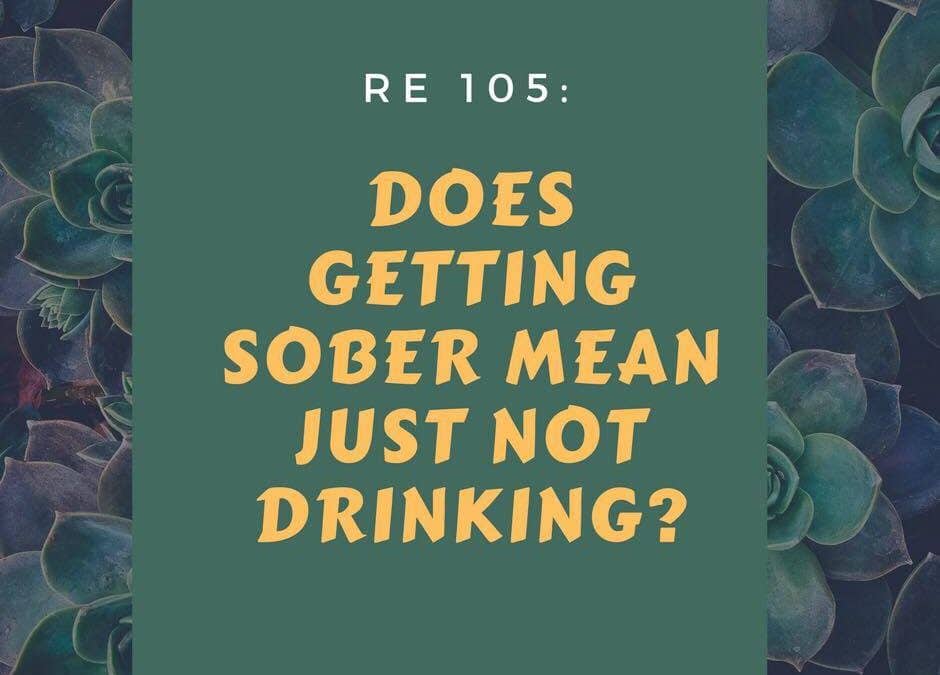
by Paul Churchill | Feb 20, 2017 | Podcast
Podcast: Play in new window | Download
Subscribe to the Recovery Elevator Podcast Apple Podcasts | | More
James, with 79 days sober, shares his story……..
Paul starts the show by recommending Annie Grace’s video course on how to get started in sobriety and how to make lasting changes. www.recoveryelevatory.com/Annie. Enter promo code elevator50 to receive $50 off.
Does getting sober mean simply not drinking? No – not drinking equals a dry drunk. Getting stuck as a dry drunk also means that your life will not be as happy and fulfilling as it should be. This can lead to a slow downhill decline until you pick up drinking again. If giving up alcohol feels like a punishment, than you have entered into dry drunk land (www.alcoholrehab.com). Recovery does not mean returning to the life you had before drinking; it means moving through the challenges of what life throws your way.
Symptoms of a dry drunk:
- Low stress tolerance
- Picking up other unhealthy choices (lay off the smokes Paul!)
- Loneliness
- Denial
- Refusal to accept what recovery means
- Romancing the drink
- Self-pity
- Being over-prideful
Getting involved in meetings and being engaged in your recovery program can help you recognize these symptoms. If you feel like a dry drunk, you should examine your program to see what is missing.
SHOW NOTES
[ 12:30 ] Paul Introduces James who has been sober for 79 days. James feels lucky that the gifts and goodness of sobriety have come to him already.
[ 13:15 ] James is 29 years old, lives in NJ and sells software. He enjoys going to the gym daily and golfing
[ 14:53 ] James discusses his drinking history
James – I was your typical teenage binge drinker. When I went to college, I got involved with religion and the Bible and really did not drink much. After college, I ended up taking a job on Wall Street where drinking and drugs were prevalent. Even though I was drinking just like everyone else, I still struggled with my internal beliefs (Why are we all here?). I was making good money on Wall Street but my addictions kept me from making emotional connections.
[19:25 ] James discusses how drugs and alcohol were only the solution. Reality was the real problem.
James – I wanted to be able to look back on my life with pleasure regarding my relationships and the bonds that I had formed. Alcohol and drugs were keeping me from reaching this ultimate goal. I had tried to control my drinking but finally the pain was just too much to take.
[ 21:06 ] James discusses his rock bottom
James – I had been skidding against the rock for quite a while. I would go 3-4 weeks without drinking and then would just tear it up. This behavior went on for 2-3 years. It was like having 2 separate lives. I finally checked myself in to an outpatient rehab. This allowed me to start reconnecting to other people in the program.
[ 25:00 ] What was it like after connecting with these people?
James – I immersed myself in recovery (reading, writing, dialytic behavior therapy). It was hard getting out of my comfort zone but I started communicating better with my girlfriend, I stopped lying and began telling everyone I was done with drinking.
[ 28:30 ] What were the reactions of the people you were telling?
James – I was surprised at the amount of support I was receiving. My friends would joke that I should have gone to outpatient rehab 3 years earlier. I also felt like people respected me more for the work that I was doing in recovery.
[ 30:21 ] What is your plan moving forward?
James – I am taking it 1 day at a time. Not drinking enables me to have the life that I want to have. I am trying new things and keeping recovery fresh.
[ 31:54 ] Paul and James discuss the passing of his father and how he is dealing with those feelings without using alcohol.
James – I feel like I have only scratched the surface of life without alcohol. The full extent of my father’s passing has not hit me yet. I want those feelings to come even if by a freight train.
[ 32:58 ] Which recovery tool is resonating with you right now?
James – Outpatient rehab has been the most helpful so far.
[ 34:12 ] Rapid Fire Round
- What was your worst memory from drinking? When I was arrested and had to see my family’s faces the next day.
- Did you ever have an “oh-shit” moment? After my grandfather had passed away, I went out drinking and drugging. The next morning I woke up with the terrible feeling that something wasn’t quite right.
- What’s your plan moving forward? Keeping up with my DBT and trying to be of service to others
- What’s the best advice you’ve ever received (on sobriety)? 1 size does not fit all
- What is DBT and what is it like? It helps with mindfulness and with staying in the moment. It teaches you how to not be impulsive.
- What parting piece of guidance can you give listeners who are in recovery or thinking about quitting drinking? Take a good hard look at yourself and try to find out what your underlying issues are. Get real with yourself.
- You might be an alcoholic if….. You continually feel depressed and anxious after a night of drinking.
Resources mentioned in this episode:
Recovery Elevator Retreat
Connect with Cafe RE– Use the promo code Elevator for your first month free
Sobriety Tracker iTunes
Sobriety Tracker Android
Sober Selfies! – Send your Sober Selfie and your Success Story to info@recoveryelevator.com
May 20th in Bozeman MT is the AALRM (run for recovery). You can sign up for a virtual run at www.recoveryelevator.com/run. Enter promo code recoveryelevator to receive $5.00 off
DBT (dialytic behavior therapy) for people struggling with substance abuse problems, is a way to achieve self-acceptance while simultaneously accepting the need for change. There are four basic aspects to DBT: mindfulness, interpersonal relations, emotion regulation, and distress tolerance.
“We took the elevator down, we gotta take the stairs back up, we can do this!”
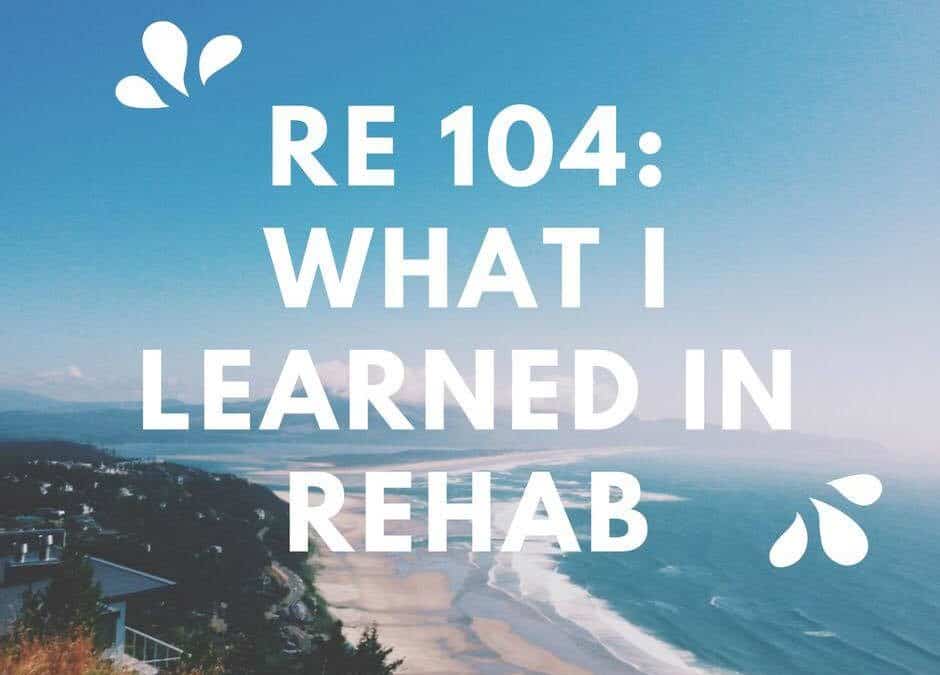
by Paul Churchill | Feb 13, 2017 | Podcast
Podcast: Play in new window | Download
Subscribe to the Recovery Elevator Podcast Apple Podcasts | | More
James, who has been sober since Dec 5, 2016, shares his story……
Paul starts the show recounting his 2 weeks visiting Hope Rehab in Thailand.
What I learned in Rehab
- People came for other drugs but quickly realize that alcohol was the real issue
- Most people were still in denial of their addiction and will not stay sober
- A lot of the clients were just going through the motions
- Addiction does not segregate; there were people from 4 continents, lawyers’ doctors, social workers, accountants, etc.
- Thailand is hot and wild pythons are a real thing
- Alcohol is communal. I have the same story as a guy in Malaysia and we had an instant connection within 5 minutes
- We are the lucky ones
- Some people are close to hitting the “fuck it” button at all times
- If you experience mild depression once, you have a 16% higher chance of experiencing it again.
- It takes your body 3 days to recuperate from 20 minutes of stress
- The old saying, “It takes 21 days to learn a new habit,” is a myth. It really takes 66 days. Once a habit’s circuity is created it can never be unlearned, but a new habit can be started.
- NVC or non-violent communication is the way to solve 99.4% of problems.
- Watching TV does not lower cortisol levels, but reading does
- Cortisol from stress impairs learning new things and problem solving
- The ego lives in the past and future, only the heart can live in the moment
- Even though the Recovery Elevator podcast is free and rehab may/may not be free, we’ve all paid a tremendous price with our pain and suffering
- The road to and in recovery narrows
- The problem is not the problem
- We need to find a way to stop the relationship with the chemical alcohol. It boils down to us not being satisfied
- I am not powerful and I am not special when it comes to alcohol.
- Step 0 = Trying everything to drink like a normal person (moderation, only beer, no hard alcohol, etc.)
- To quit drinking, we only need to quit one thing. Everything!
- The solution to quitting drinking is to have a spiritual experience without alcohol
- You must find a higher power and it cannot be yourself. Your ego is not your amigo!
- There is a lot of laughter in rehab
- People stop maturing emotionally and spiritually once addiction takes hold
- Resentments are offensively dangerous
- You do not have a chance at sobriety unless responsibility falls on your own shoulders
- Buddhism basically consists of 5 pillars that prevent harm to ourselves and others
- There is an AA waltz; 1 step, 2 step, 3 step drink. That damn 4th step.
- Addicts and alcoholics are a sensitive group of people. I was a summer camp counselor in 2007 and it felt at times we were dealing with teenagers. Tammy said this, and Roger said that.
- Sometimes we will worry over not having anything to worry about. Don’t worry Paul, there will always be something to worry about
- We tend to not relapse over divorce, bankruptcy, or a family death. A broken shoelace? Bring on a drink!
- A counselor asked a group to do an exercise each night for 1 week. The following week only 20% of the participants had done as the counselor has asked. The counselor then responded with “and that is why only 20% of you will stay sober after rehab, the majority don’t go through the work.”
- My addiction told me that I didn’t need to do the rehab work since I have been sober for over 2 years. Nice try Gary (my addiction).
SHOW NOTES
[ 9:28 ] Jeff’s full e-mail to Paul is posted on the Recovery Elevator blog
www.recoveryelevator.com
[ 10:30 ] Tell us a little about yourself and when your last drink was.
Jeff – My last drink was on 12/4/16. I am originally from Denver, married and have a 17 year old son. I am entrepreneur who likes to fish and wakeboard.
[ 11:48 ] Did you ever try to put rules in place in order to control your drinking?
Jeff – I really had not tried to stop until this past fall. I would only spend a specified amount of money on alcohol or only drink on the weekends. This tango dance with booze never worked.
[ 14:08 ] Why do you call yourself a high bottom drinker?
Jeff – It took me a long time to label myself as a problem drinker. I got married young, I owned a small business, and was a normal drinker for a long time. I was able to justify my drinking because my life was good up to a point.
[ 17:57 ] When did you realize that you were not a normal drinker?
Jeff – By my late 20’s, my drinking was really progressing. I was living for the weekend parties with my neighbors. This was normal behavior among all of us. We would also hold church services at the house in which drinking was included.
[ 21:43 ] Walk us through your first DWI.
Jeff – We had gone out with all of the neighbors. Our designated driver had started drinking so I offered to drive us to the next restaurant. When I was pulled over, it was more embarrassing than anything. By 2008-2009, I was suddenly divorced and had primary care of my son. I was full of self-pity and this justified my drinking. Later that year I was out drinking and called my cousin to come pick me up. She had a few cocktails at the bar as well. She was driving us home later and swerved off of the road and we hit a concrete barrier. I still continued to drink after this.
[ 28:47 ] Paul and Jeff discuss how he successfully cut back drinking in 2016
Jeff – I still did not think that I had an alcohol problem. I thought it was more of a relationship problem. My current wife’s child was in the hospital and I suddenly thought that I did not want to end up there because of my drinking. I had a good marriage and a rock star son. I did not want to lose everything that I had.
[ 33:27 ] Tell us more about your obsession with alcohol.
Jeff – I could not get past the first step of admitting that my life was unmanageable. I still think that I can manage my life, just not as well. I finally realized that I couldn’t manage my life if I were dead. I started listening to the RE podcast.
[ 38:42 ] How do you feel now?
Jeff – I feel great on most days. It was hard over the holidays and I’ve had to break old traditions that involved alcohol. My wife keeps me accountable and suggested that we make new traditions. The RE podcast helps remind me of where I was.
[ 41:57 ] Rapid Fire Round
- What was your worst memory from drinking? I was supposed to be the Officiant at a friend’s wedding. I was feeling really down towards marriage at the time and proceeded to drink all night before the wedding. I was not competent to perform the wedding the following day.
- What’s your plan moving forward? Keep listening to podcasts, reading Annie Grace’s book, “This Naked Mind,” and staying open to what my higher power has in store for me
- What parting piece of guidance can you give listeners who are in recovery or thinking about quitting drinking? Listen to RE podcast episode 99. Ask yourself, “Which person do you want to be?”
********If you want to stay sober, you’ve got to do the work********
Resources mentioned in this episode:
Recovery Elevator Retreat
Connect with Cafe RE– Use the promo code Elevator for your first month free
Sobriety Tracker iTunes
Sobriety Tracker Android
Sober Selfies! – Send your Sober Selfie and your Success Story to info@recoveryelevator.com
“We took the elevator down, we gotta take the stairs back up, we can do this!”
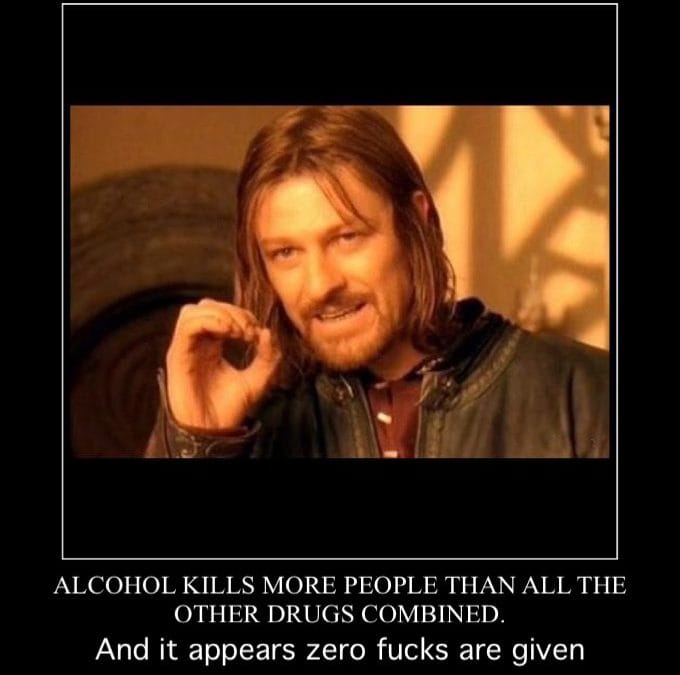
by Paul Churchill | Feb 12, 2017 | Blog, Sober Meme, The Bottom, The first Year
Sober Recovery Memes
One of my favorite things to do while traveling is create sober recovery memes. They are all related to my memories of drinking and creating these recovery memes is a great way to add humor to my recovery. I’ve created over 100 sober memes and plan to keep on making these recovery memes as long as I am sober. Well, if I do drink, which isn’t the plan, I’ll continue to make memes about how drinking sucks.
You can see that the rock star in my life is my best friend Ben who is a standard poodle. When drinking, I often skipped his meals, didn’t deliver on promises of taking him on walks and overall was a sub par dog owner. Now things are much different as these sober recovery memes indicate.
Humor in recovery is essential and sober memes is a great way for me to express my creativity and smile. Sure there were tough times in the past when I was drinking, but looking back on these drunken moments and letting go is a big part of my recovery.
Be sure to add plenty of laughter to your recovery and don’t take yourself too seriously.
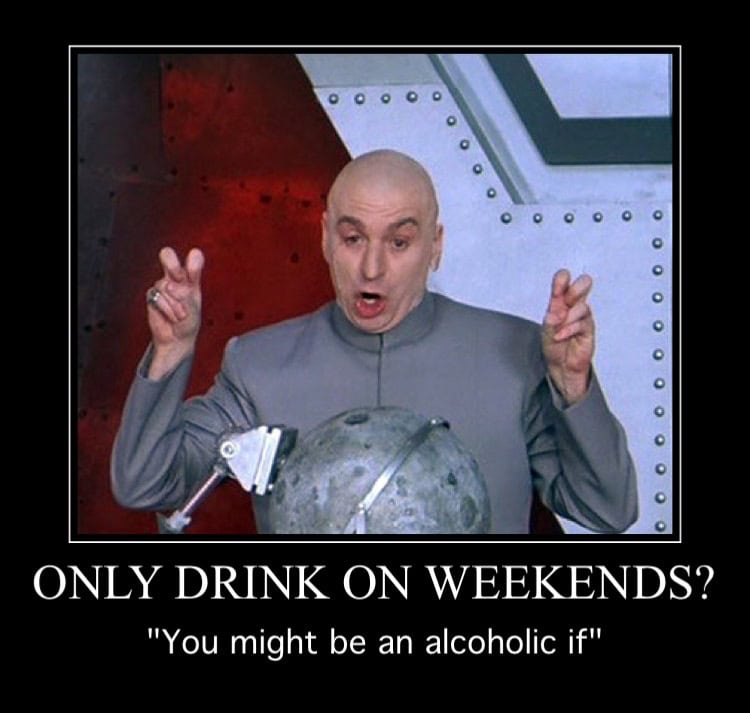
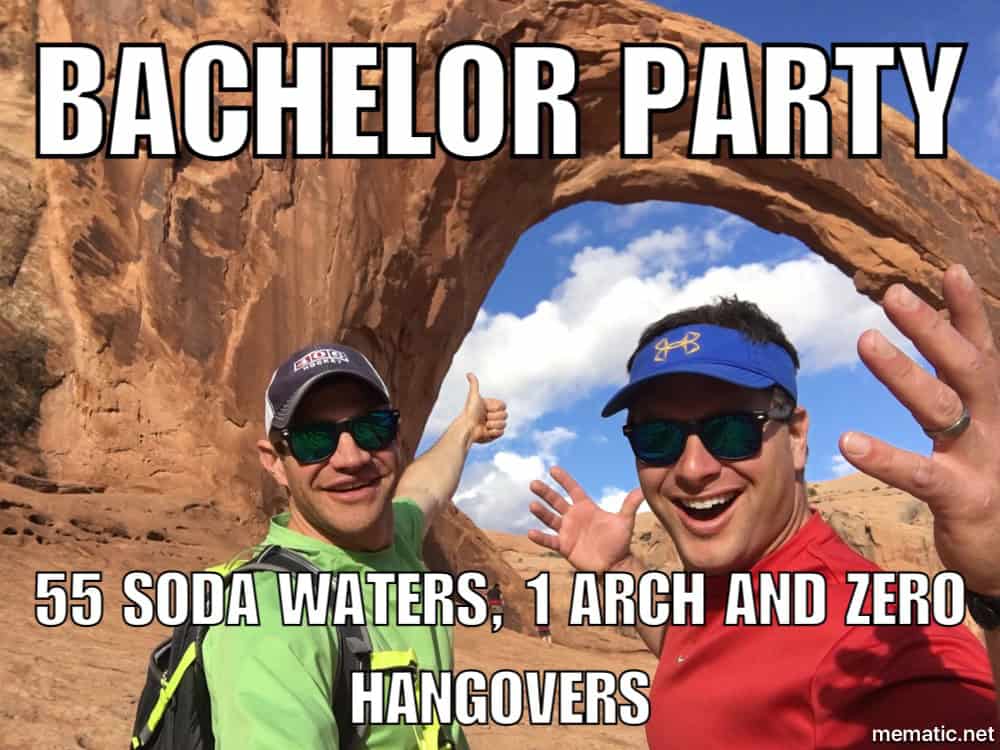
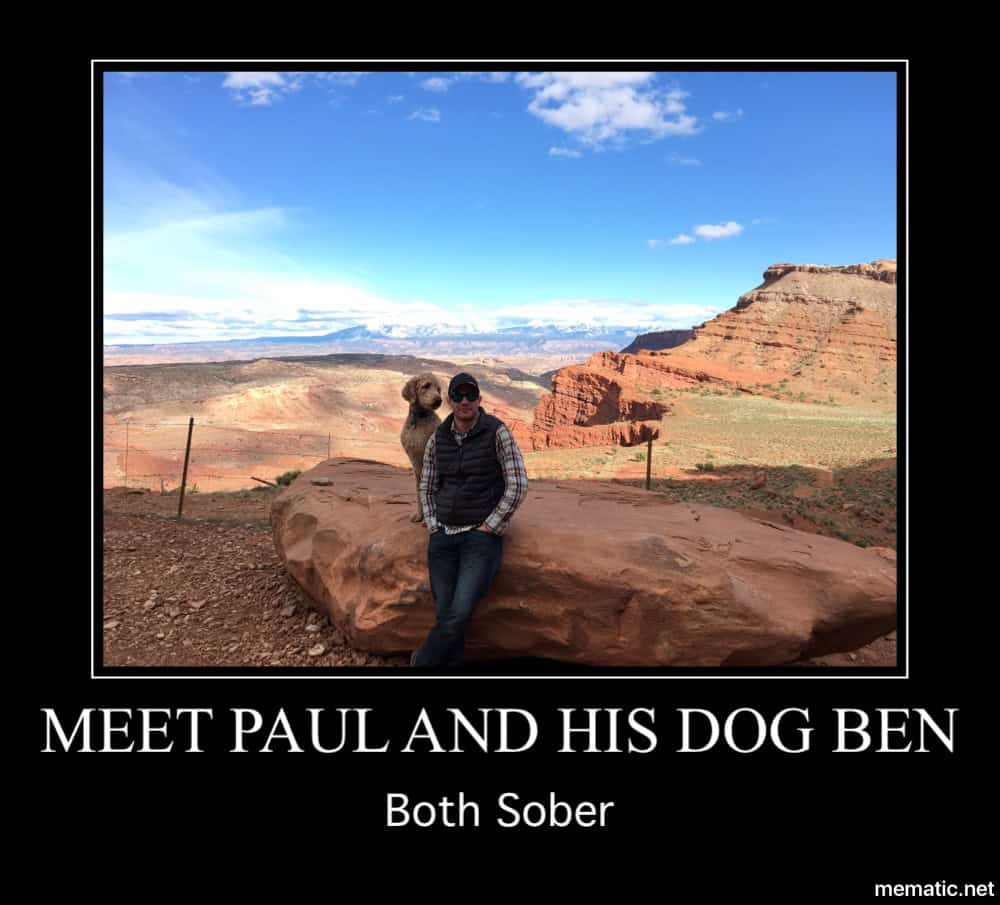
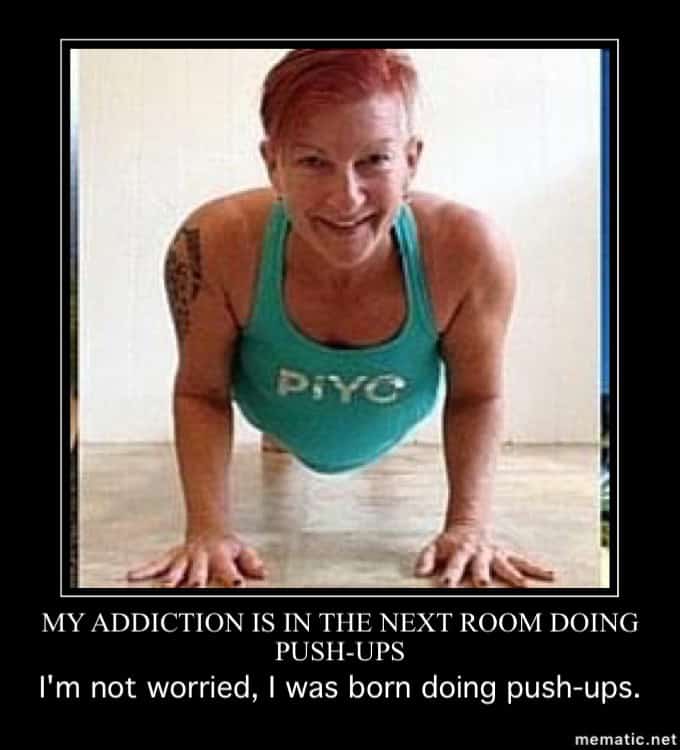
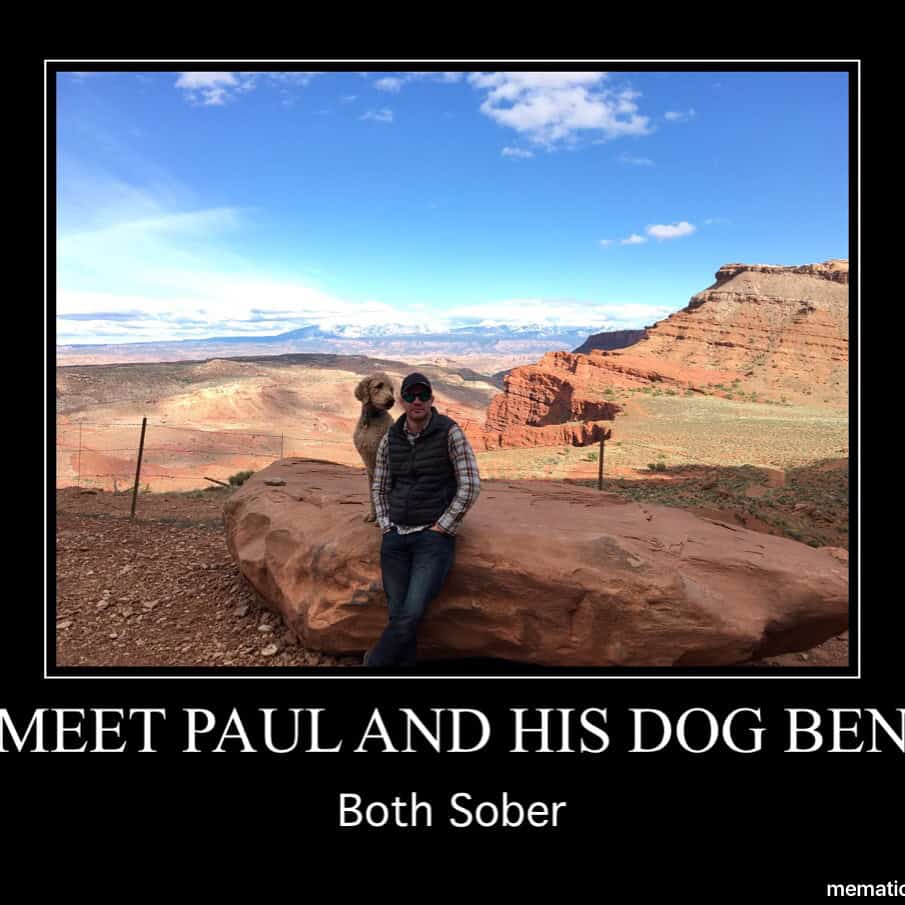
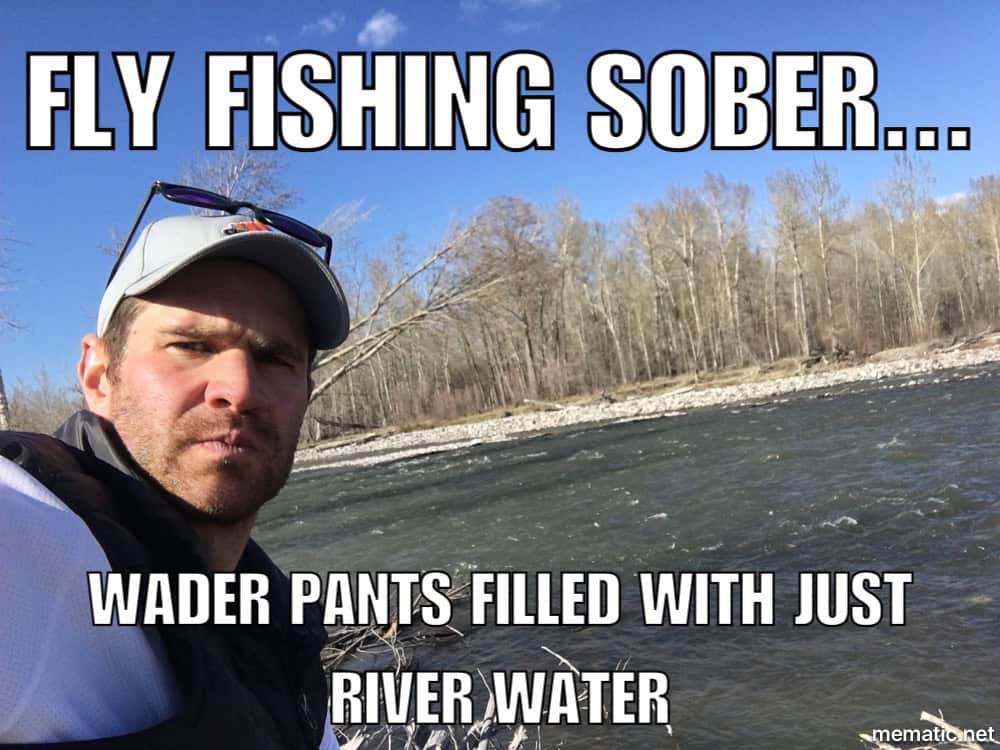
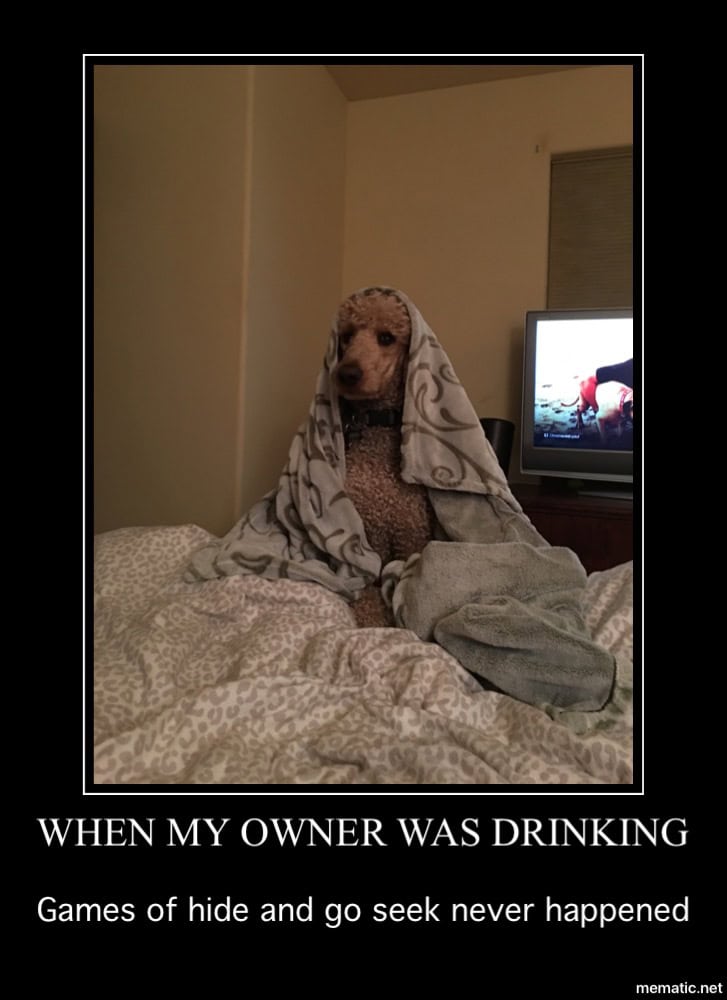
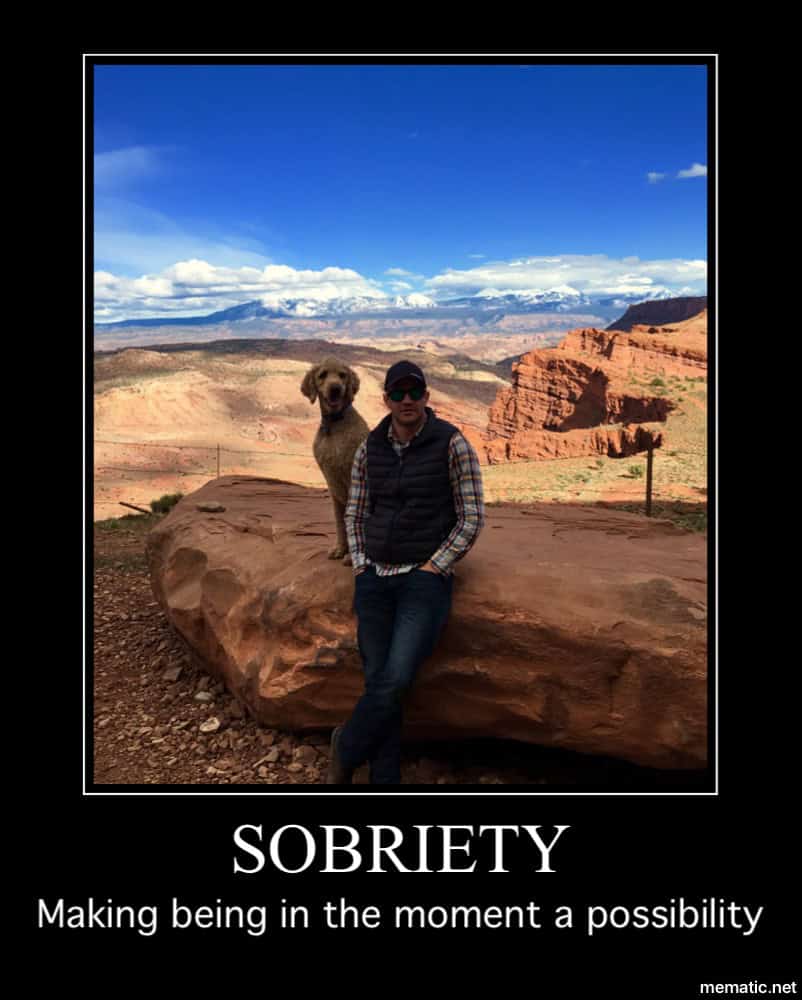
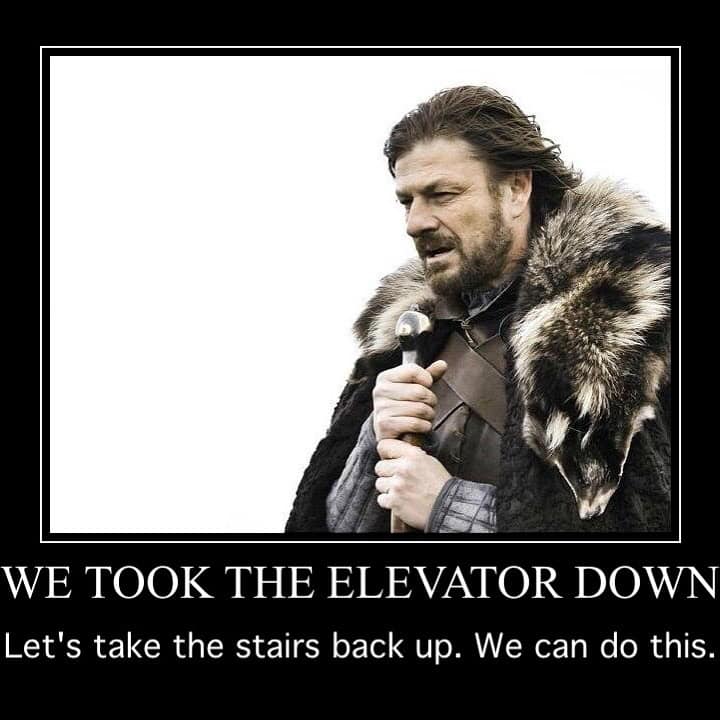
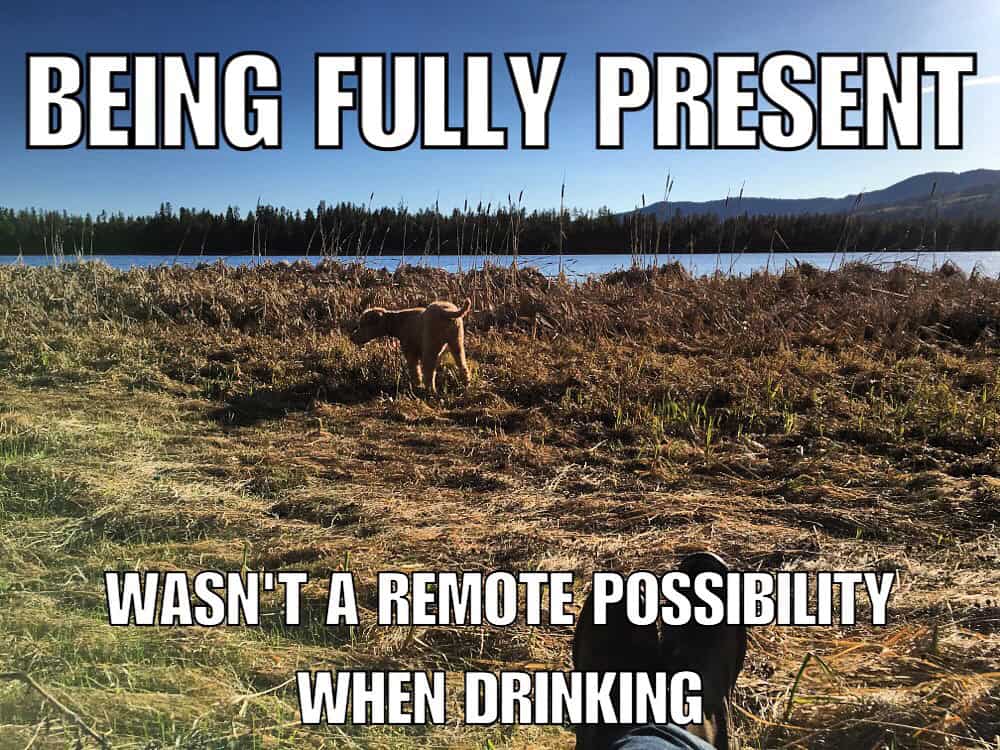
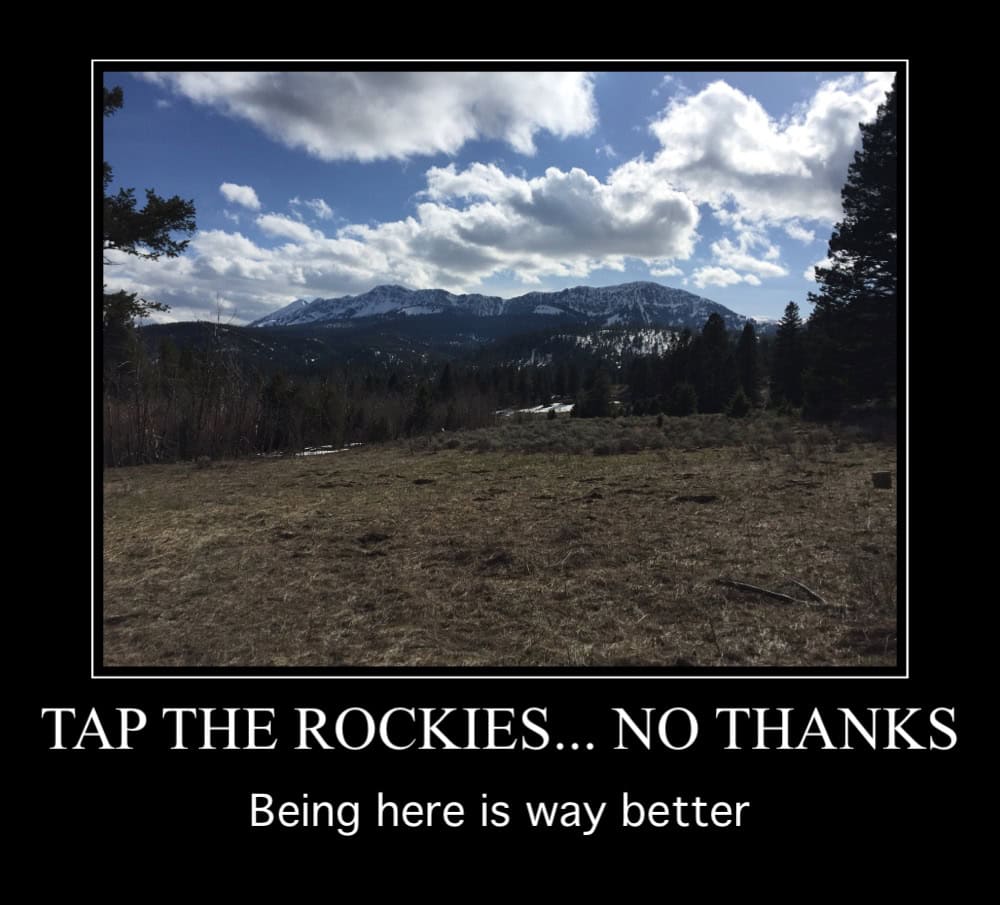
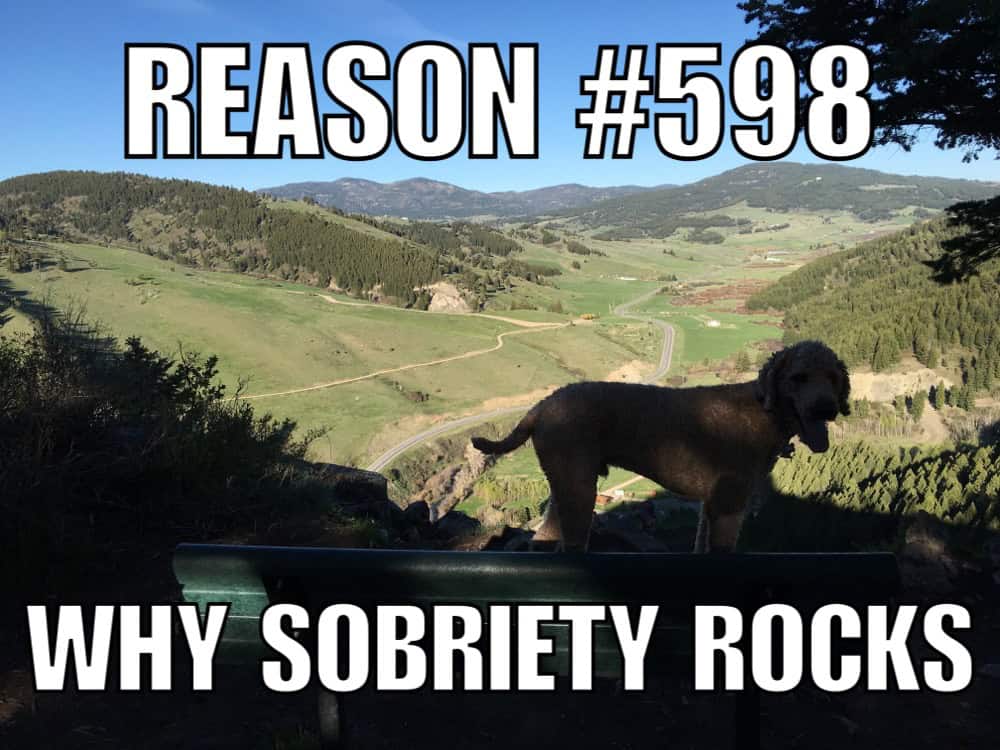

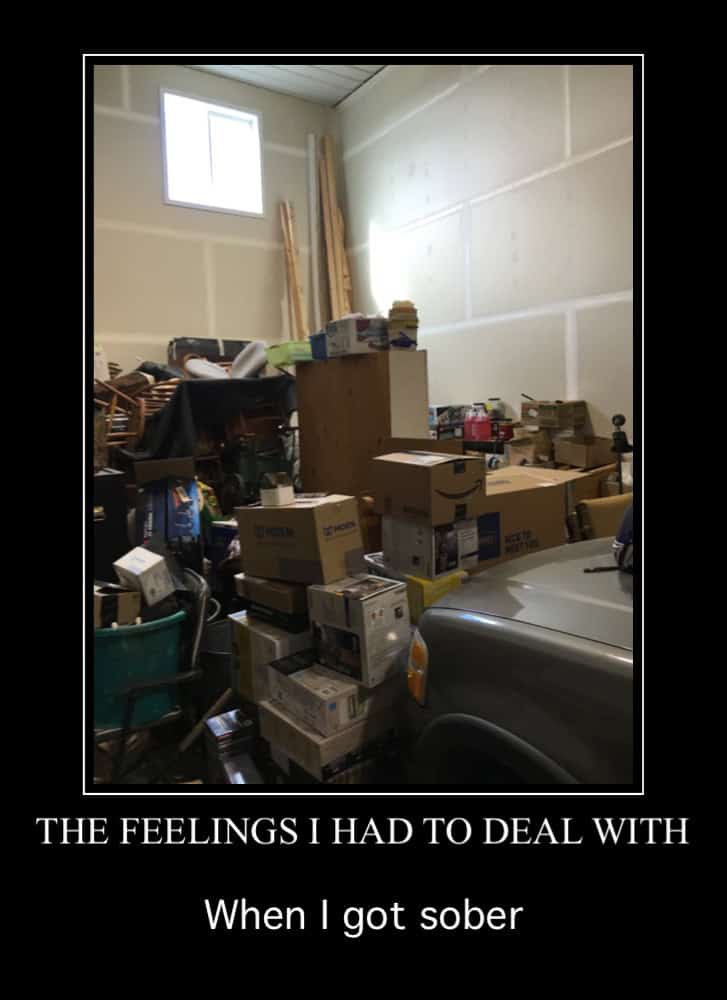
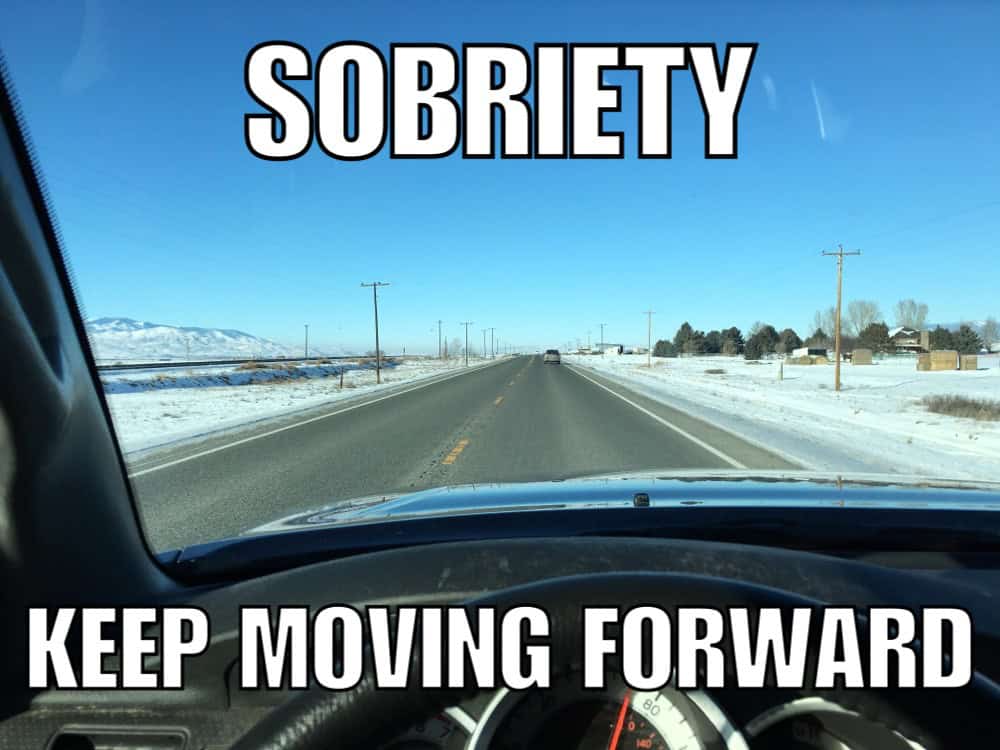
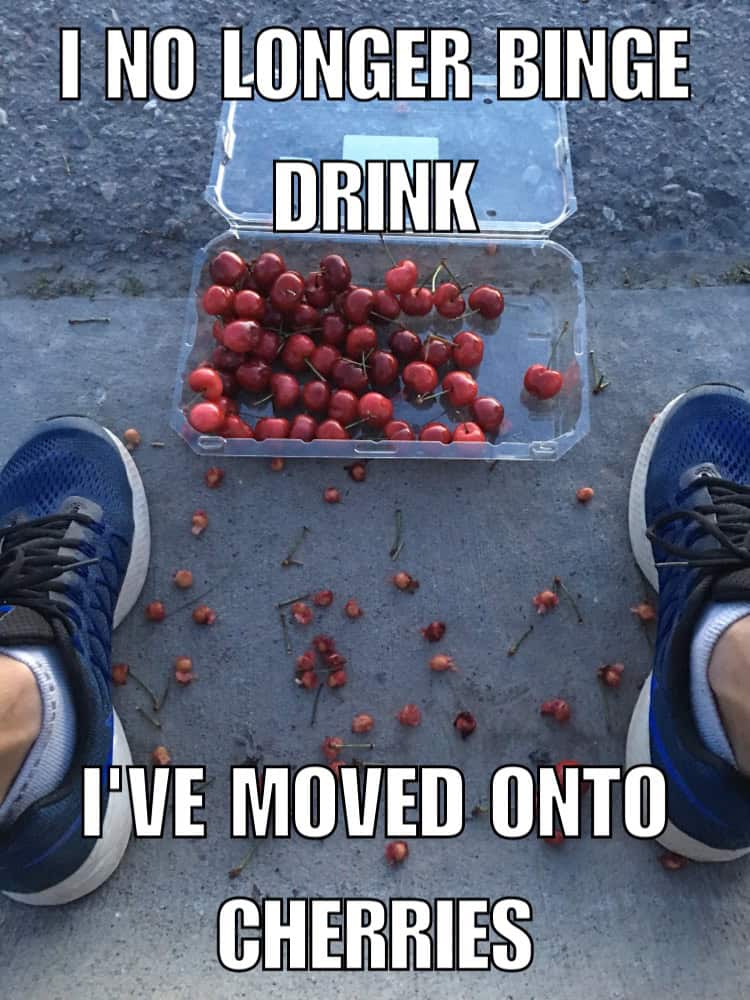
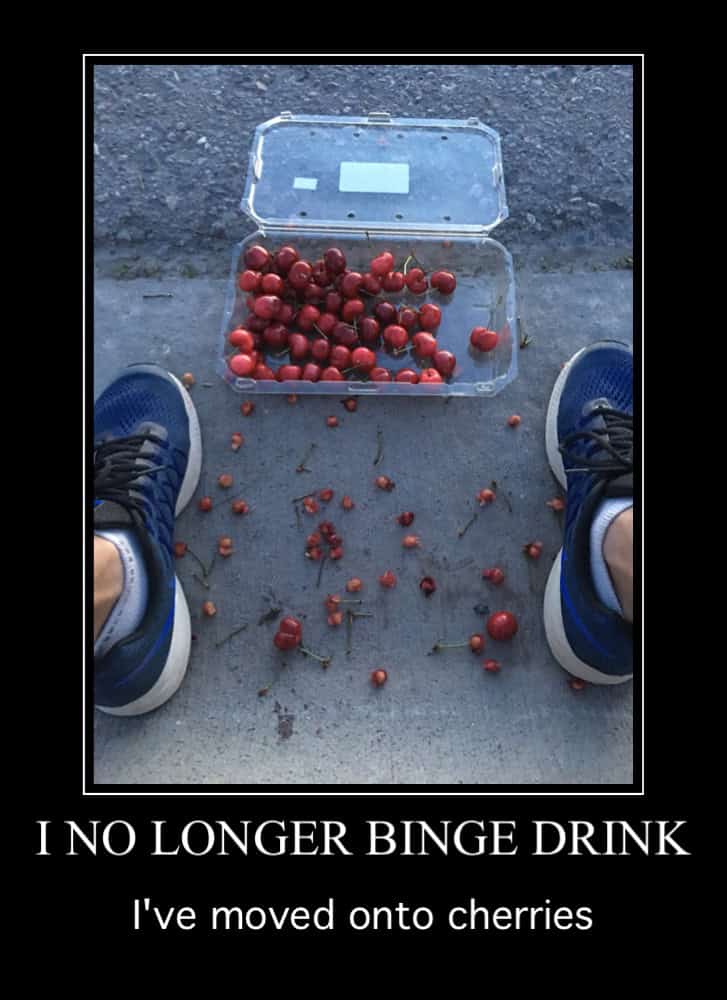
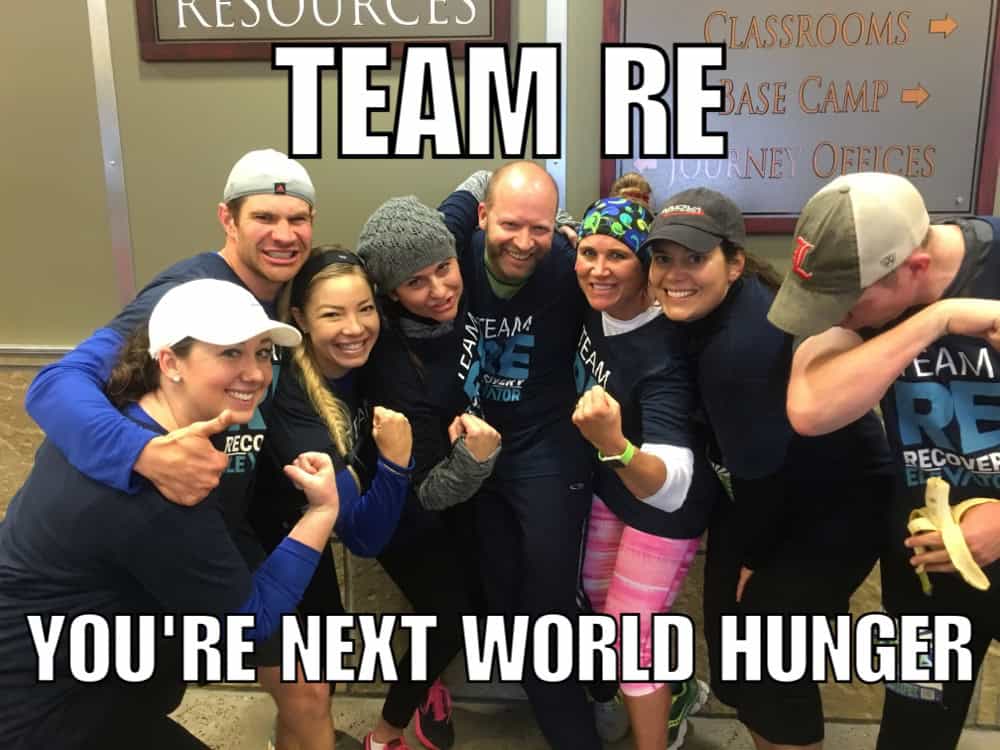
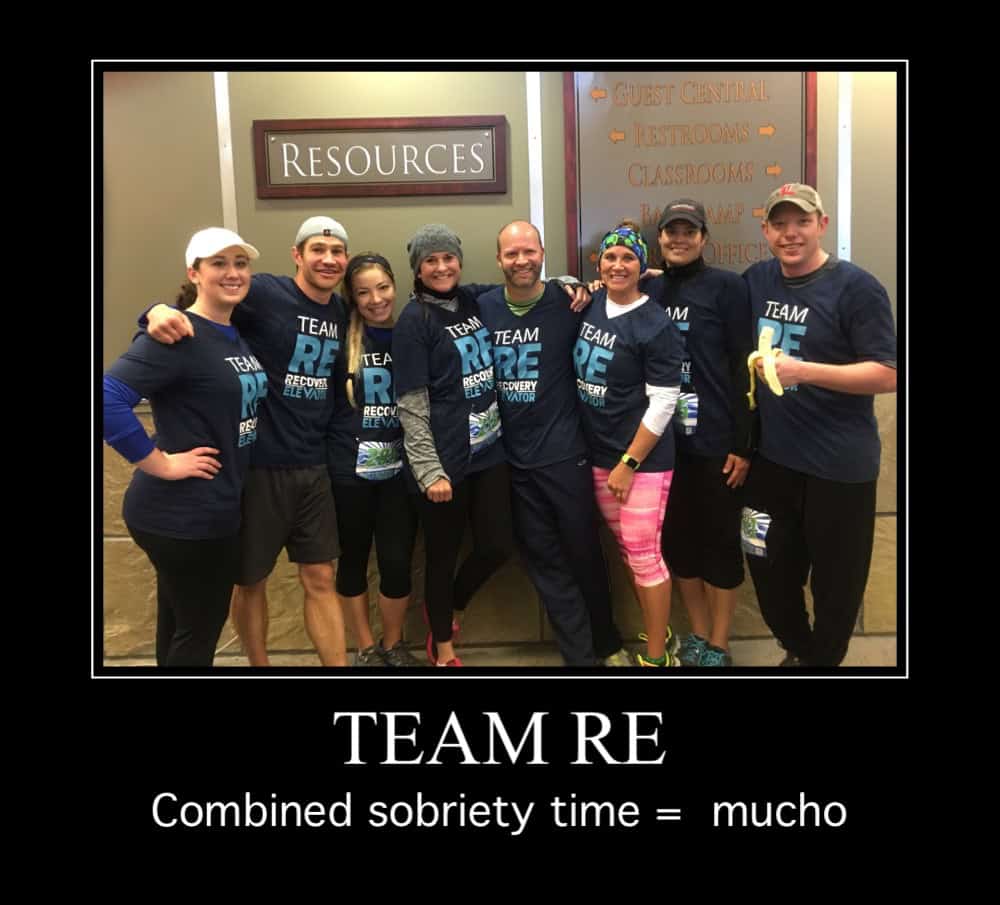
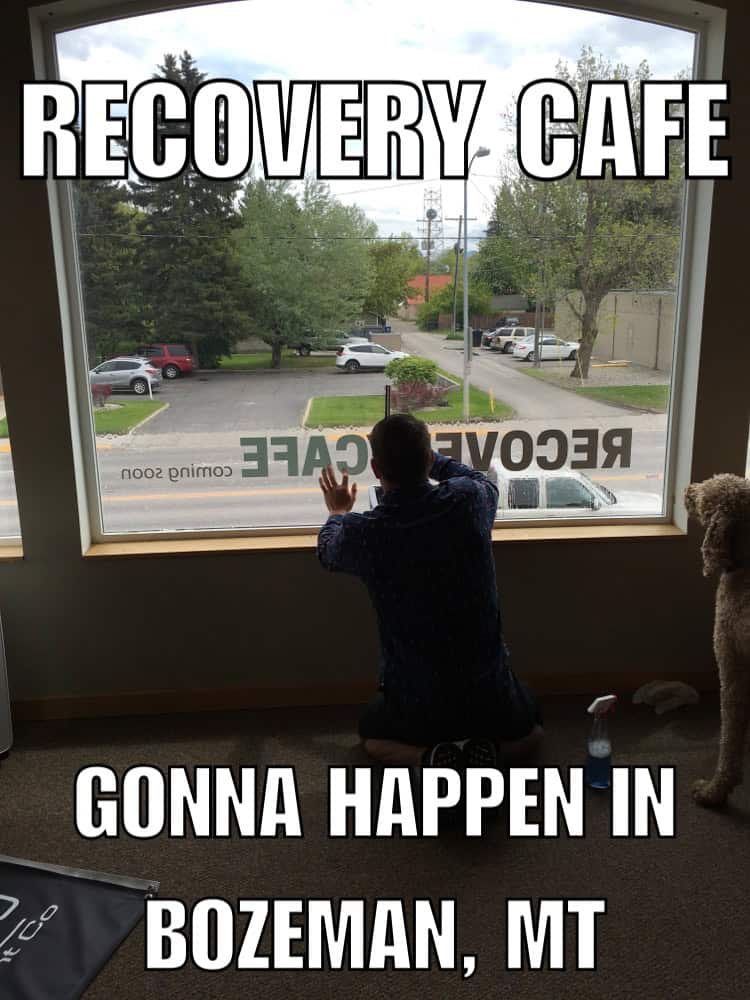
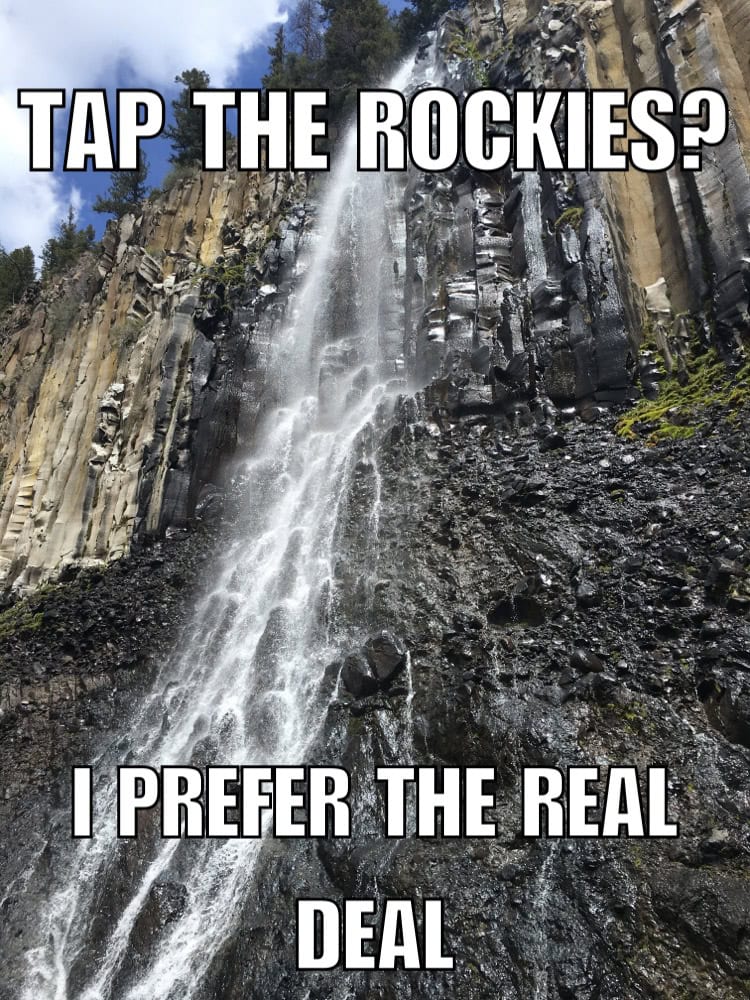
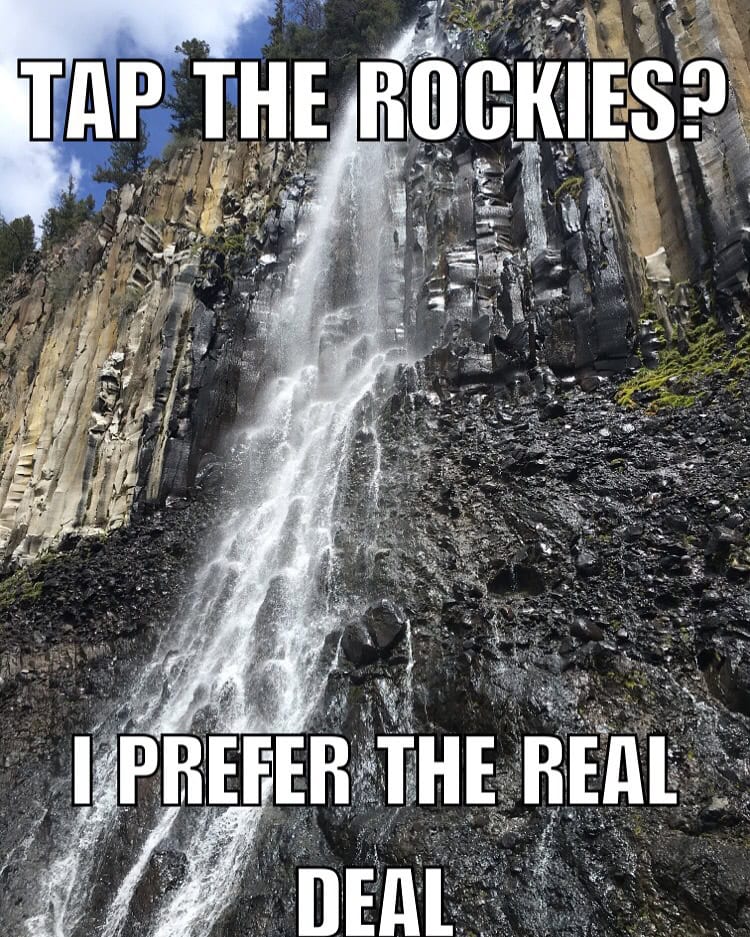
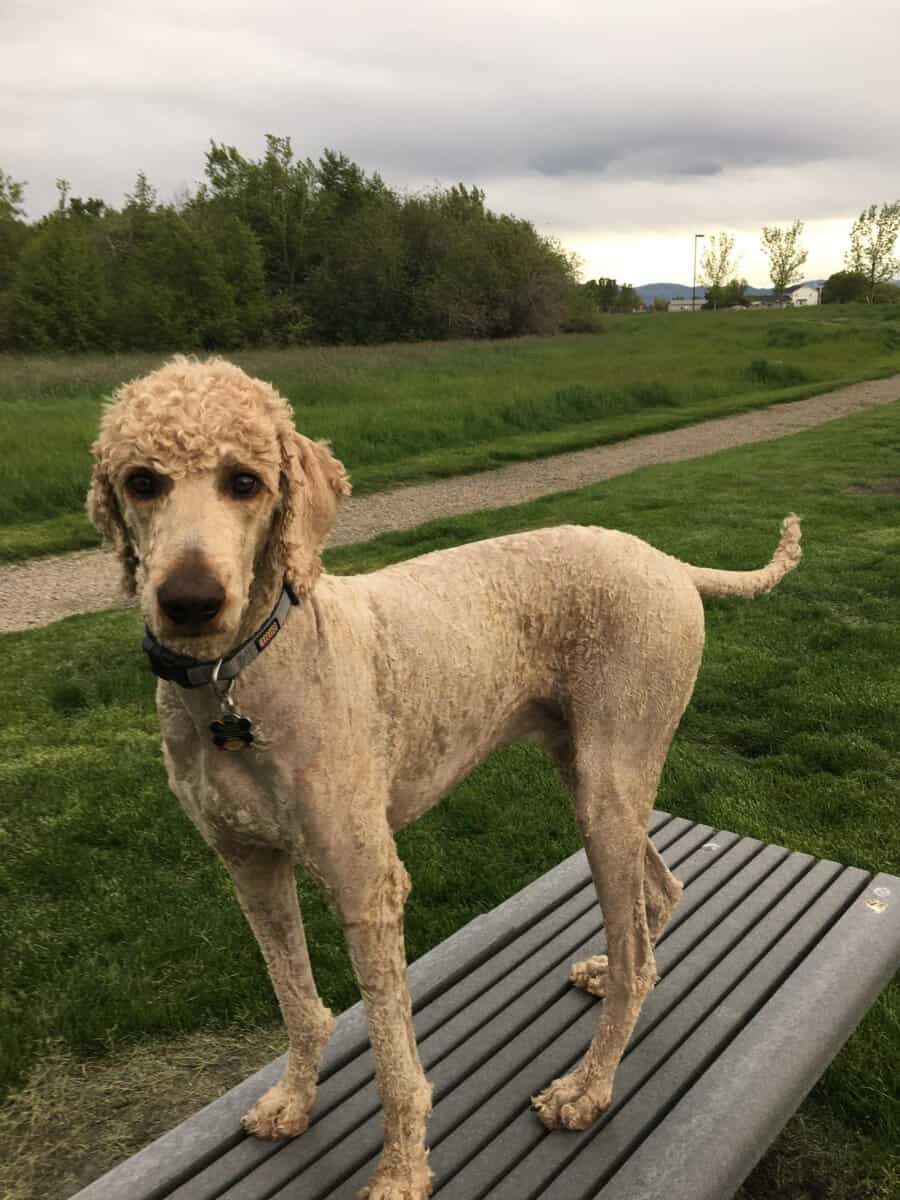
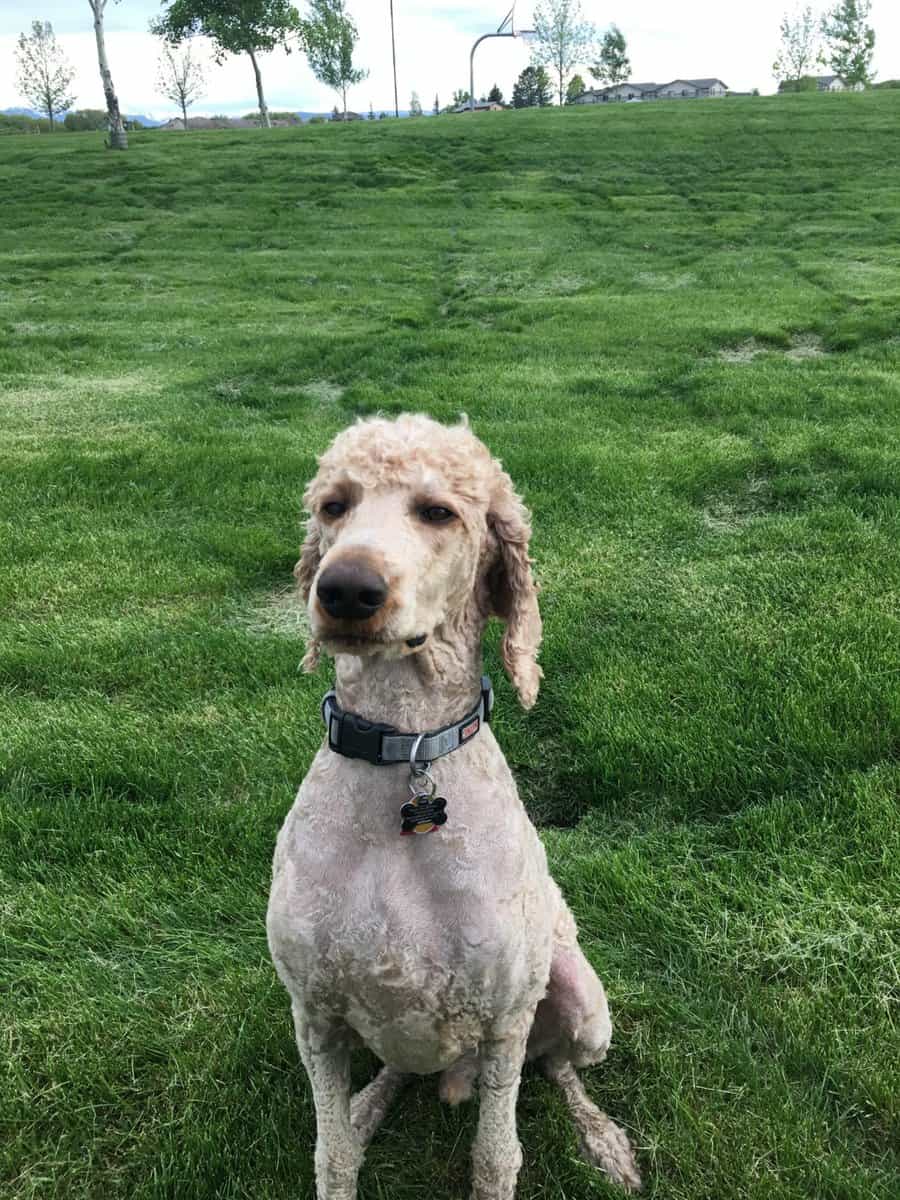
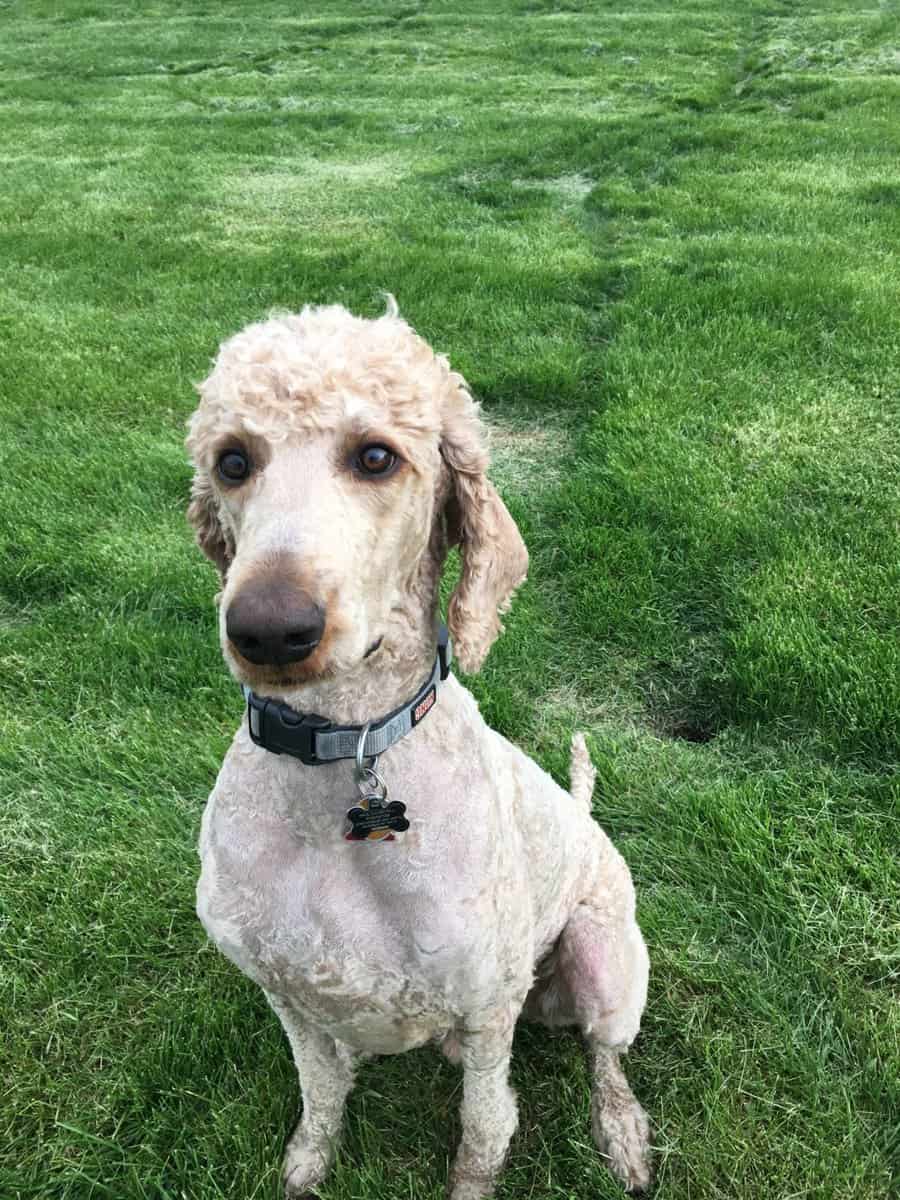
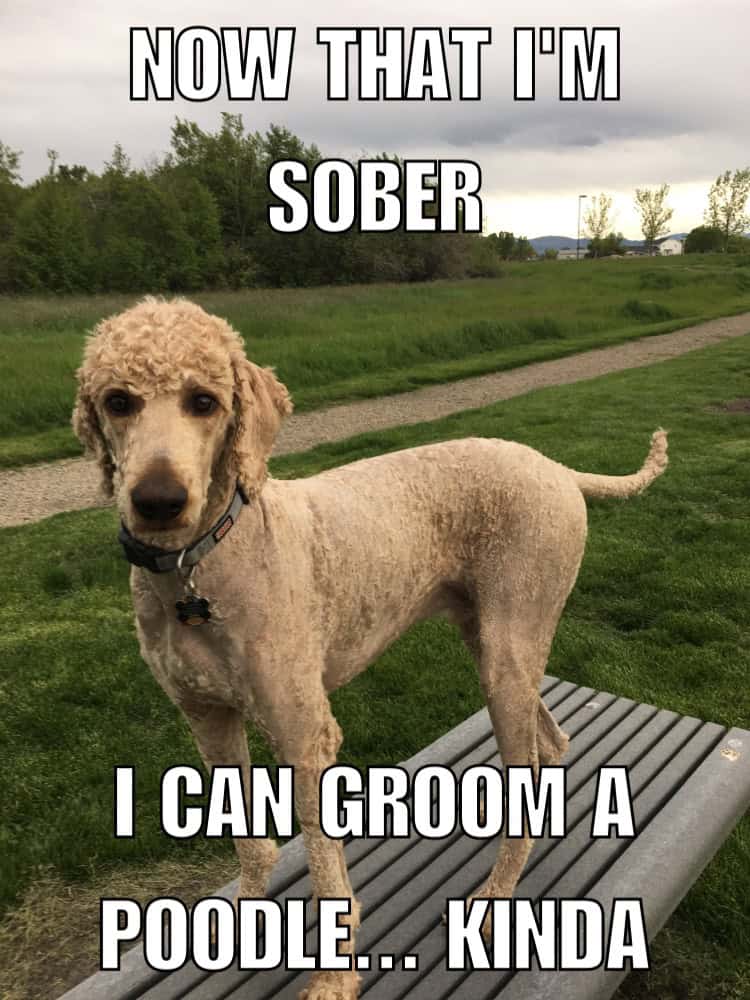
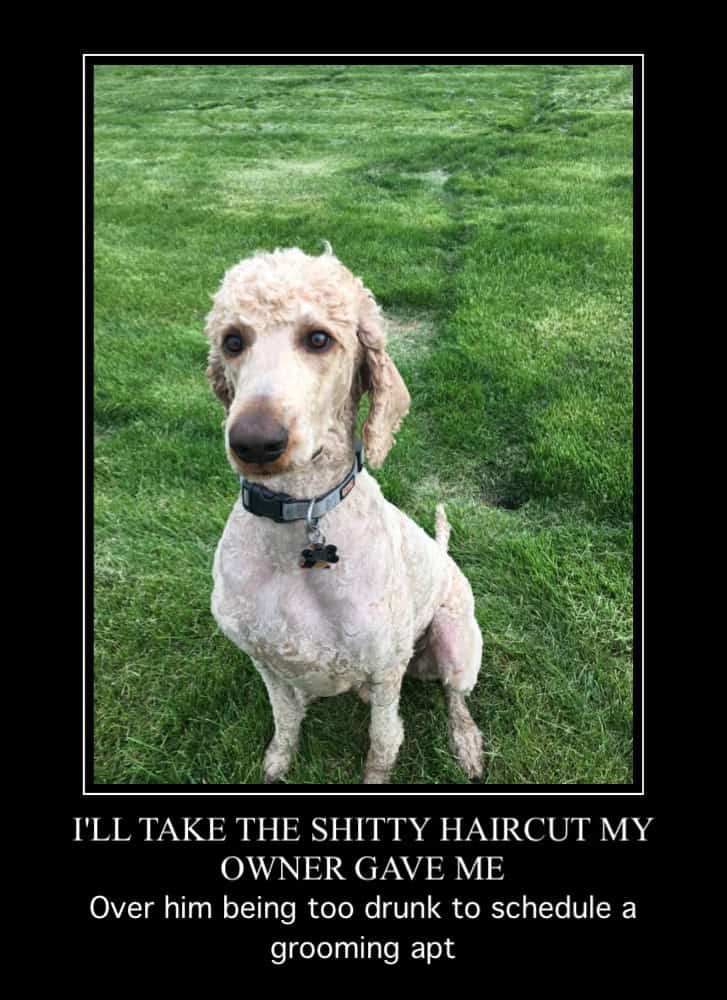


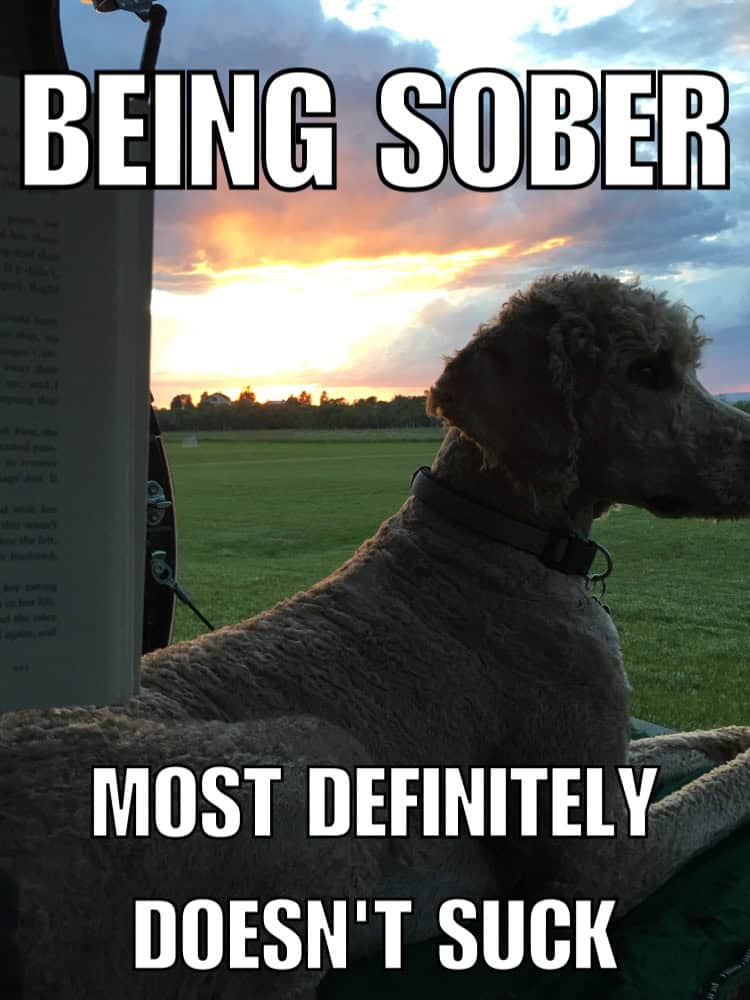
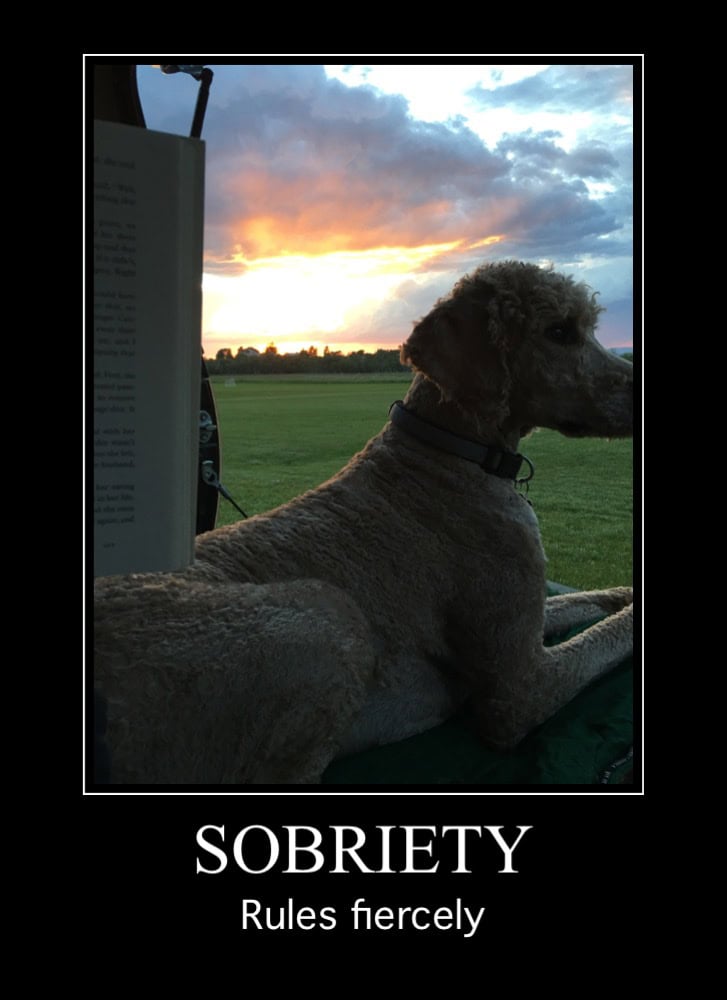
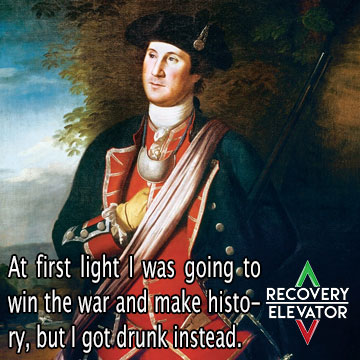
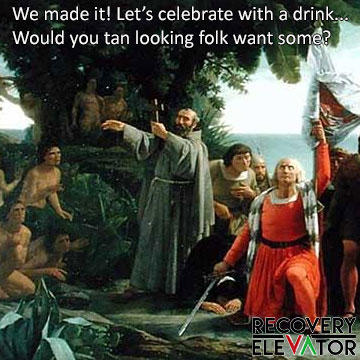
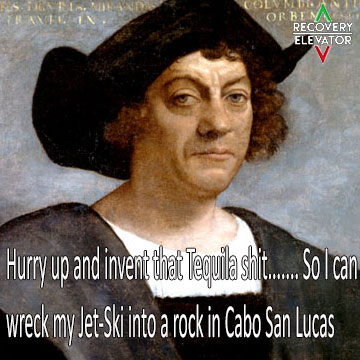
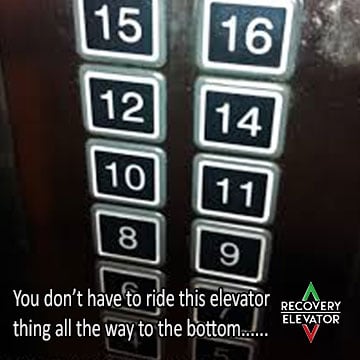
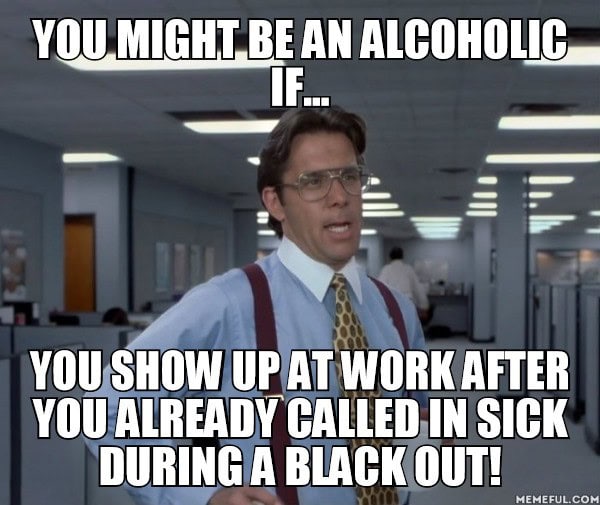

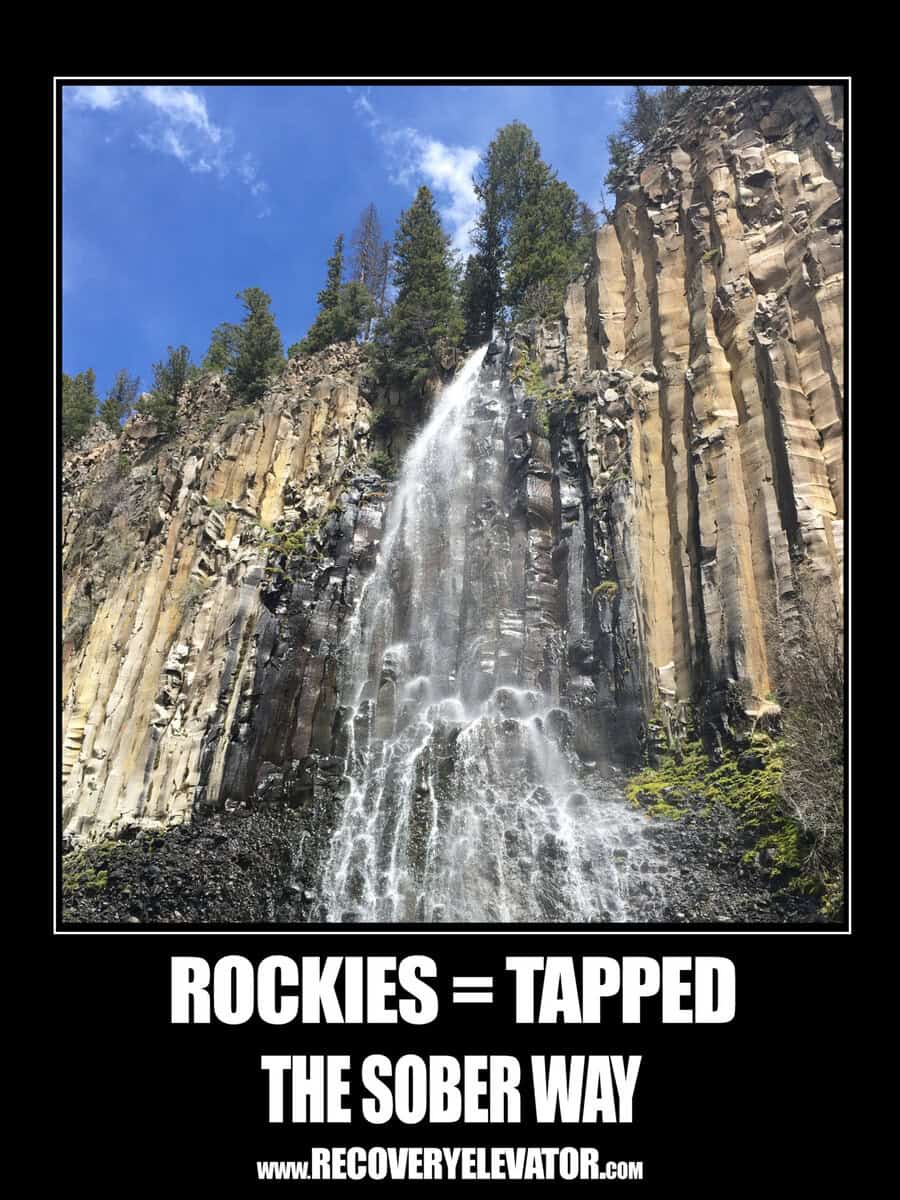
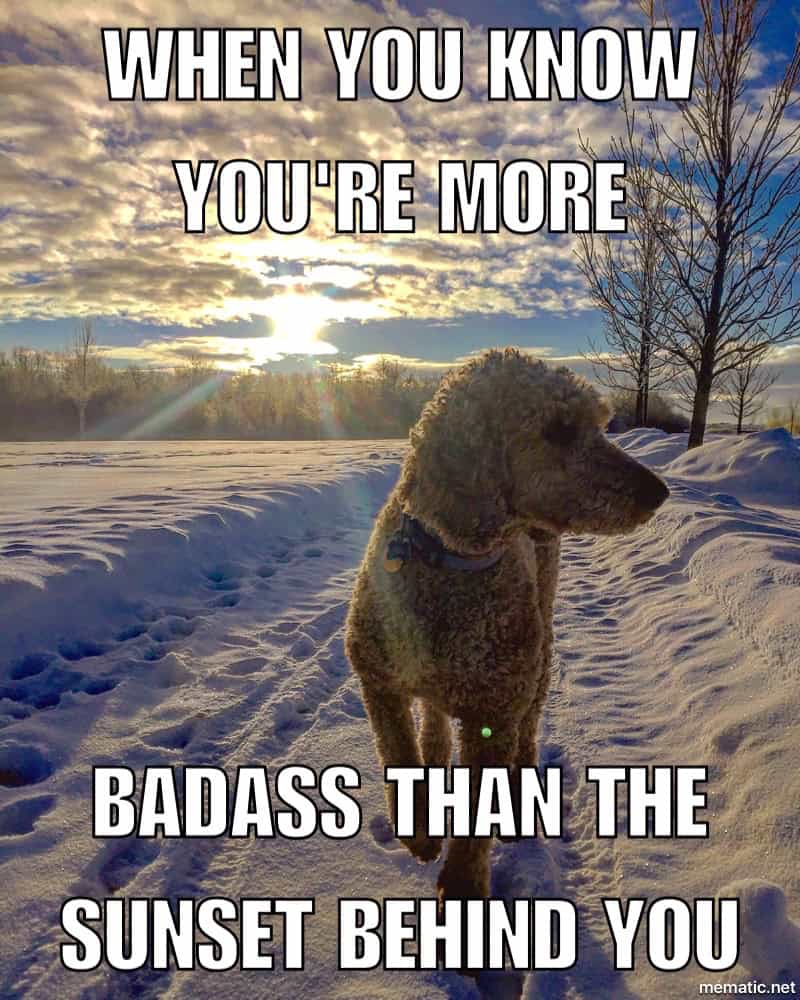
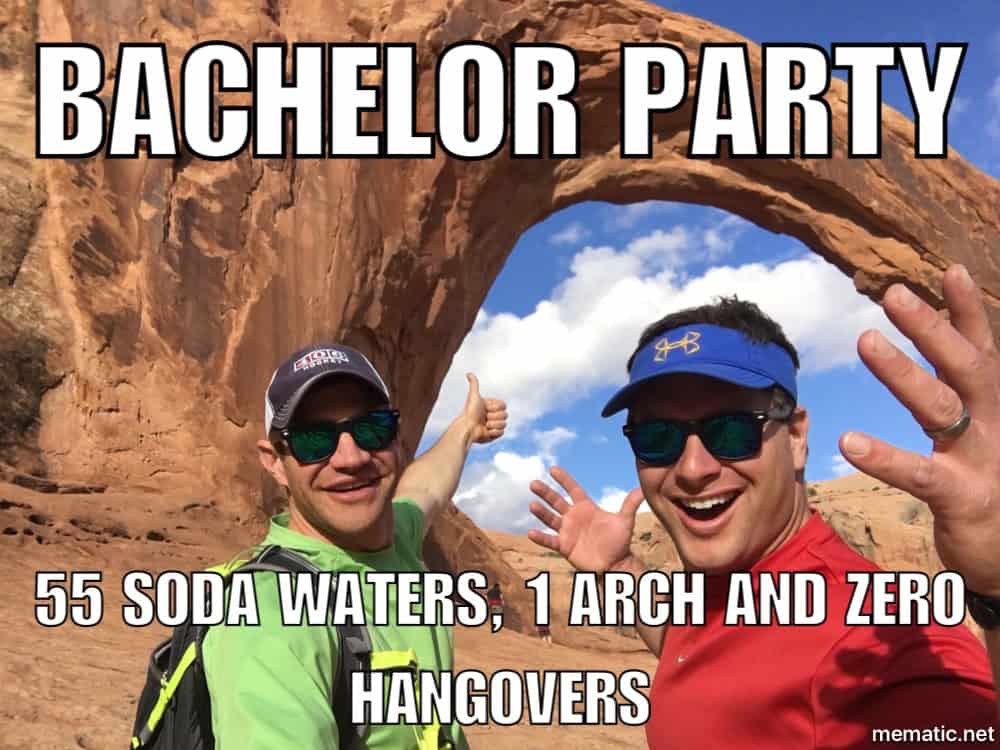
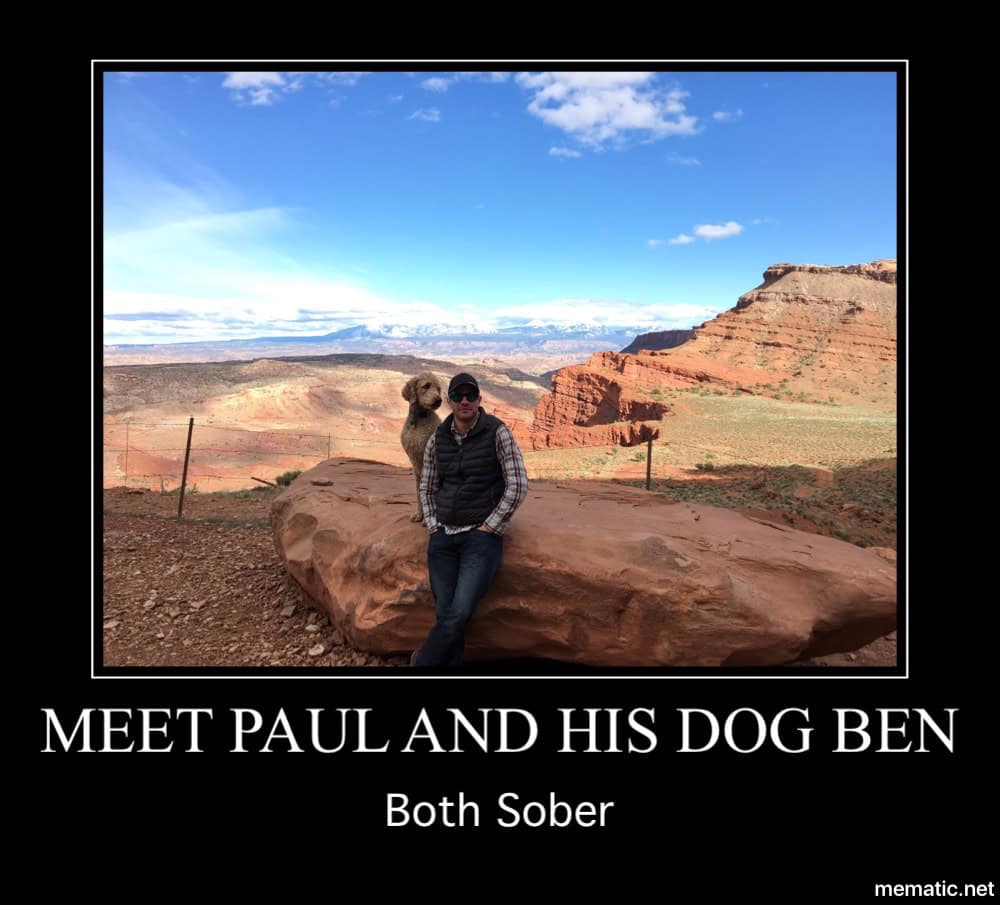
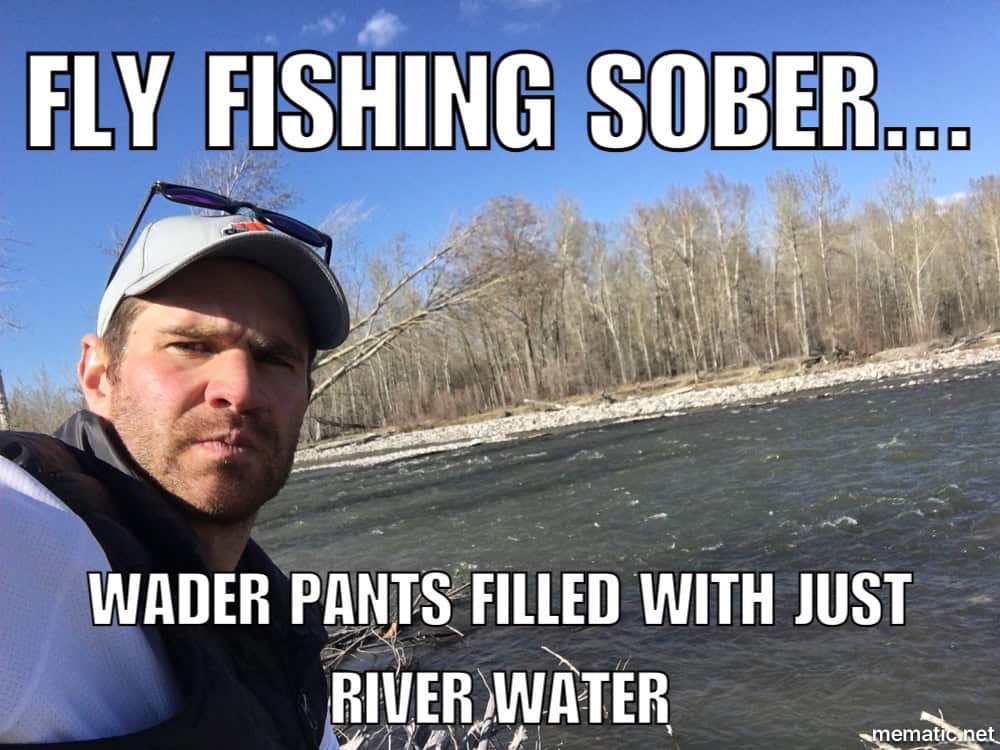
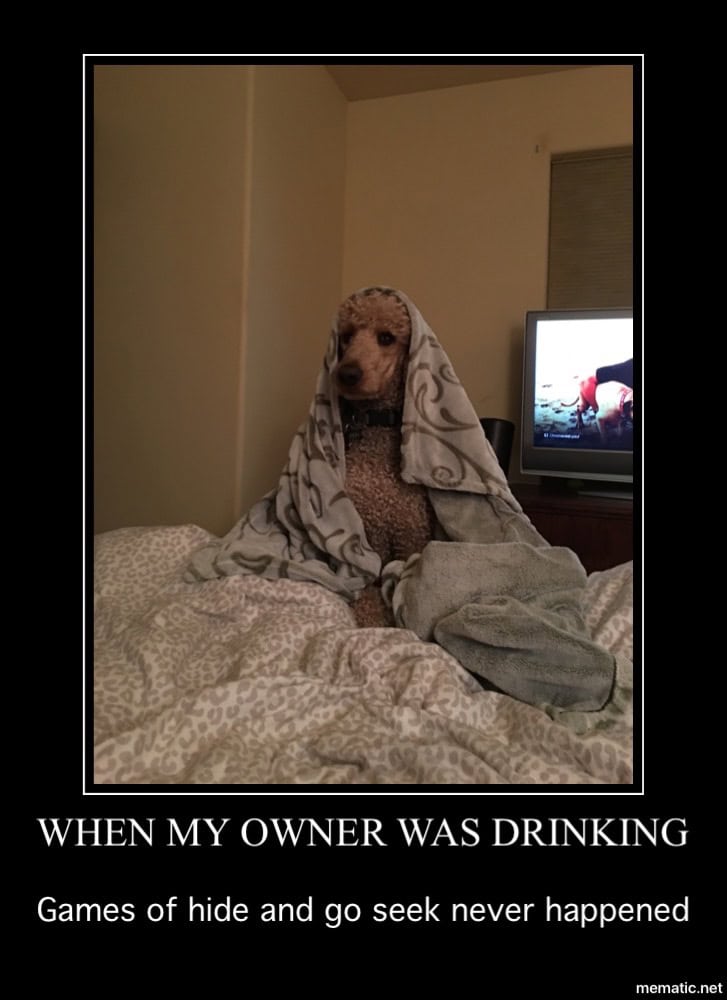
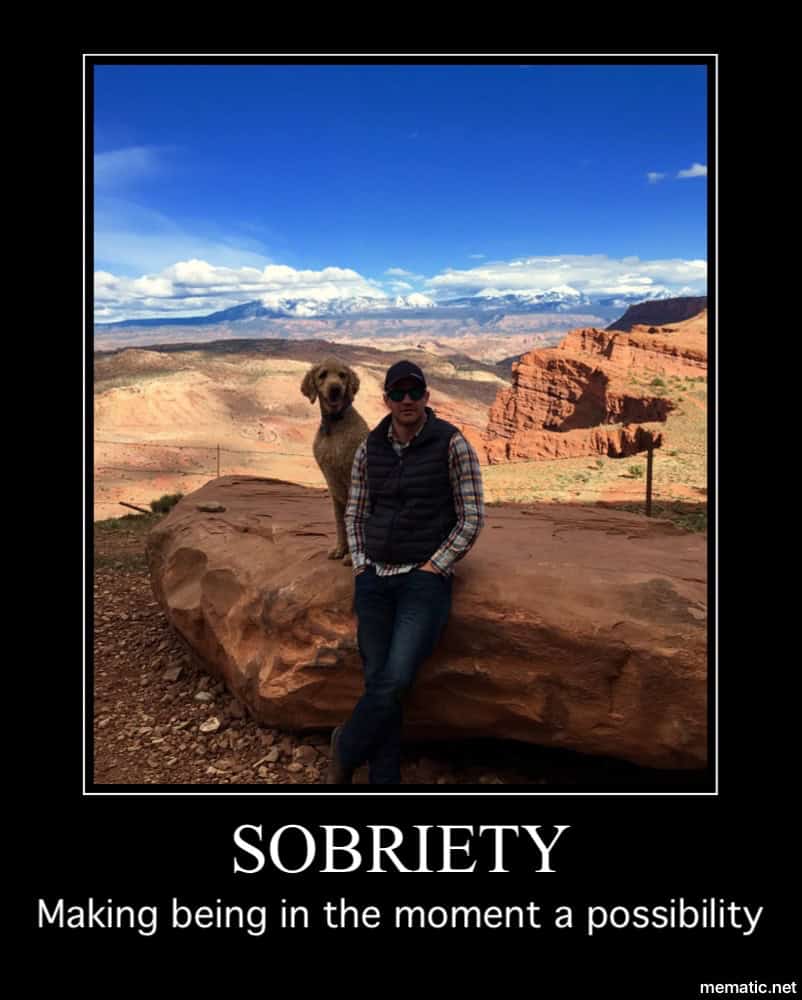
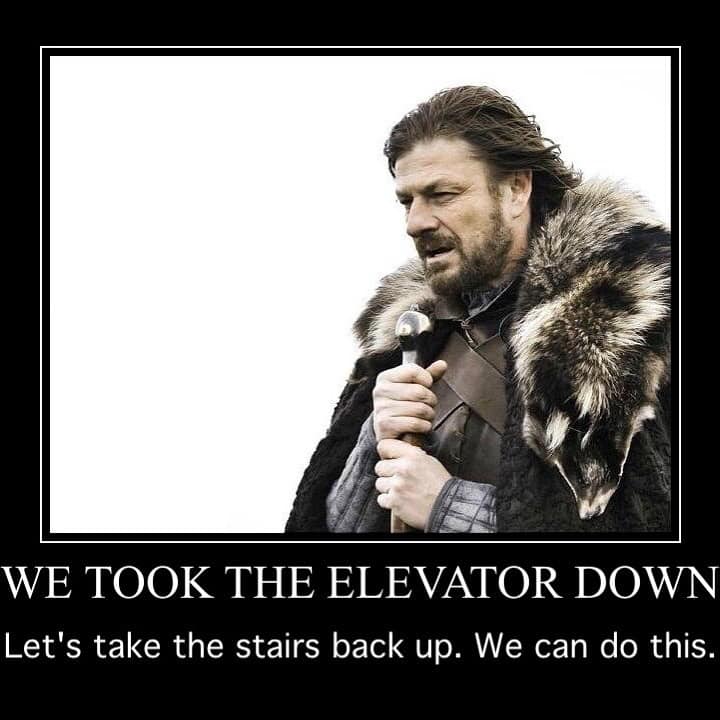
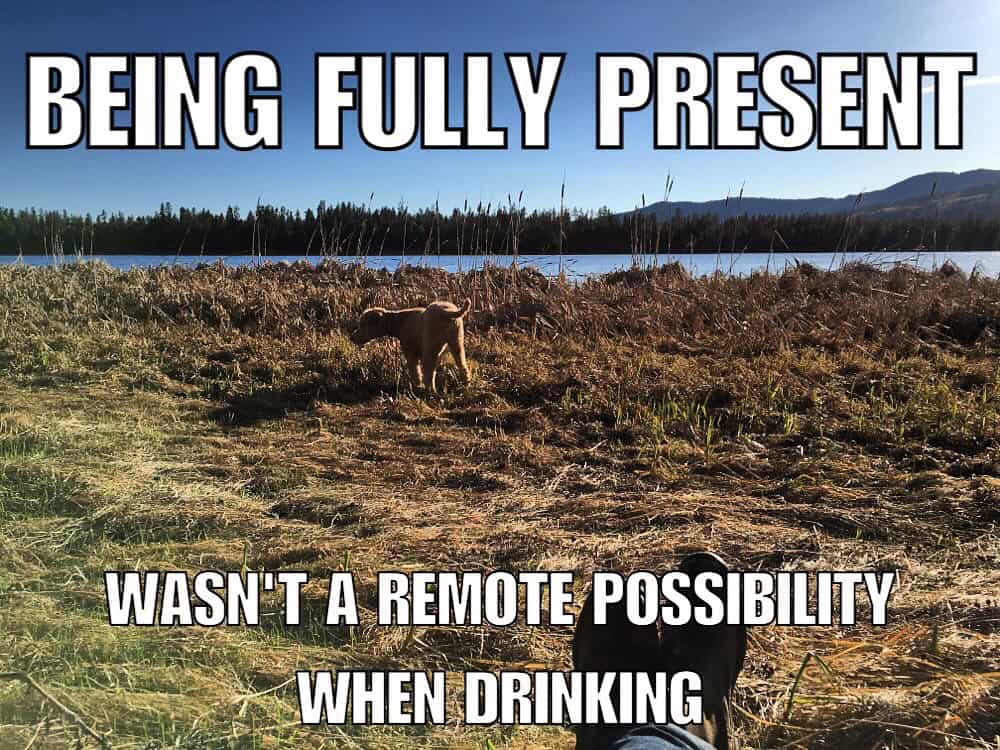
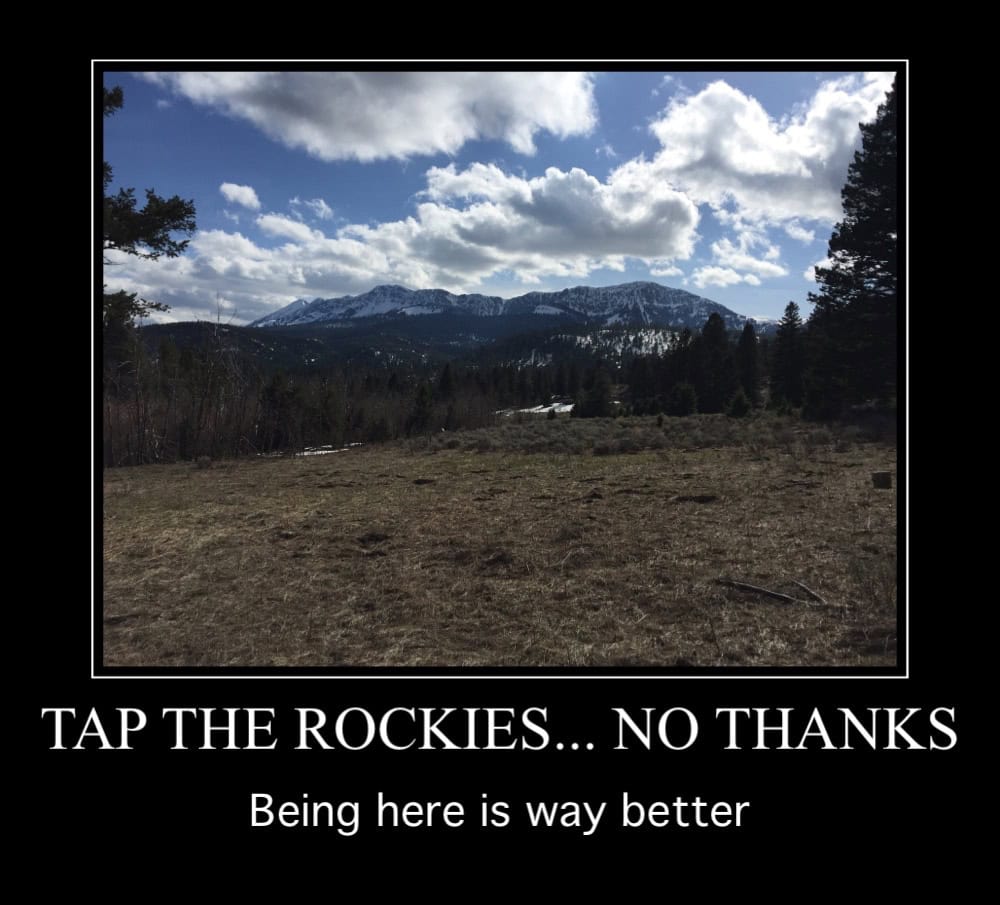
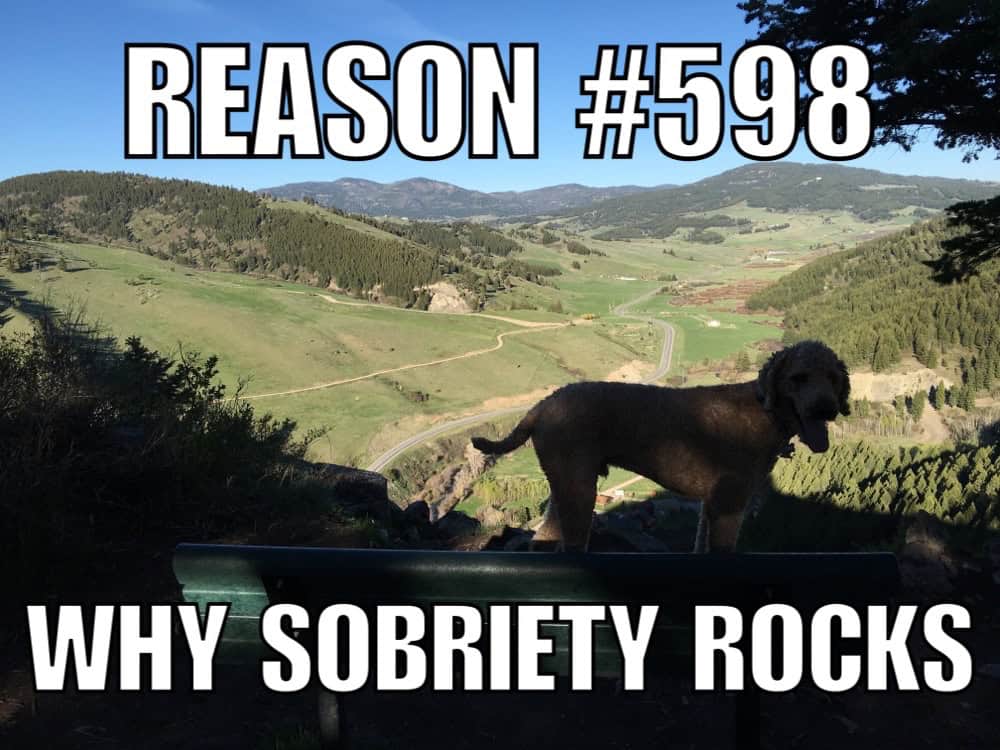
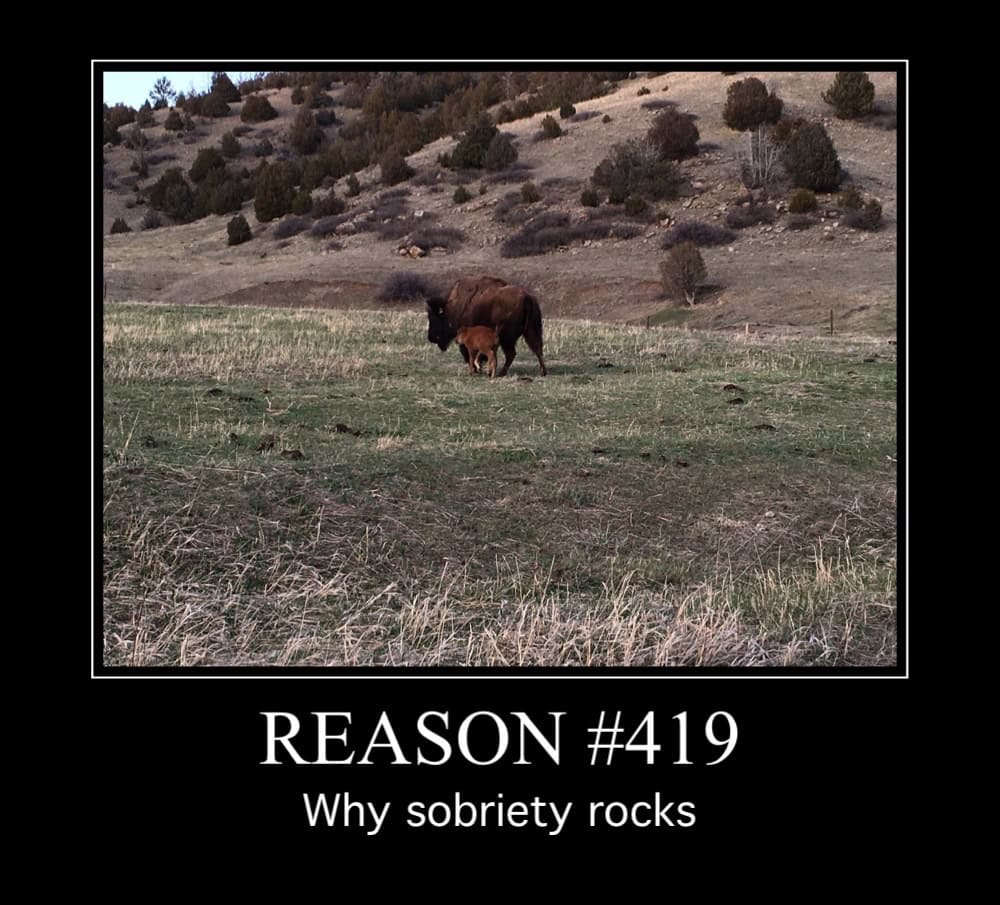
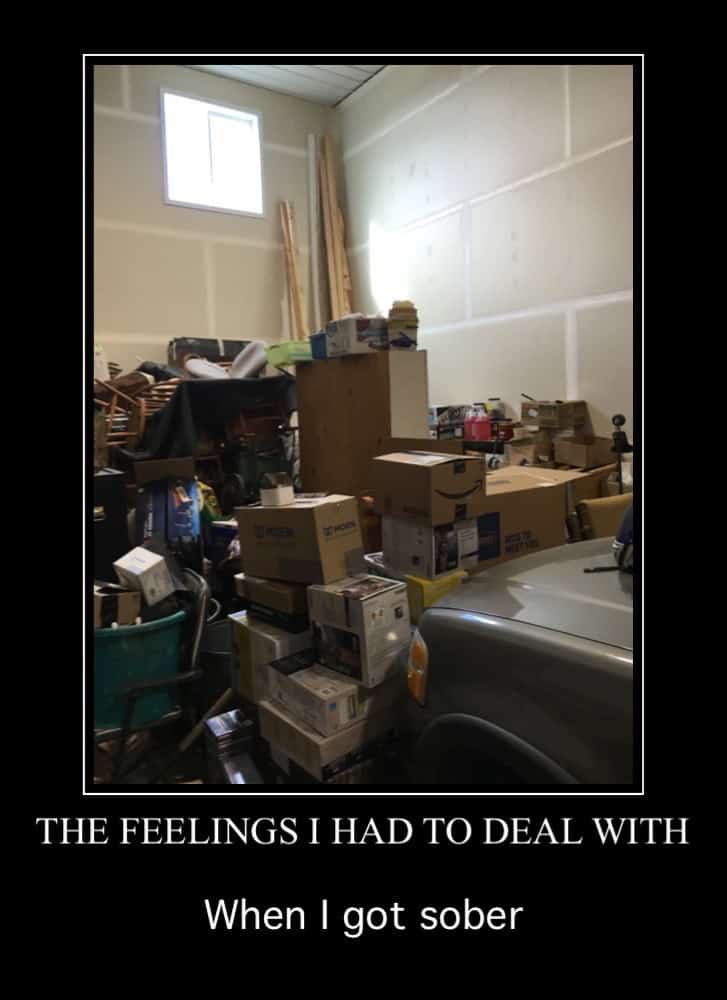
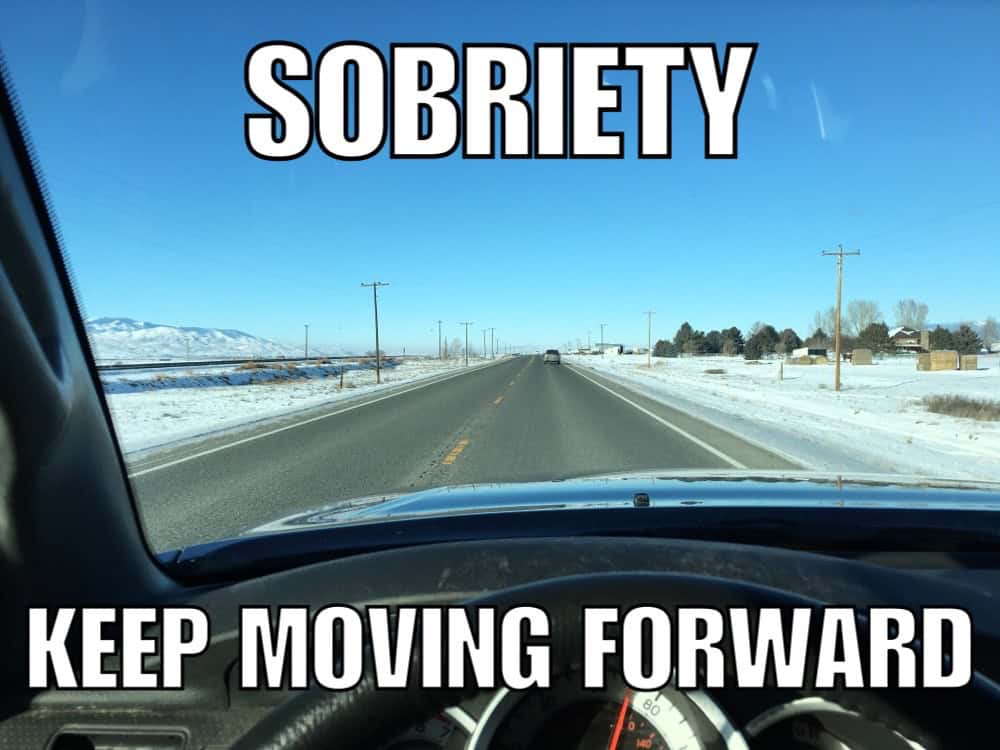
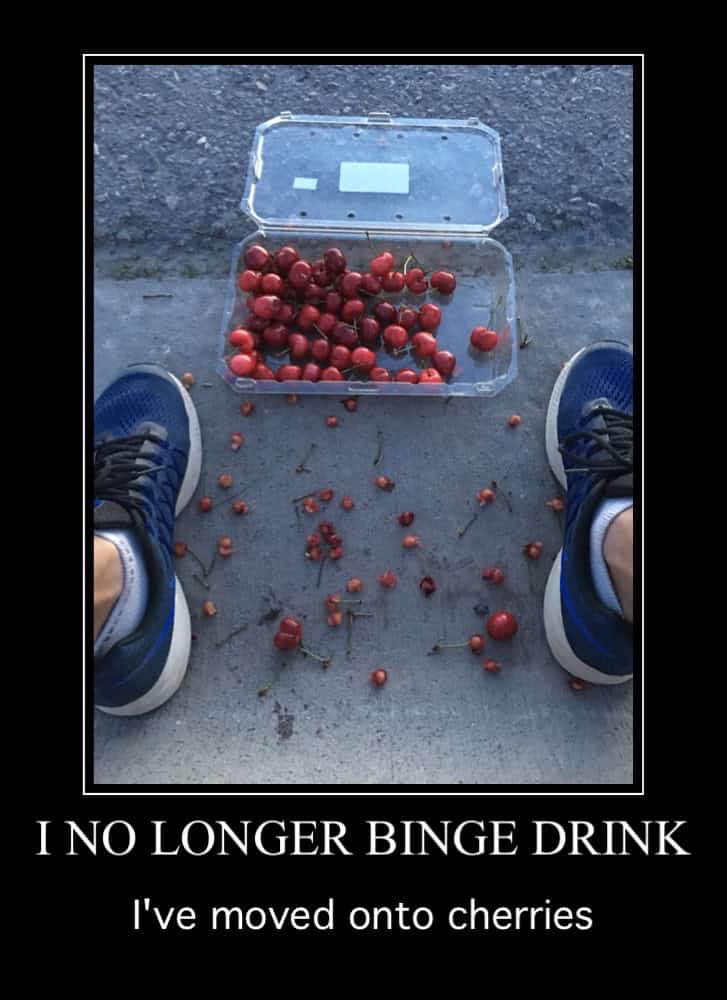
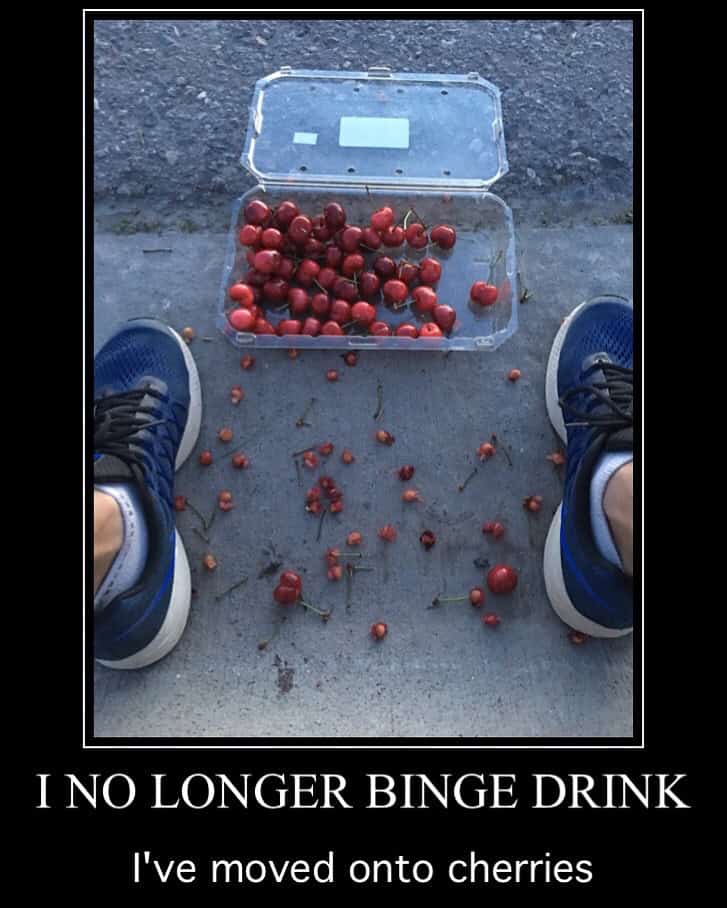
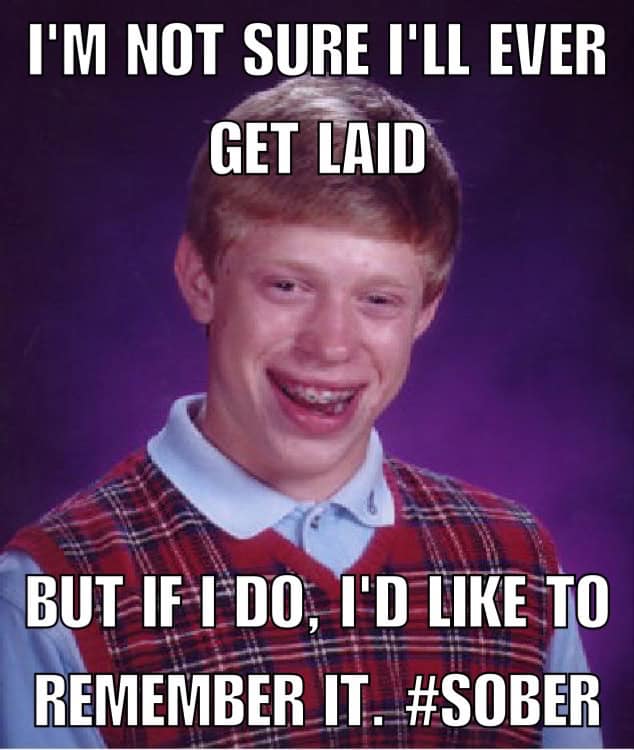
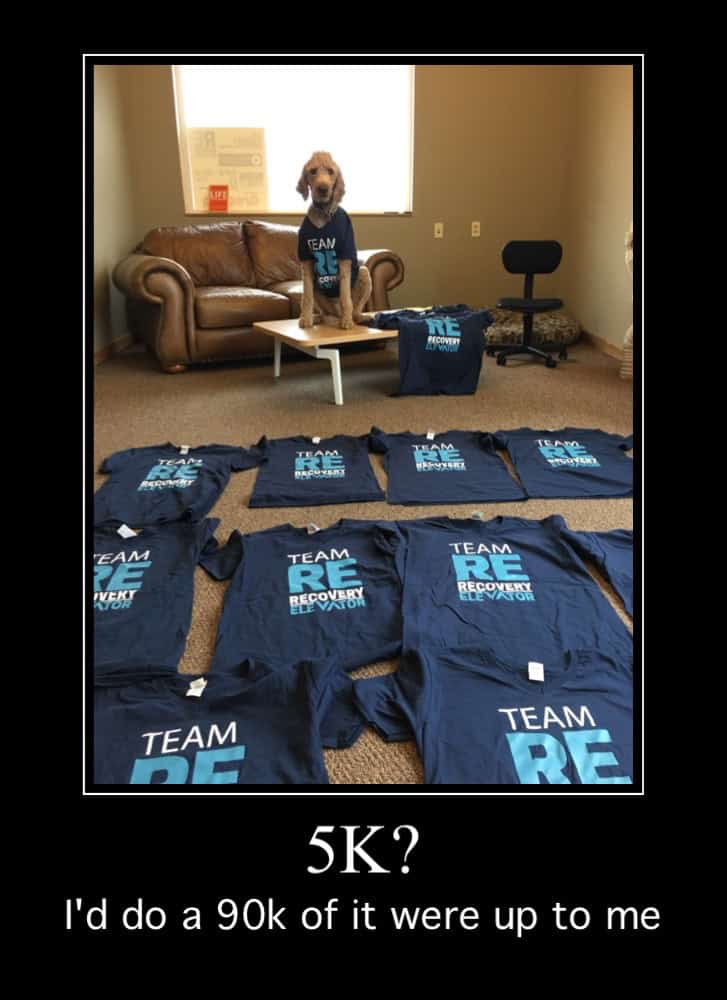
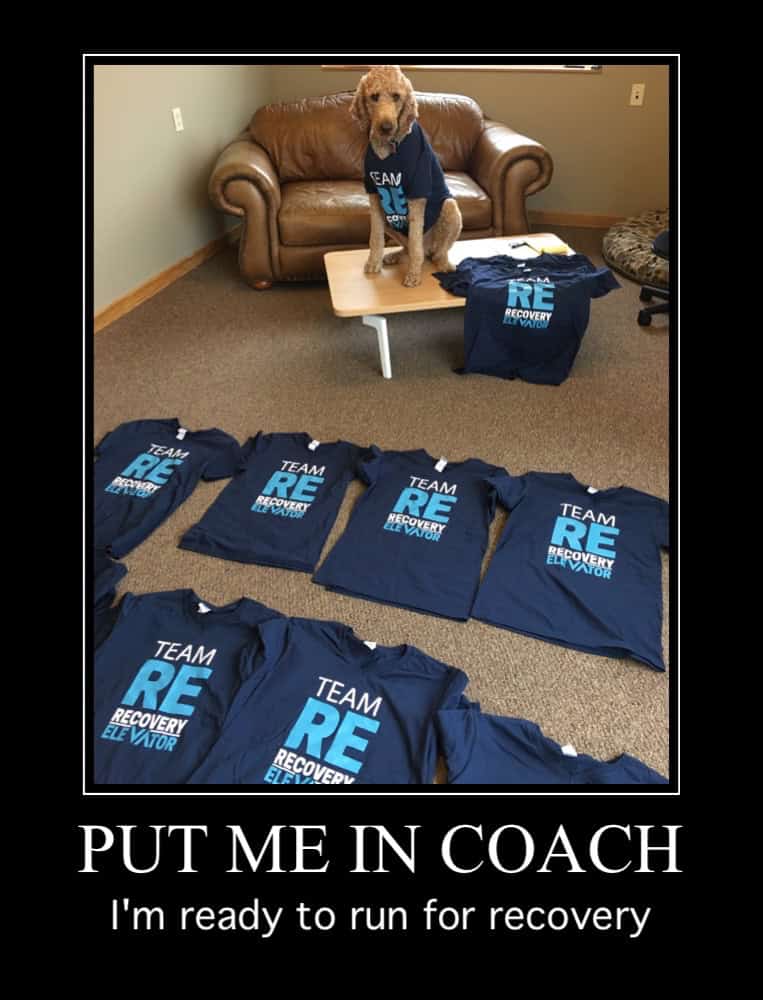
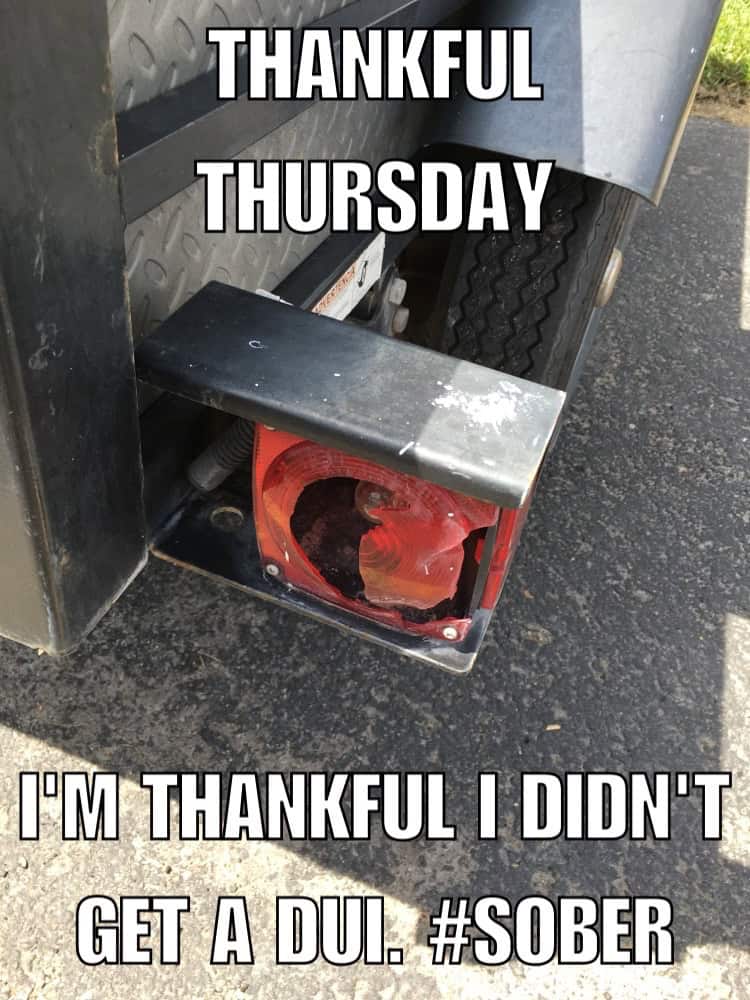
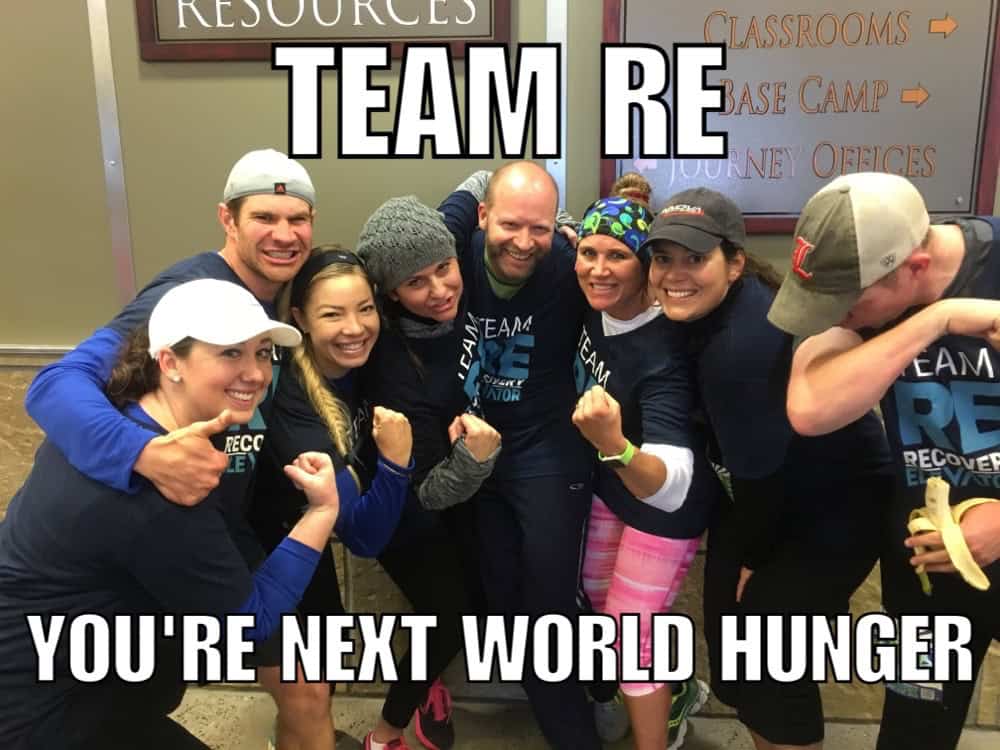
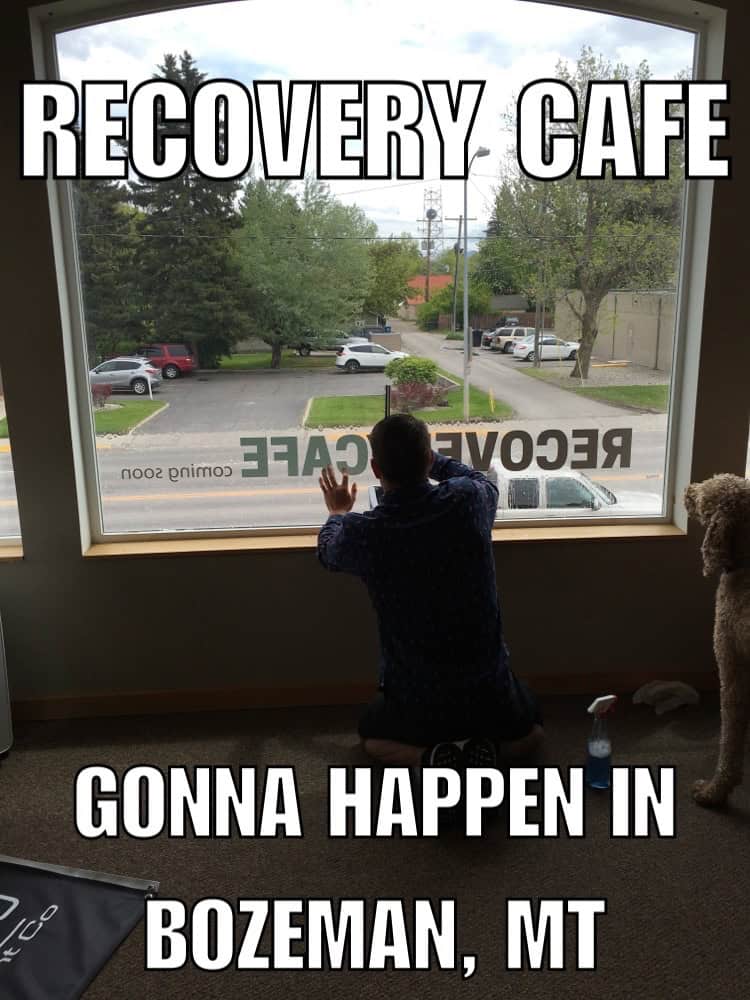
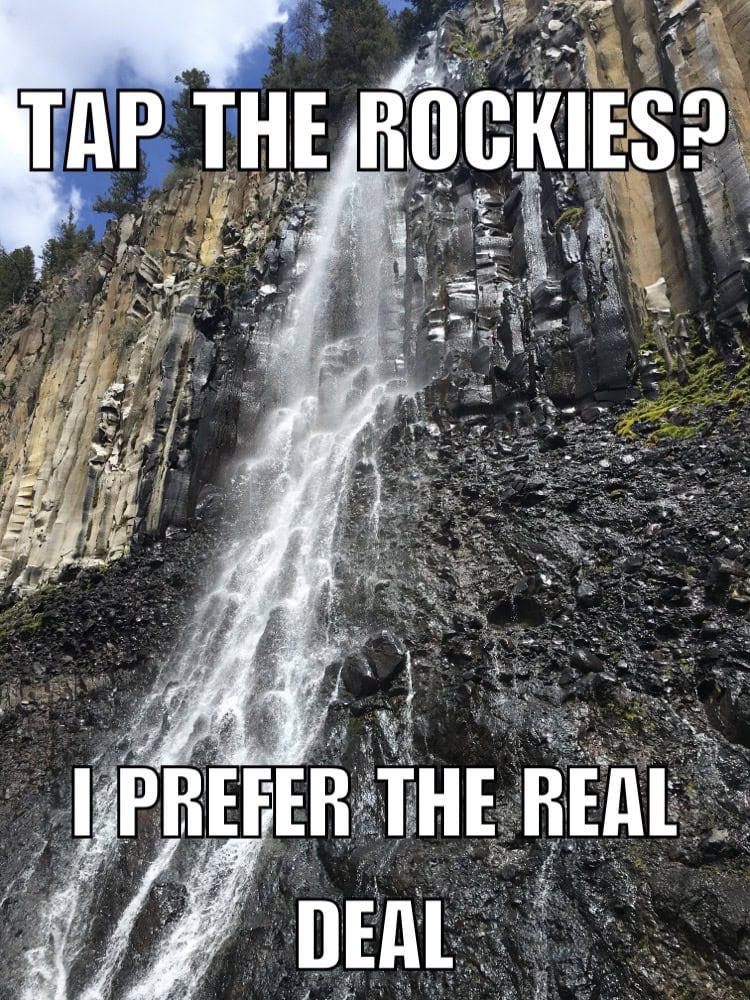
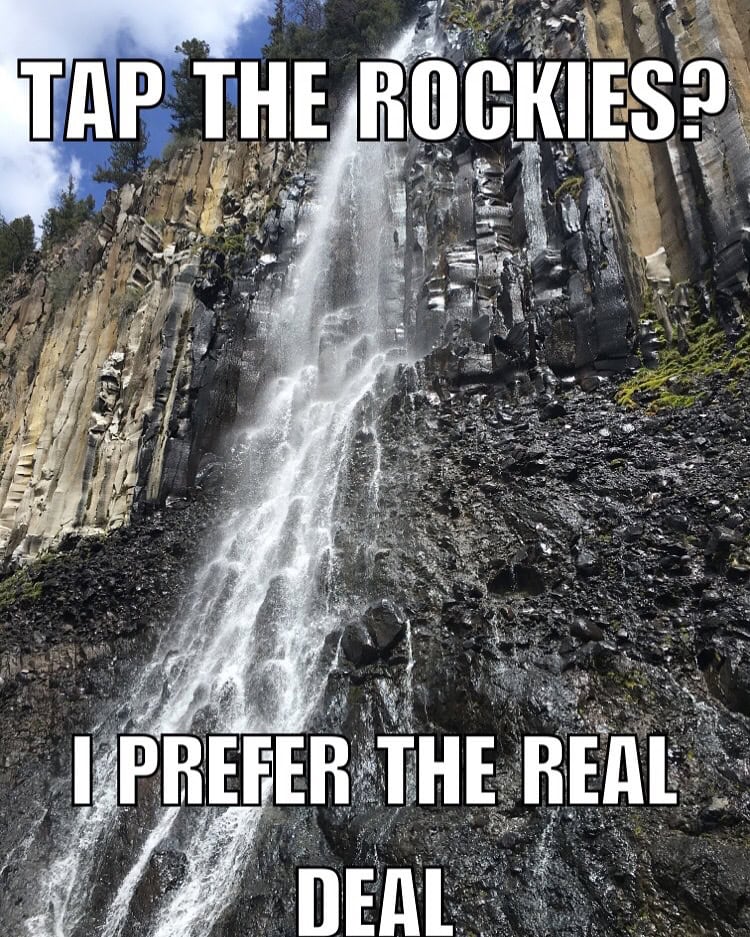
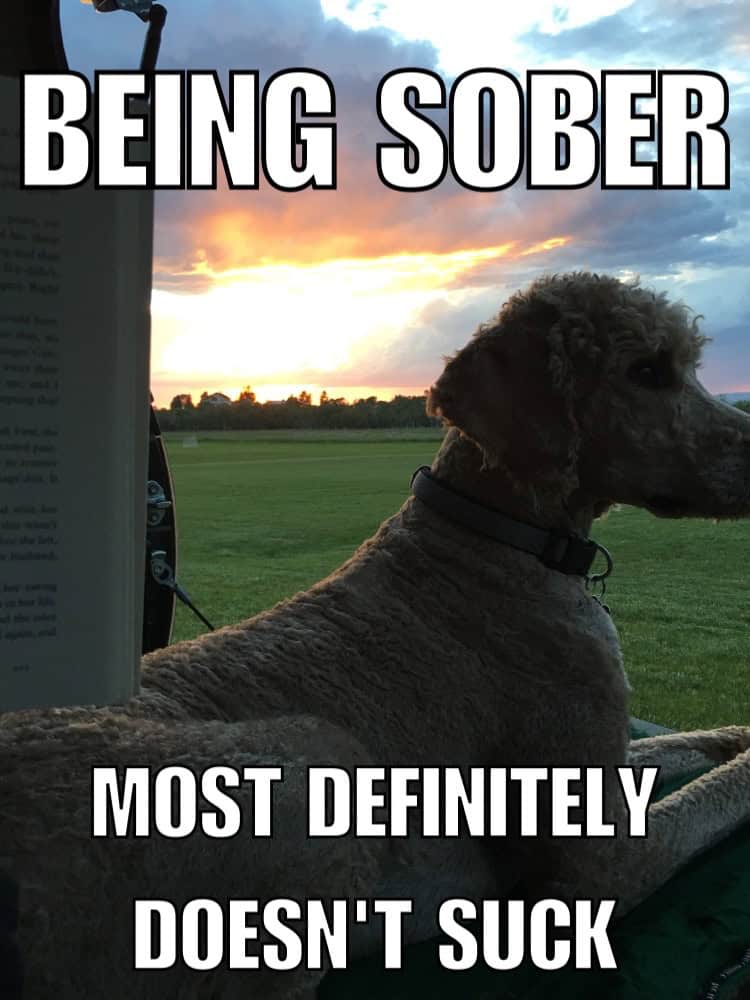
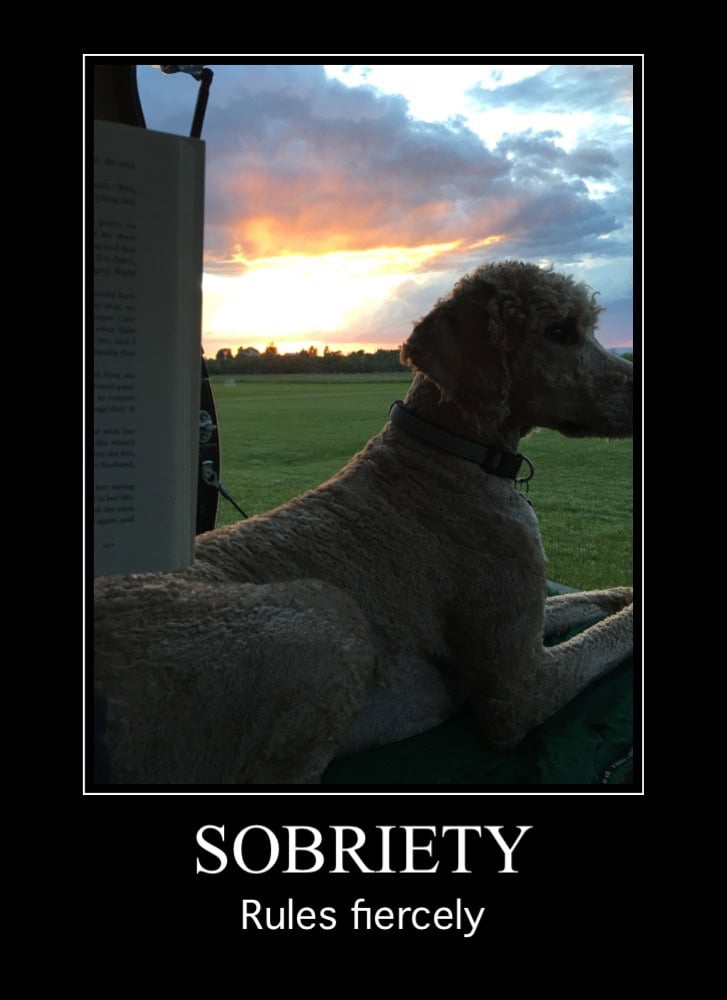
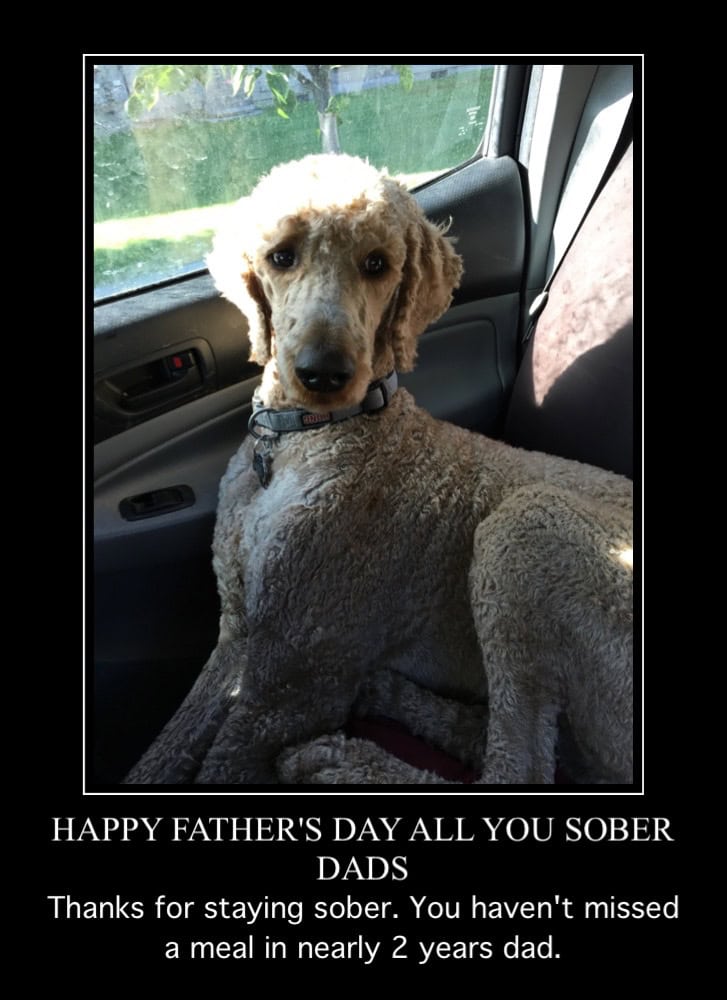
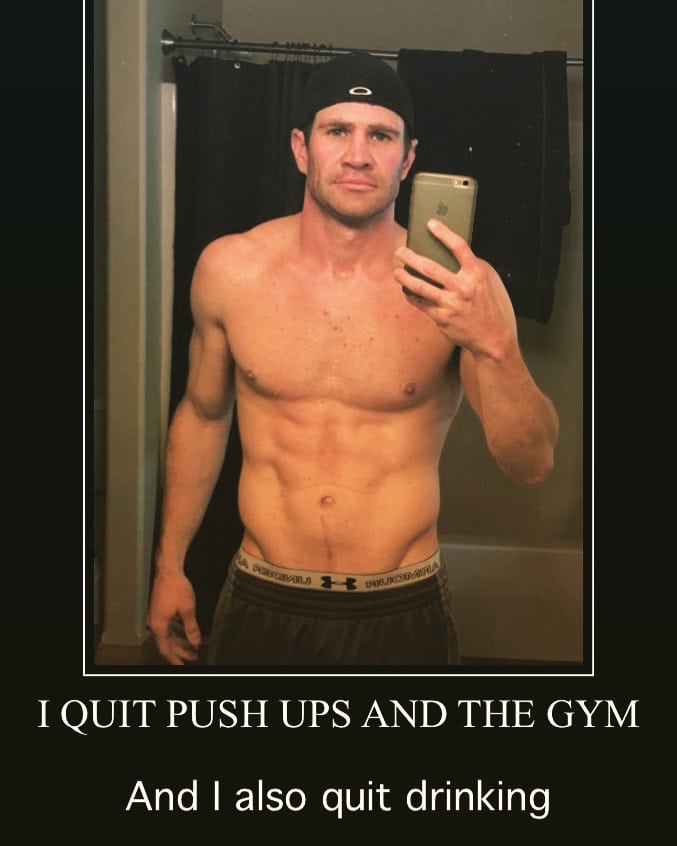
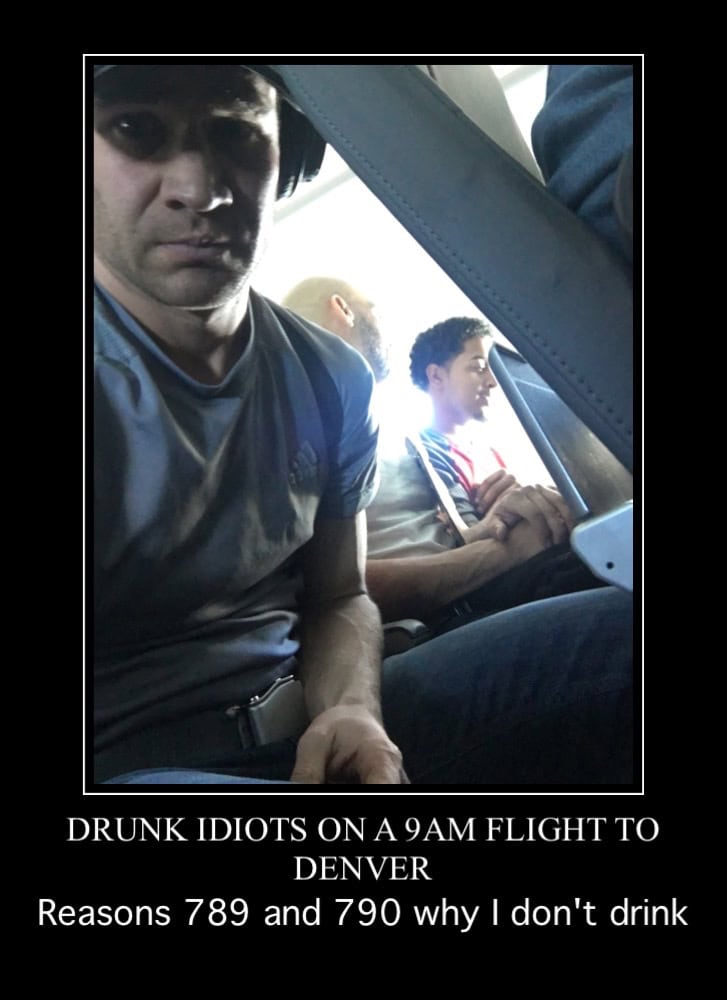
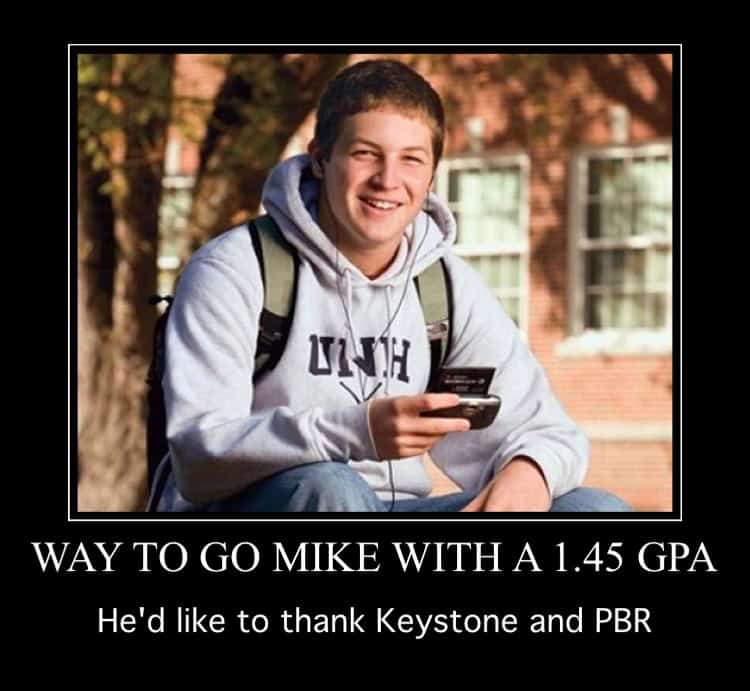
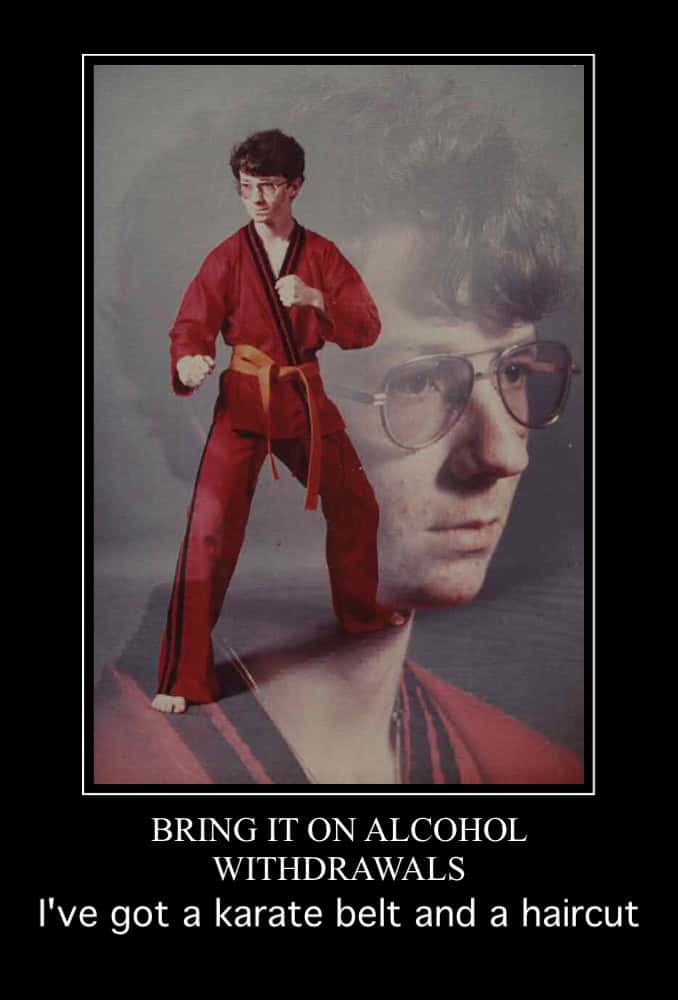

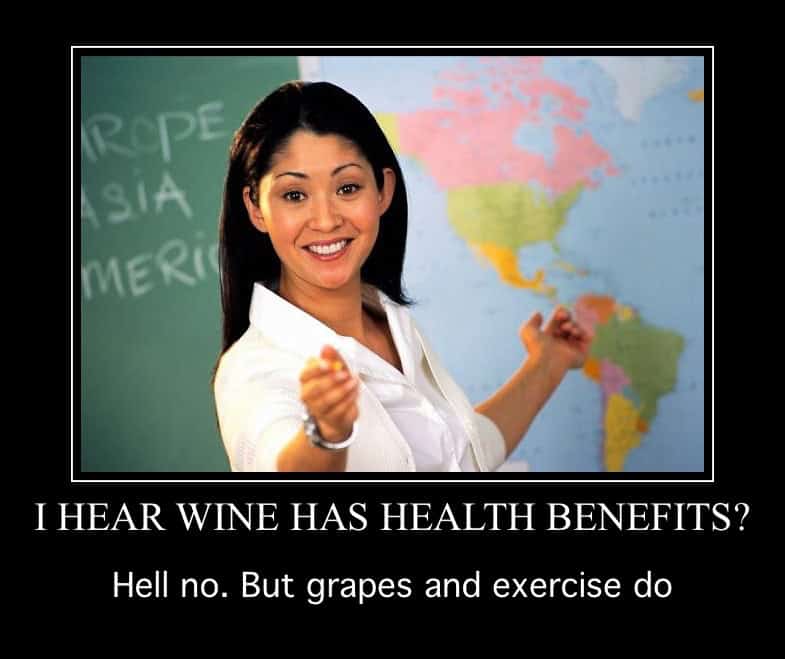
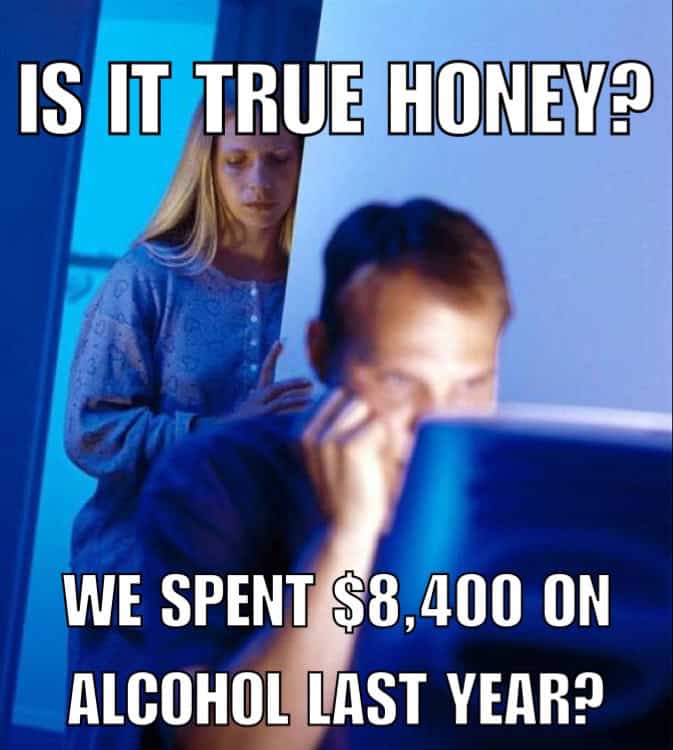
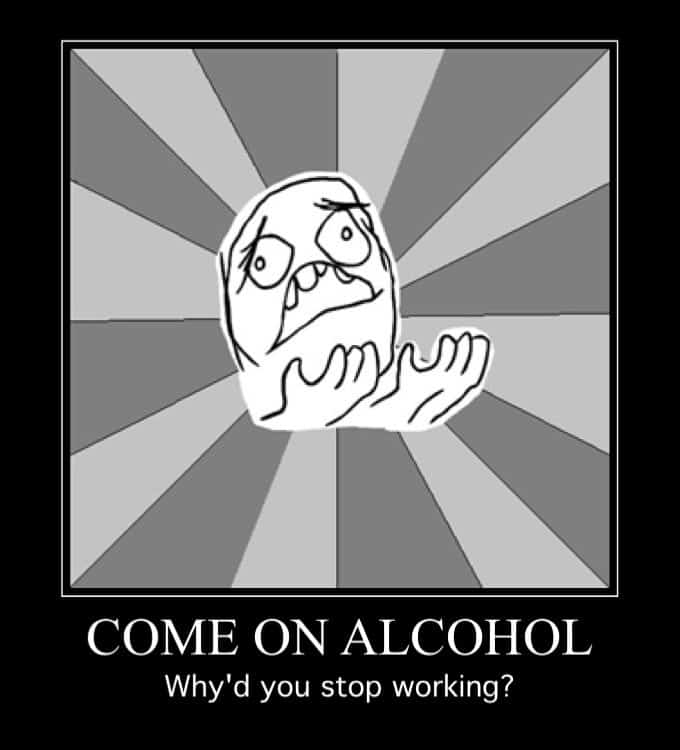
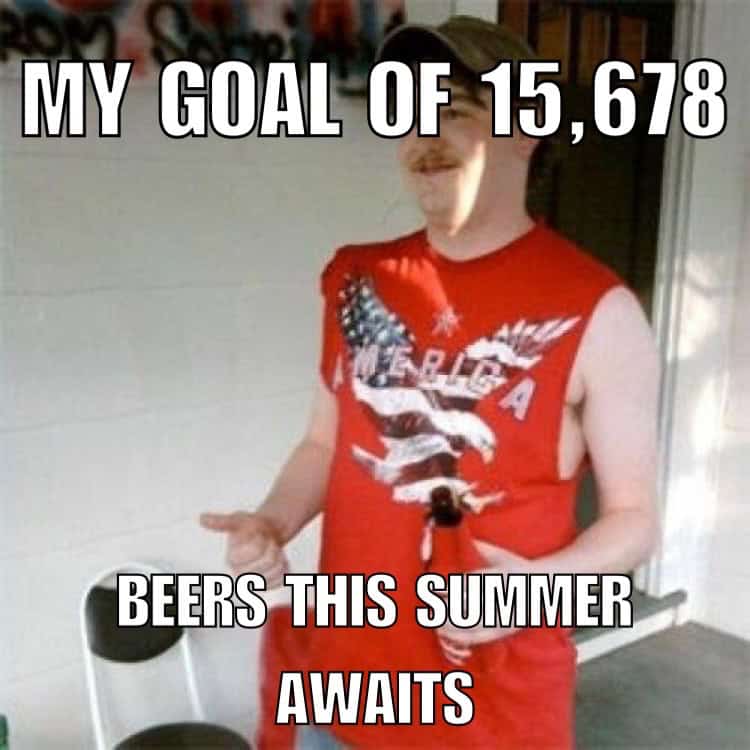
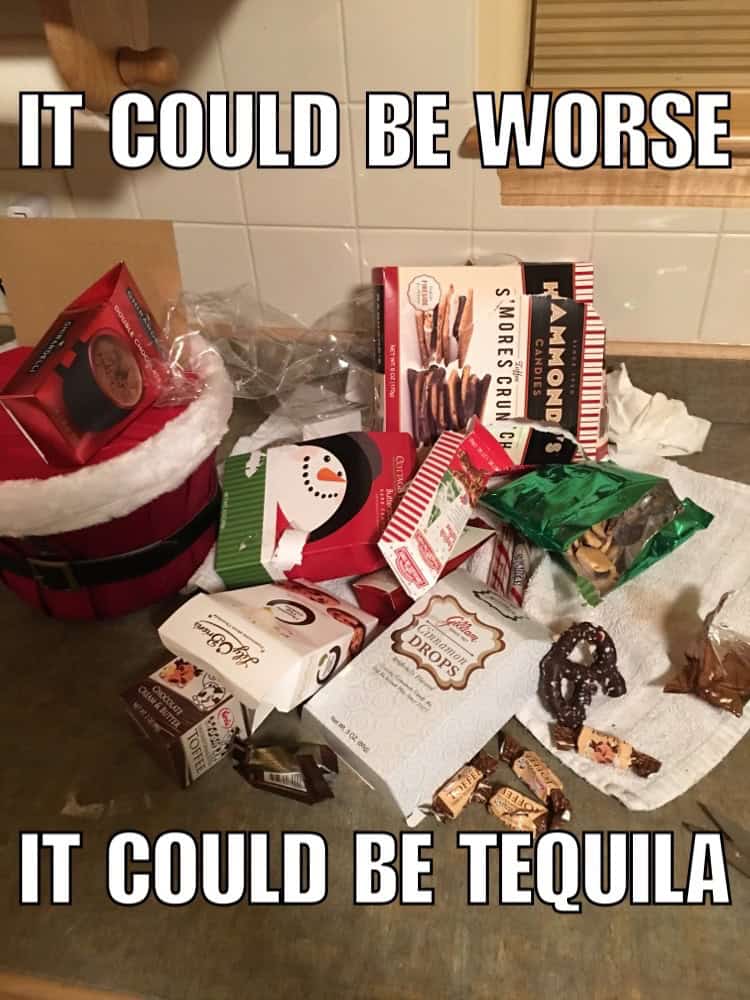
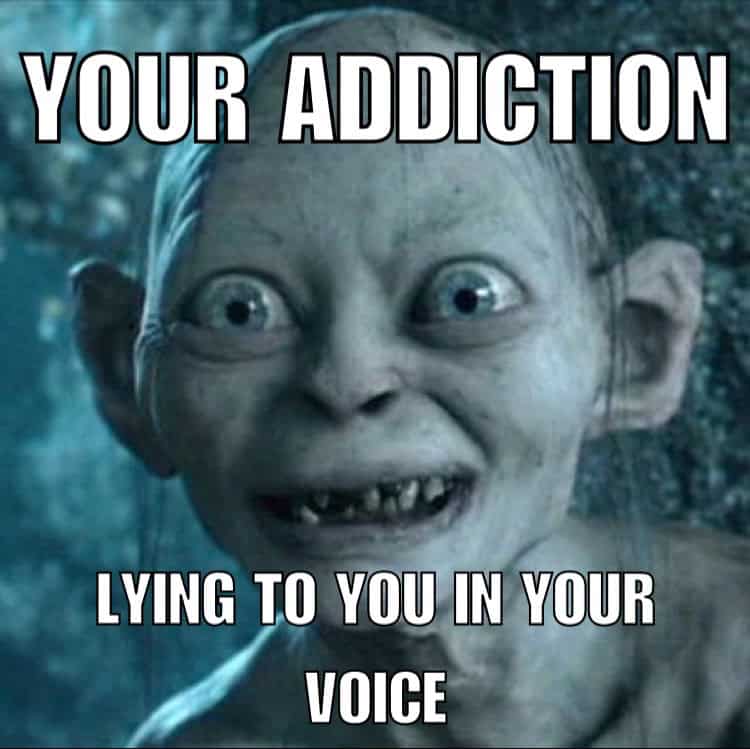
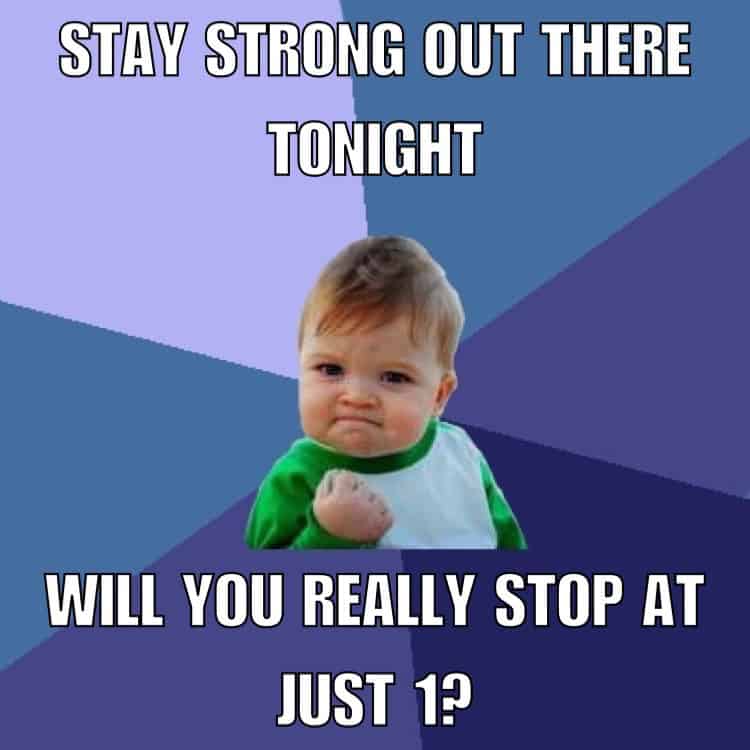
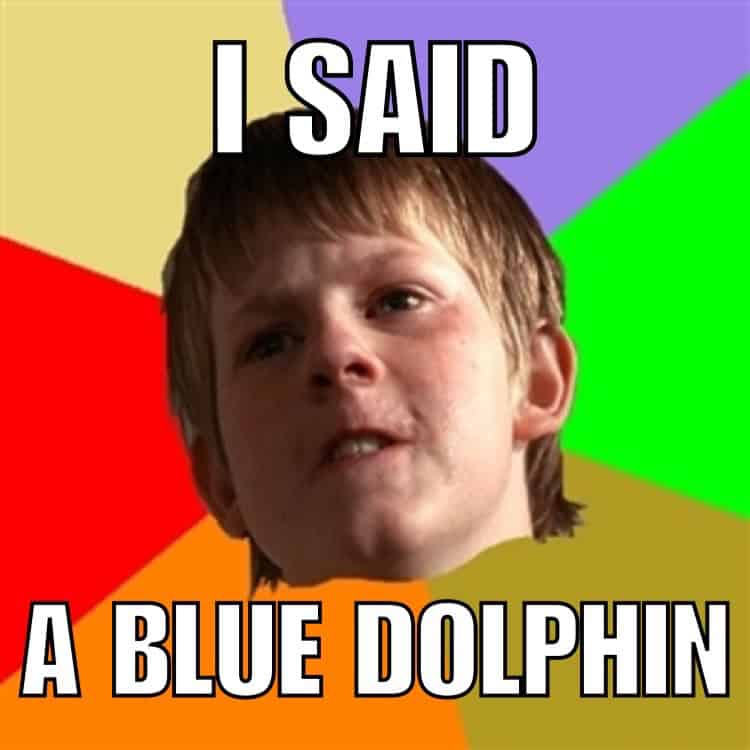
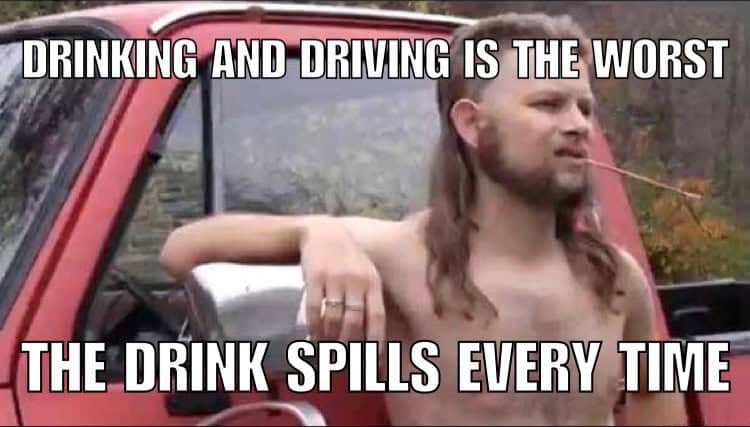
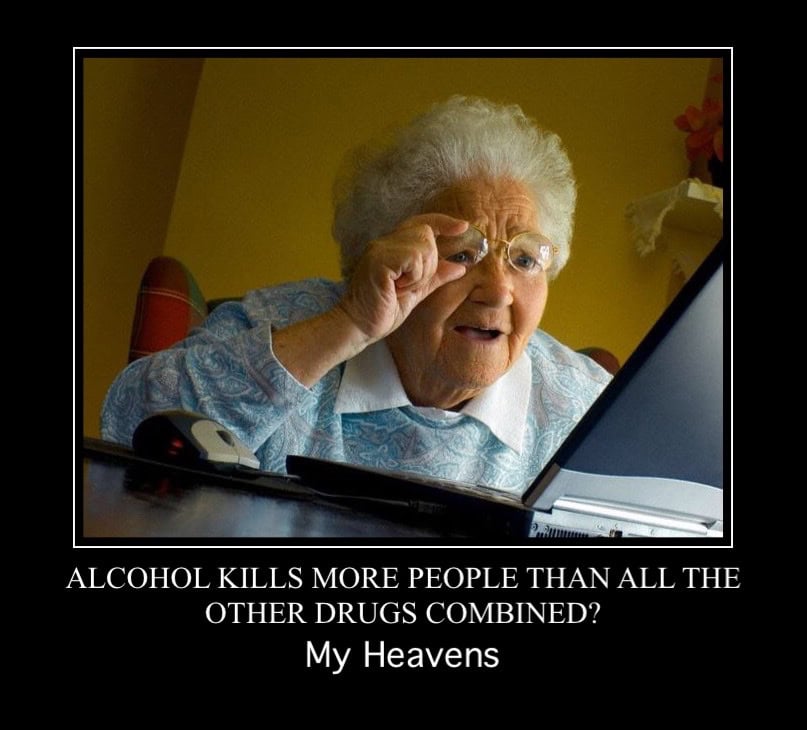
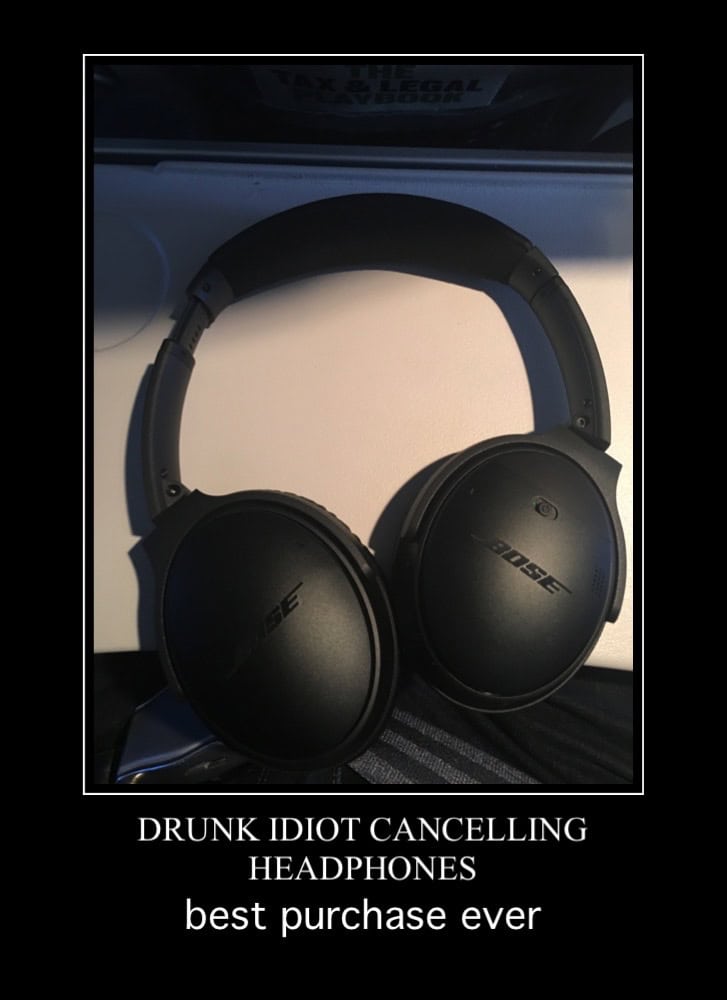
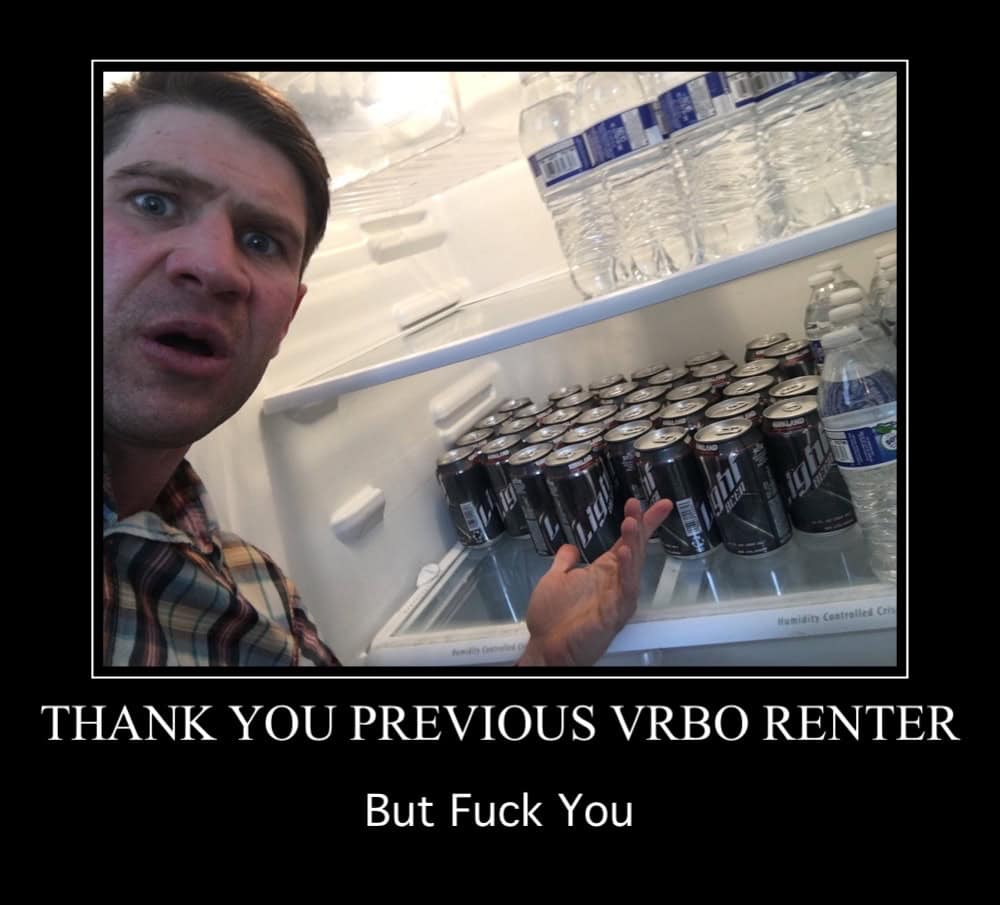
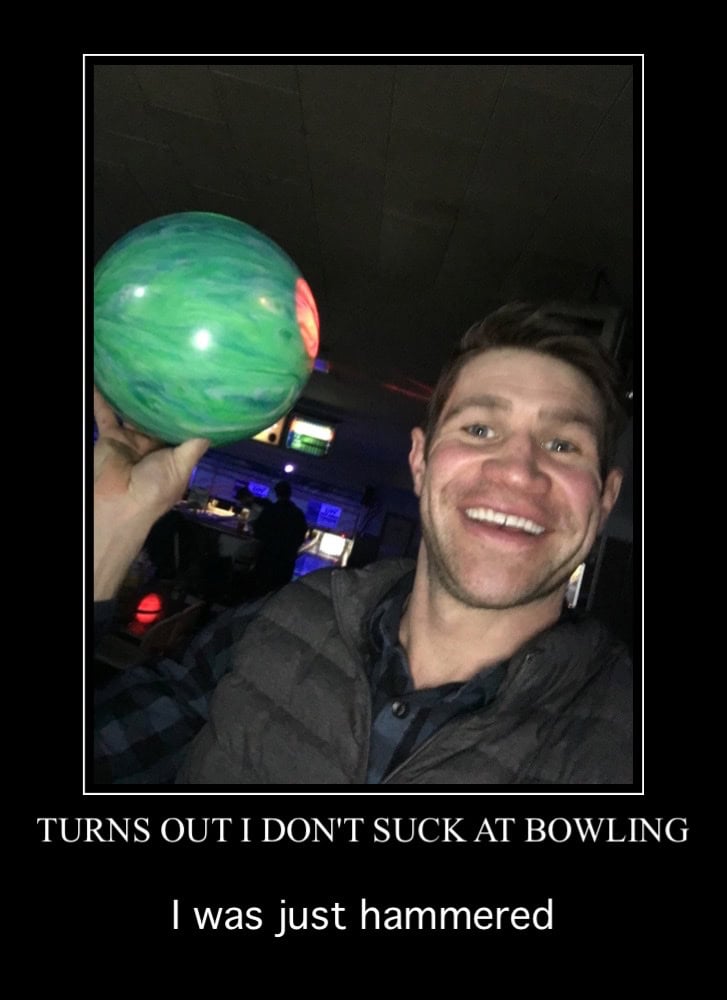
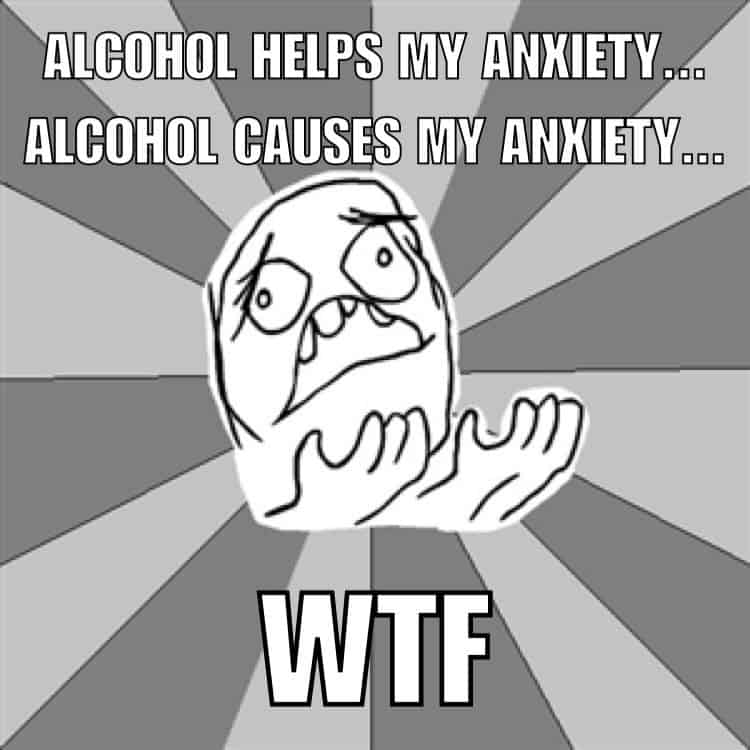
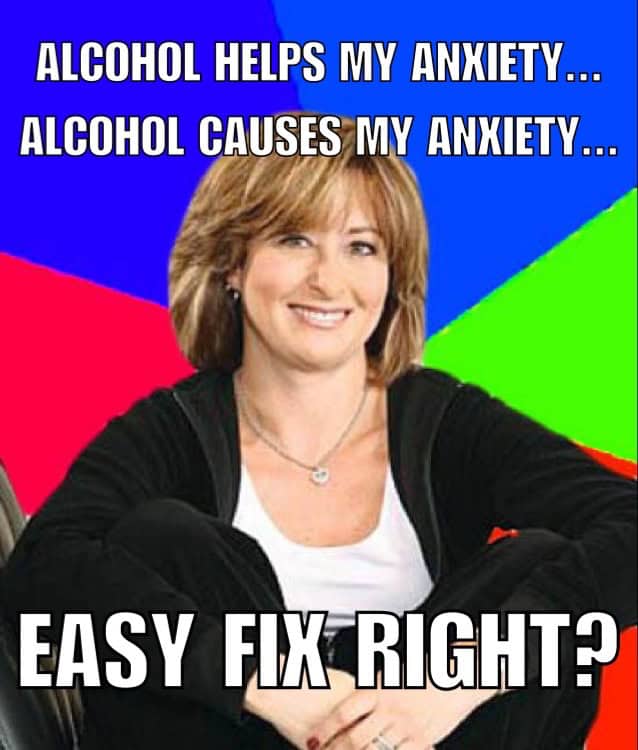
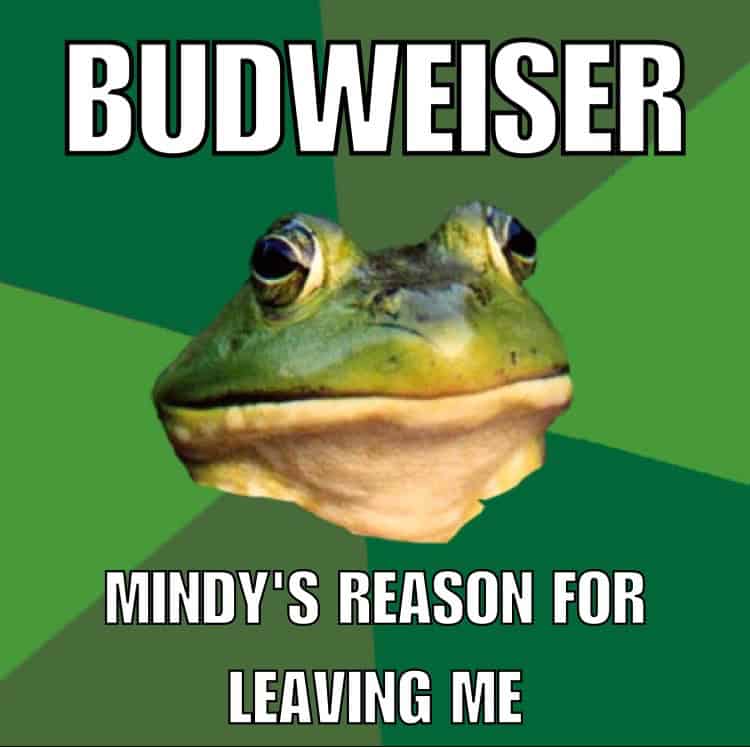
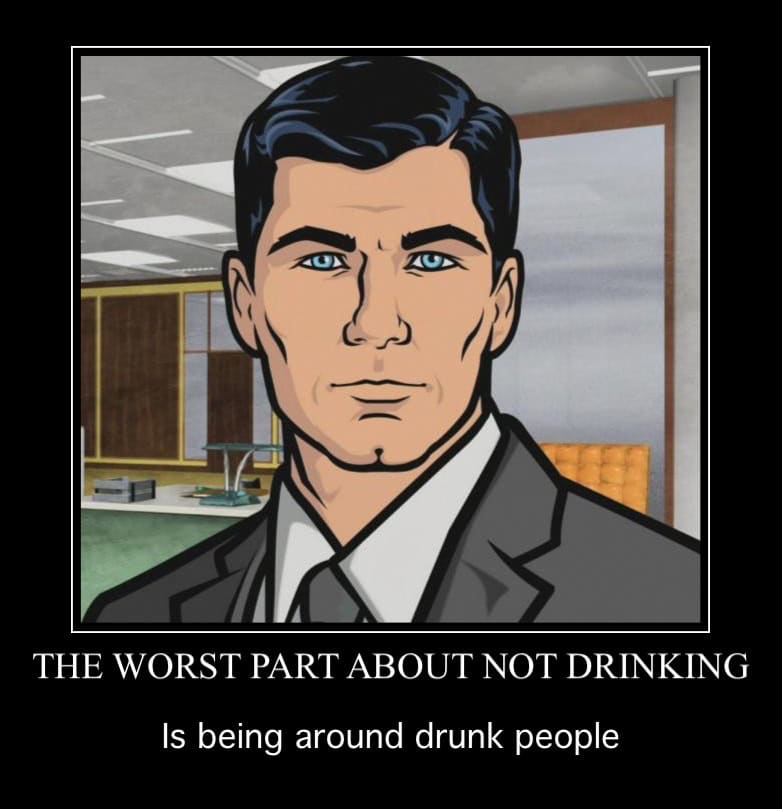
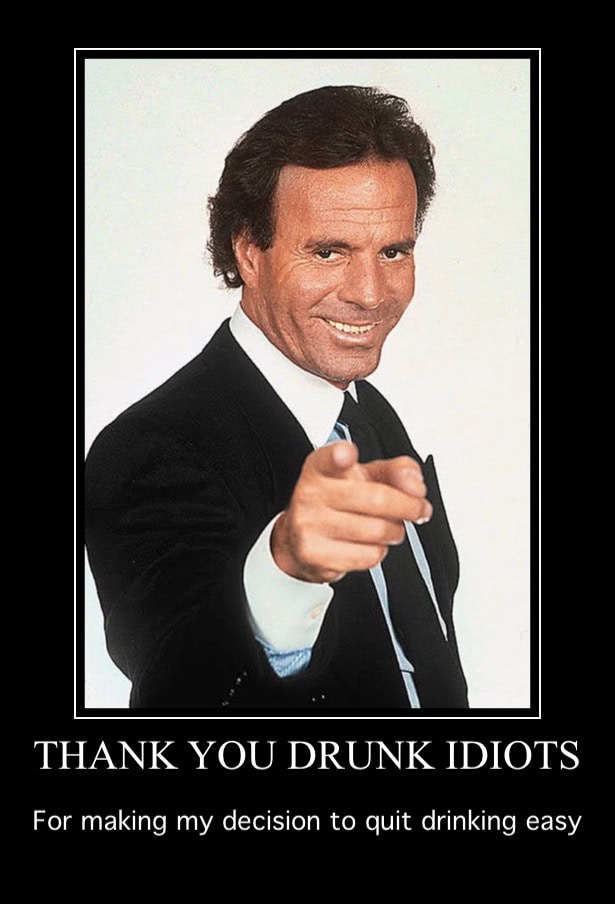
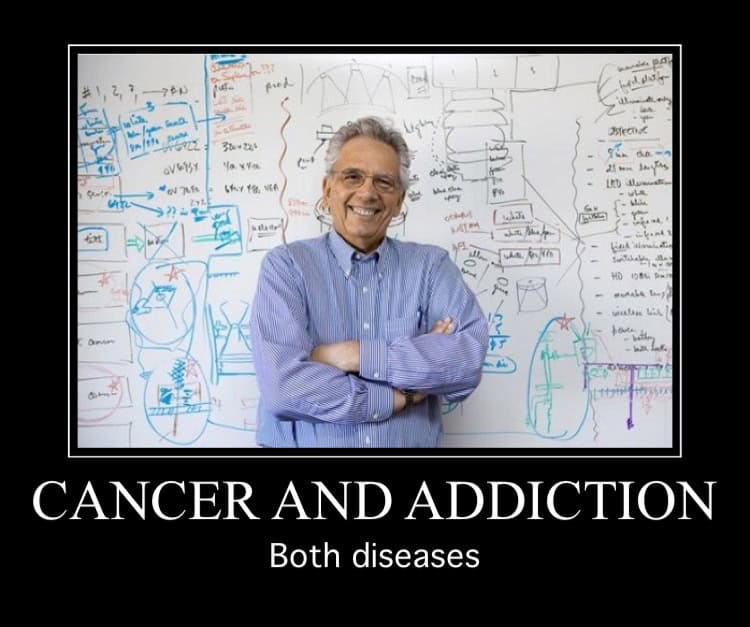
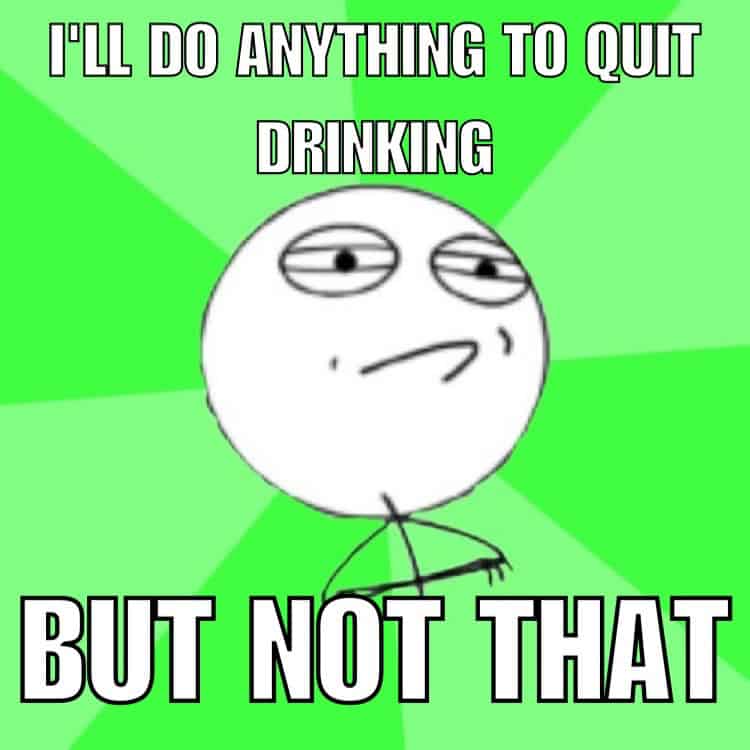
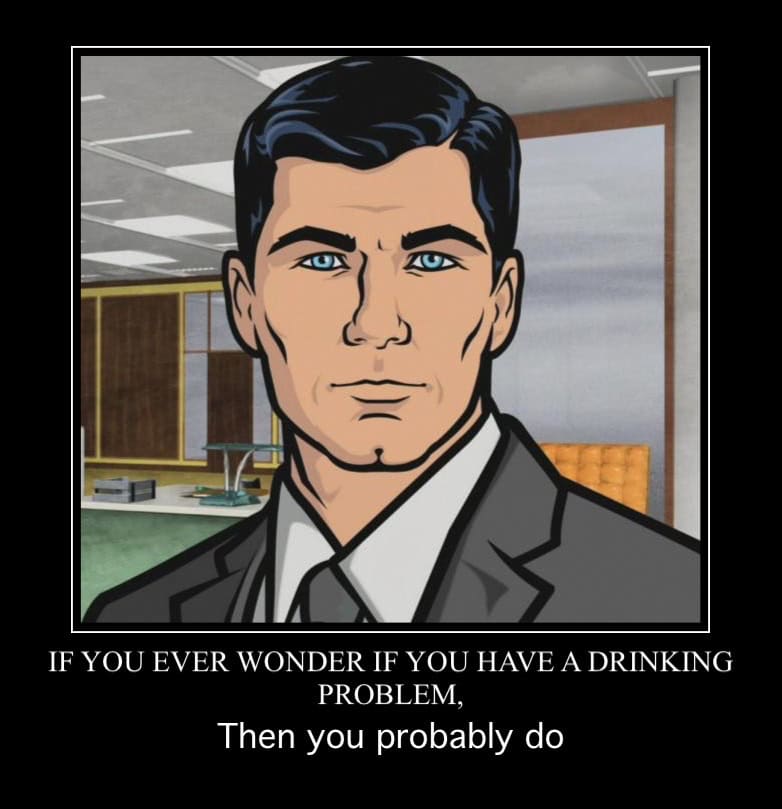
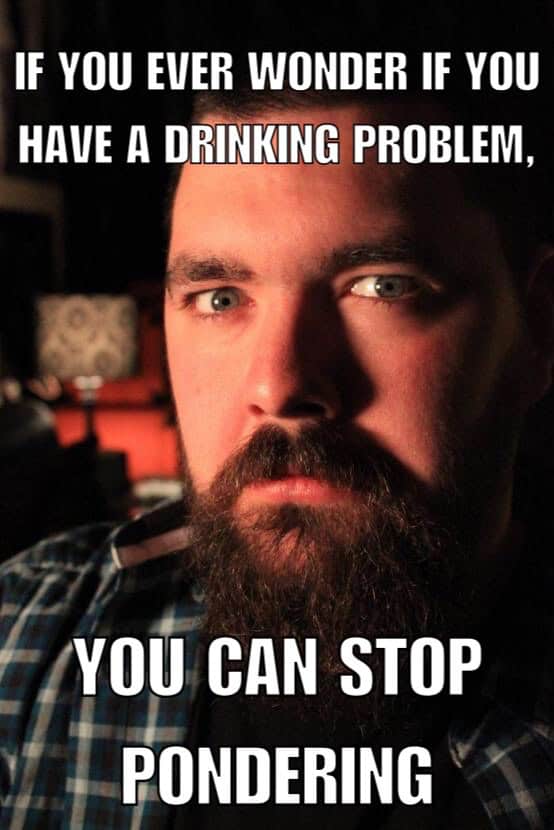
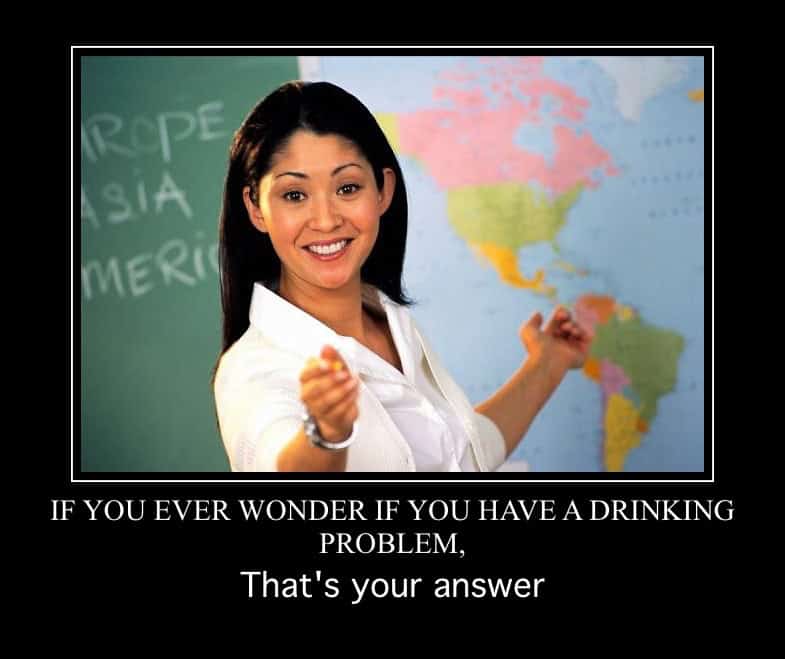
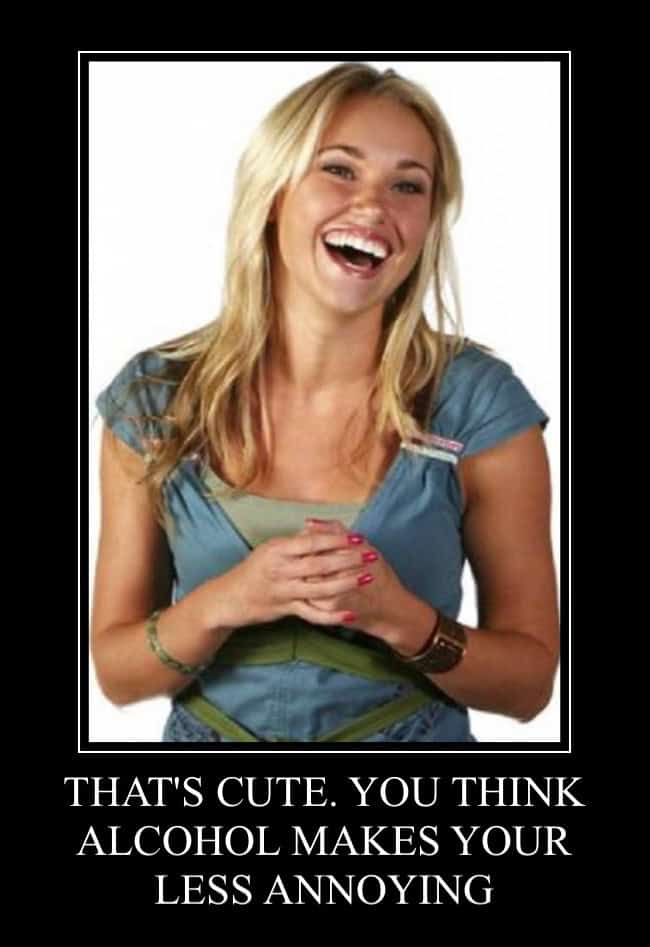
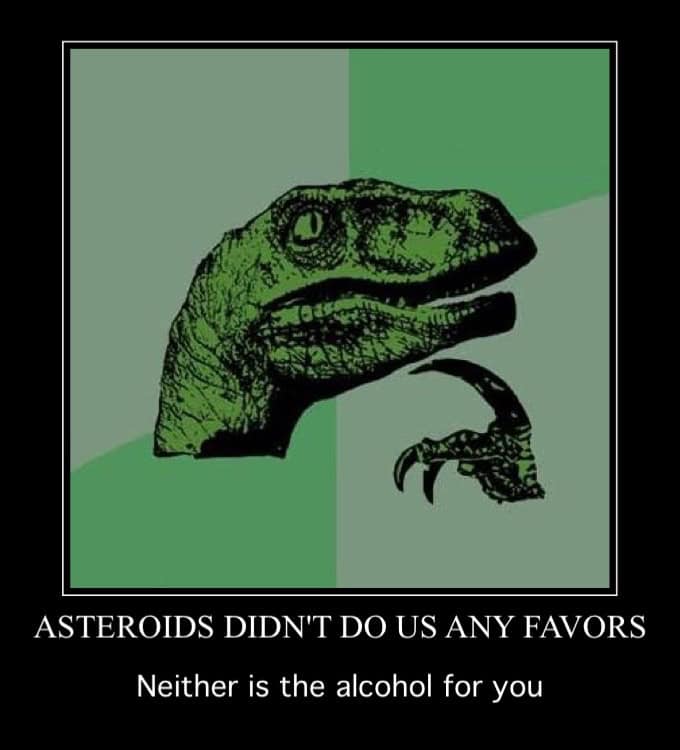
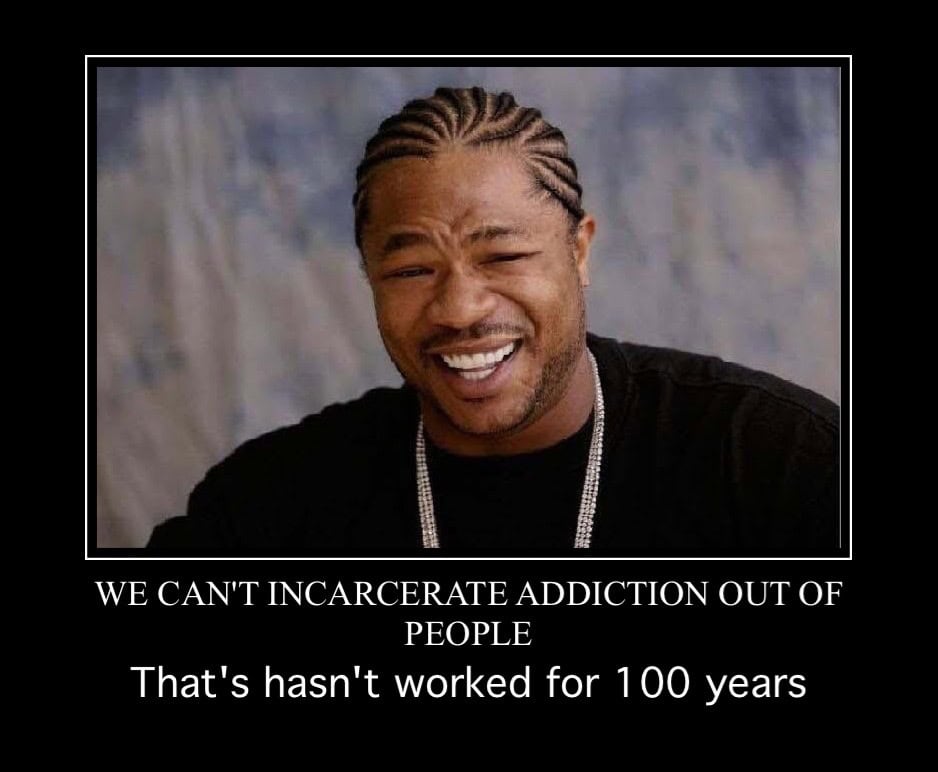
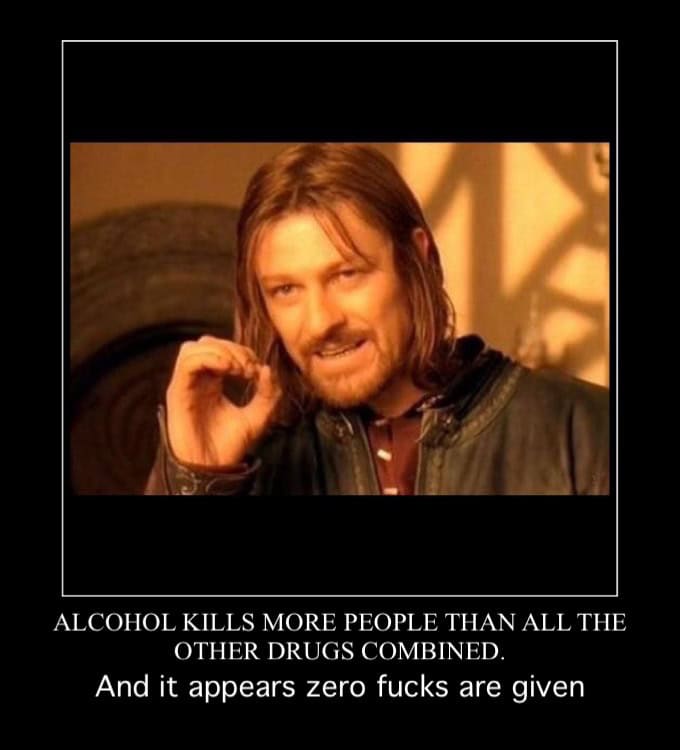
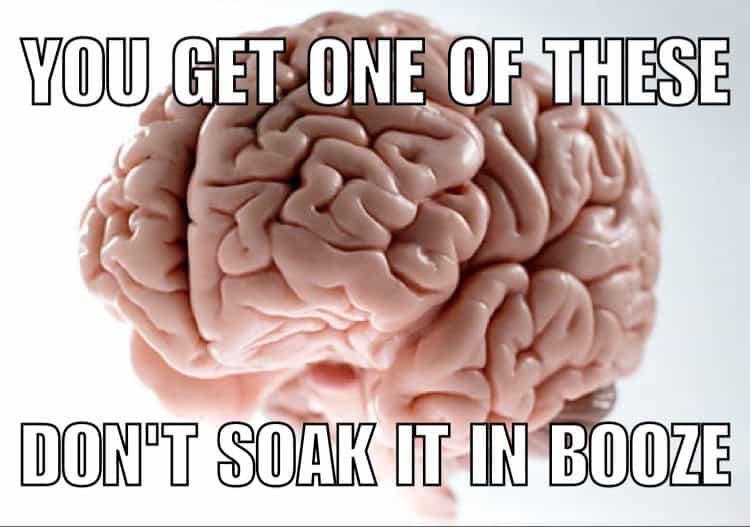
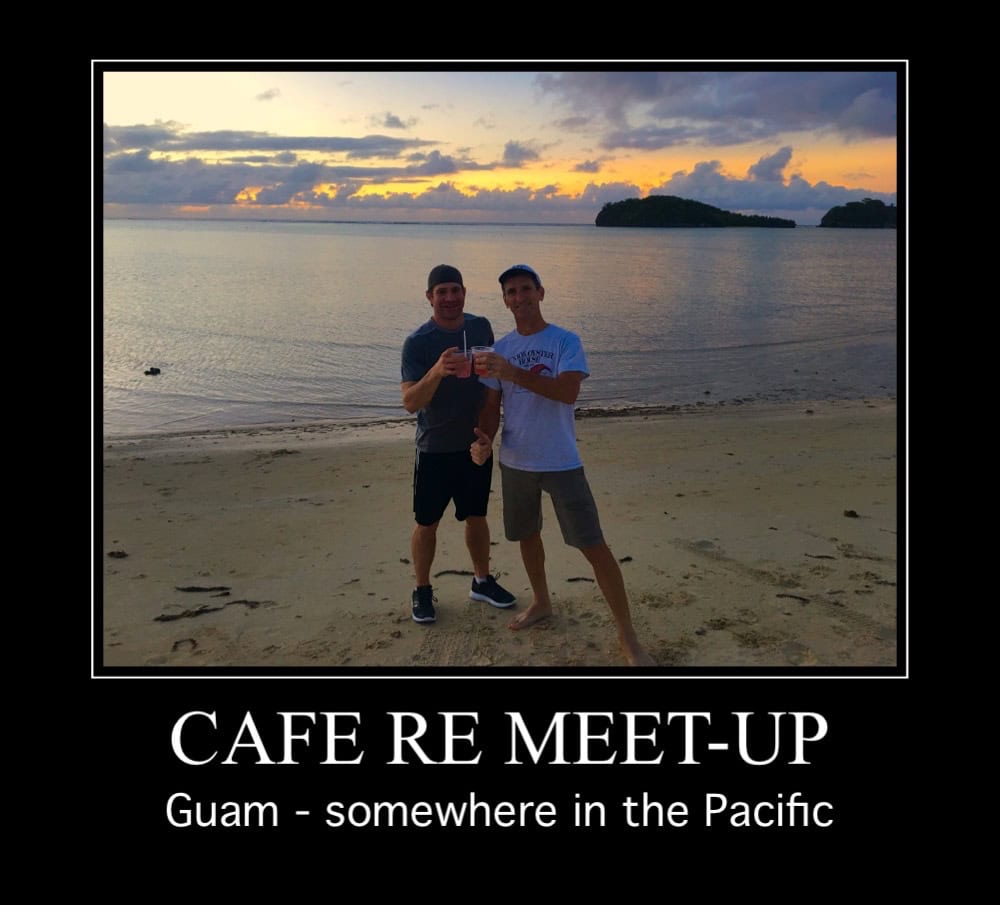
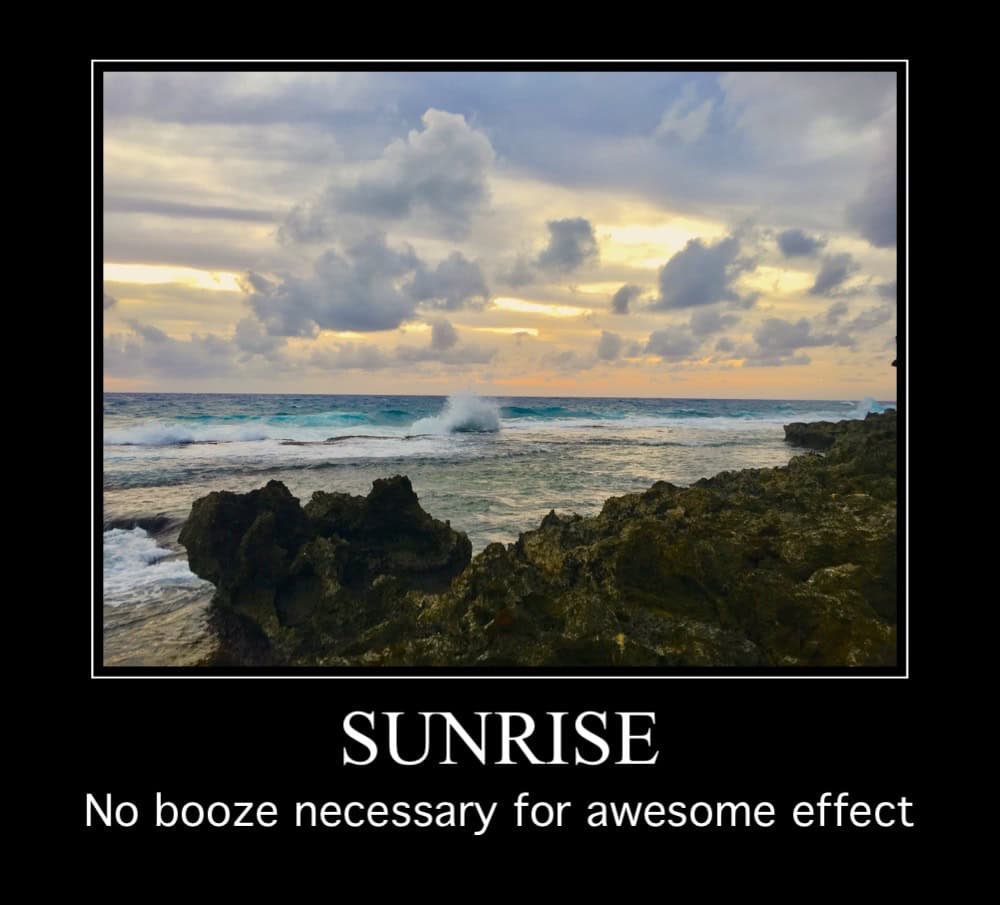
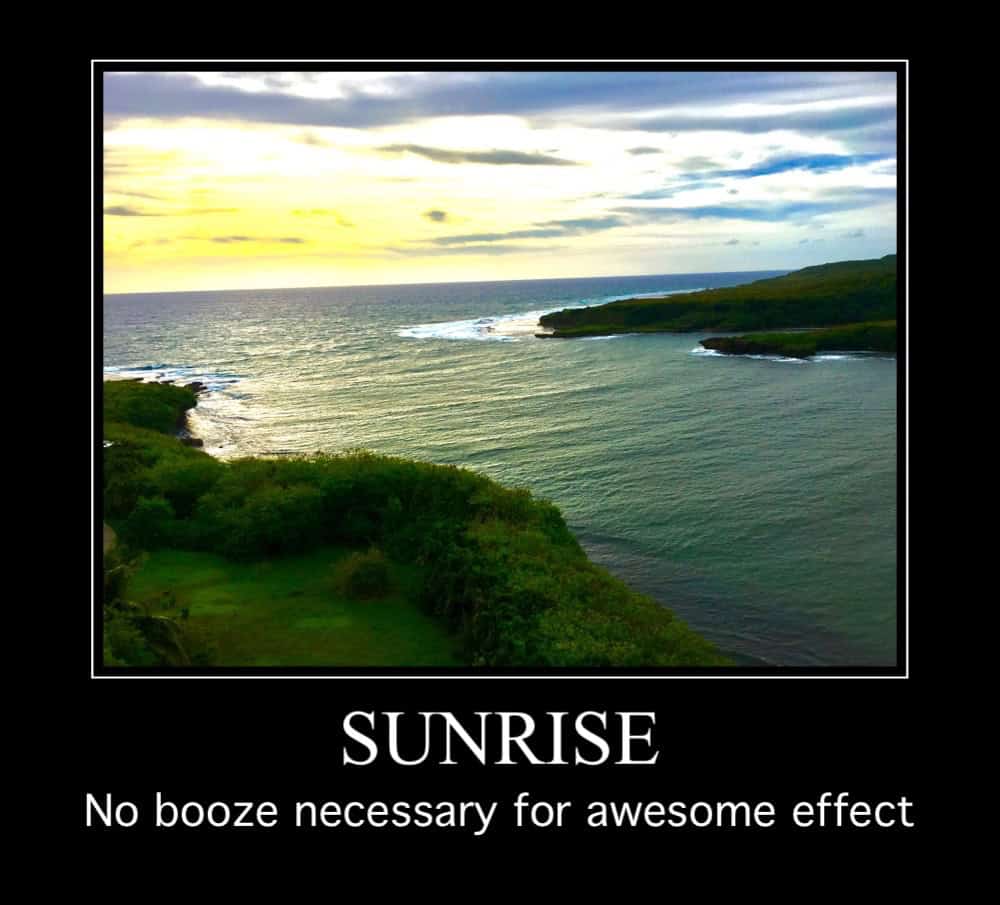
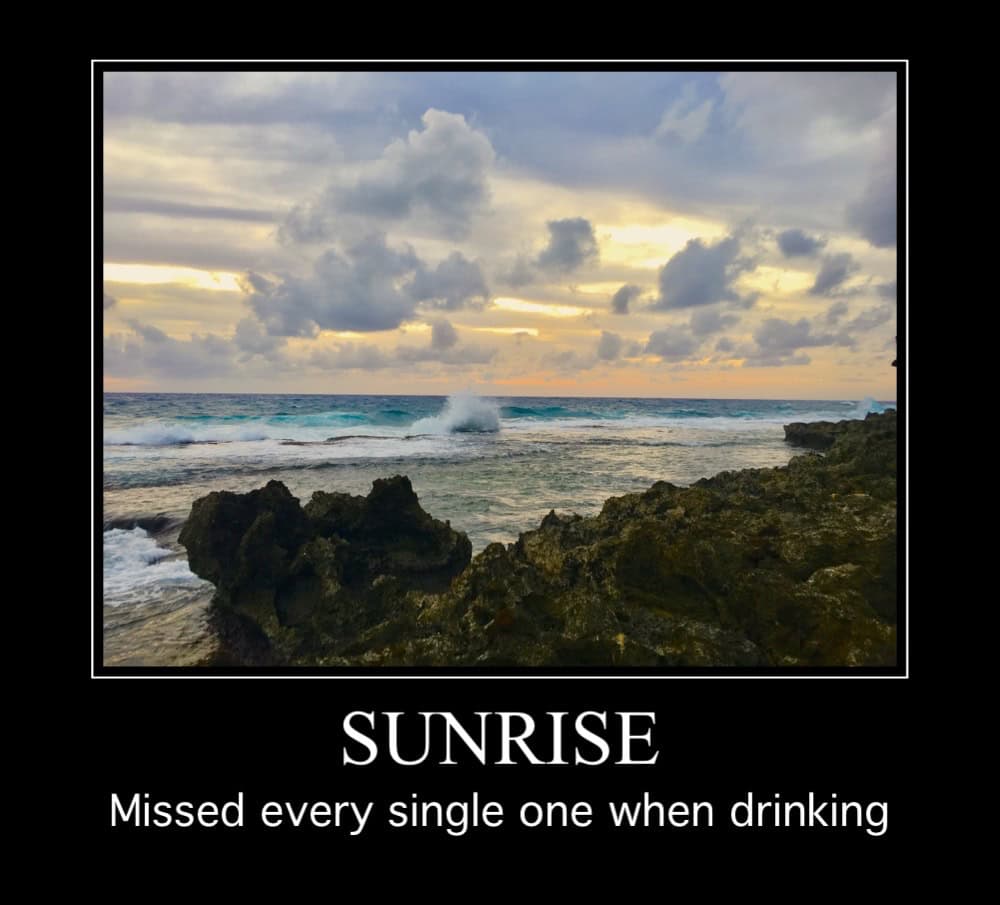
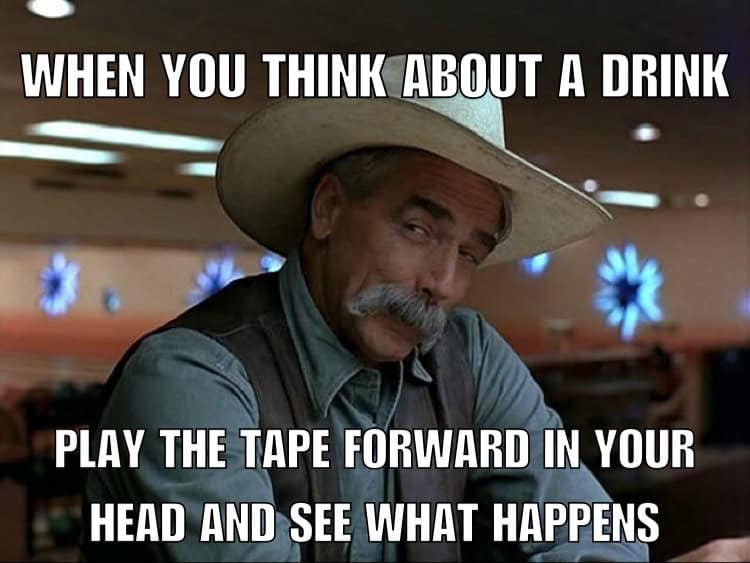
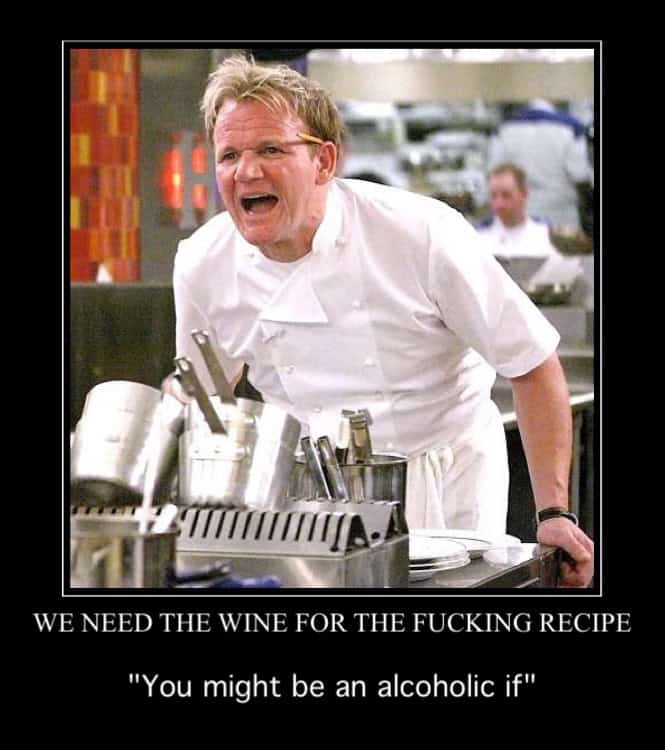
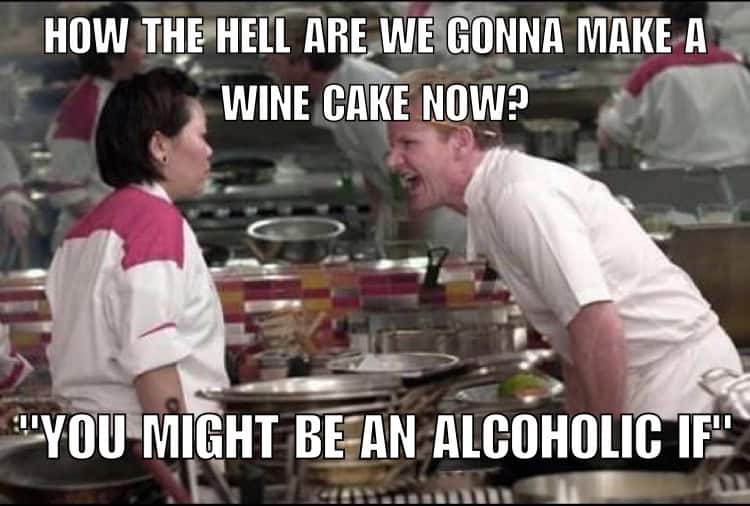
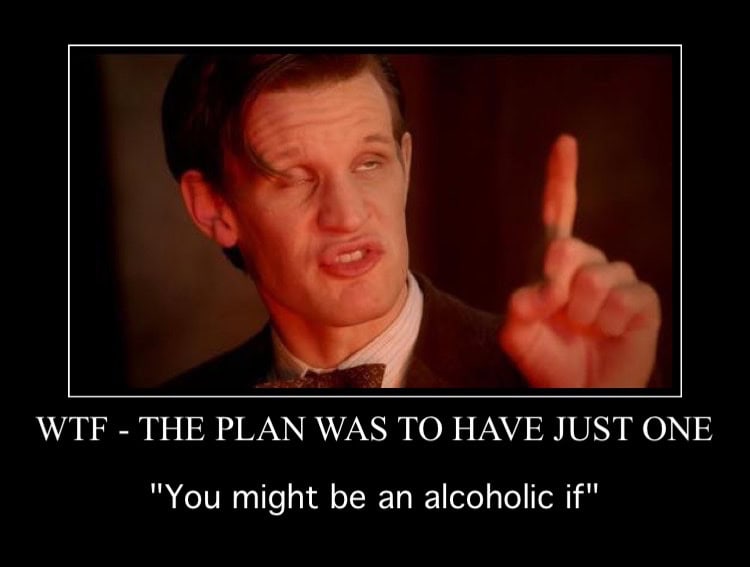
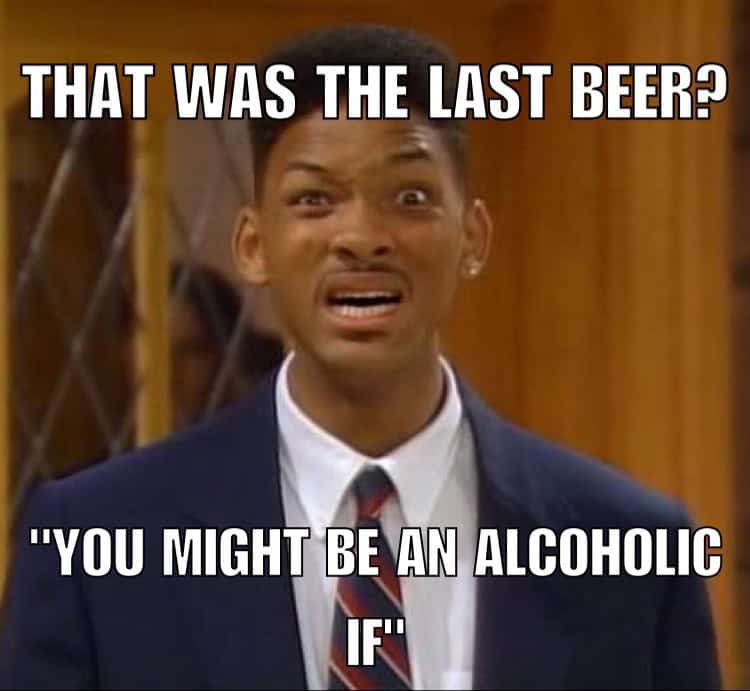
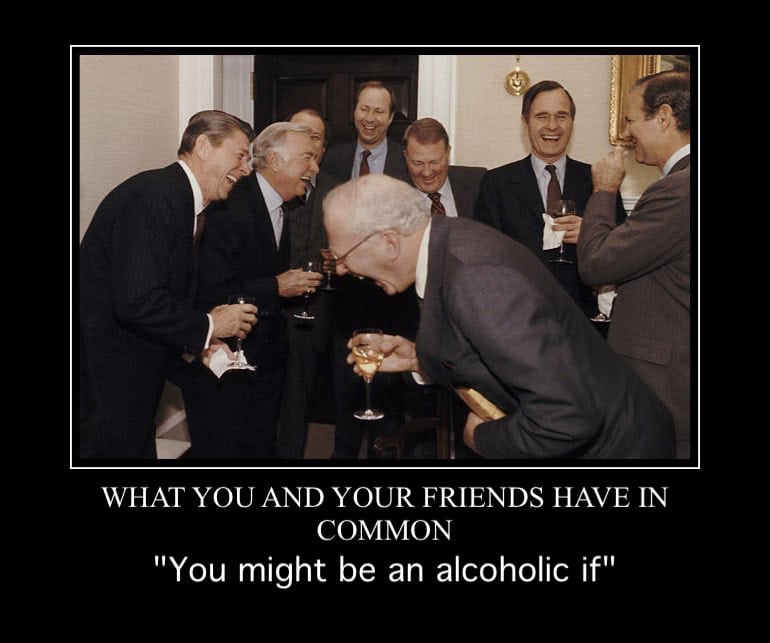
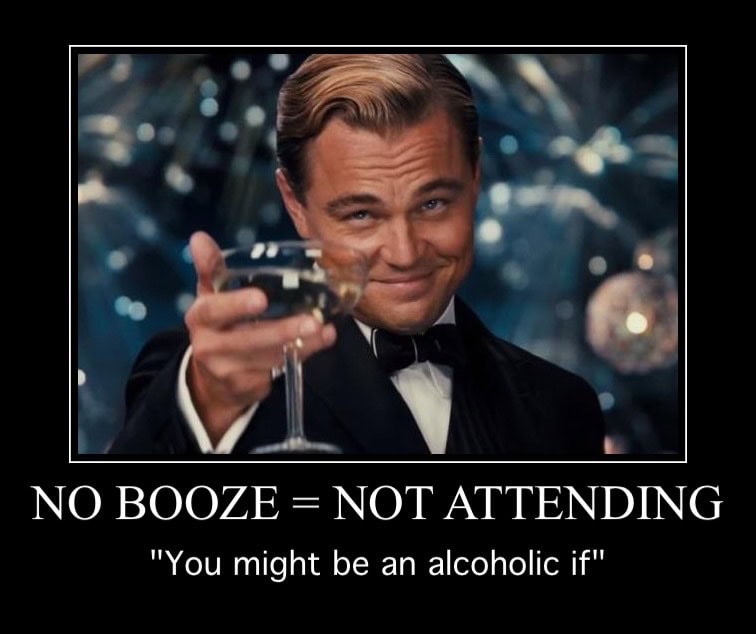
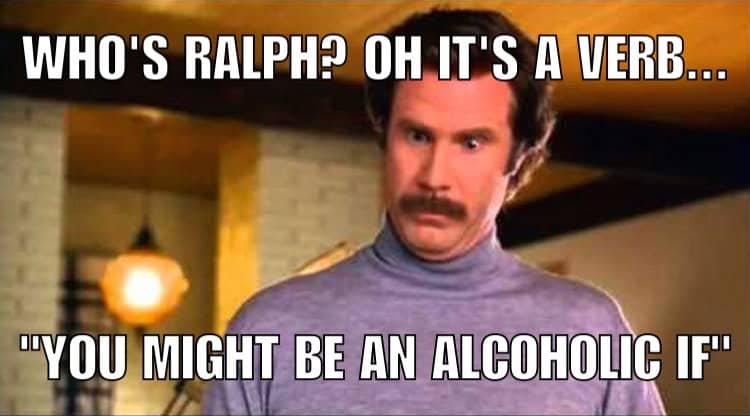
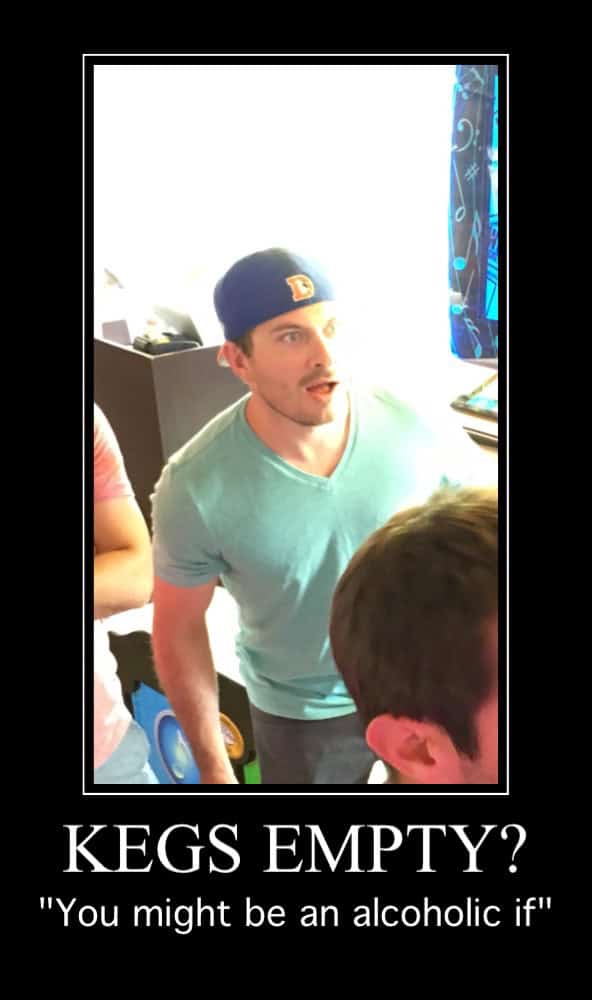
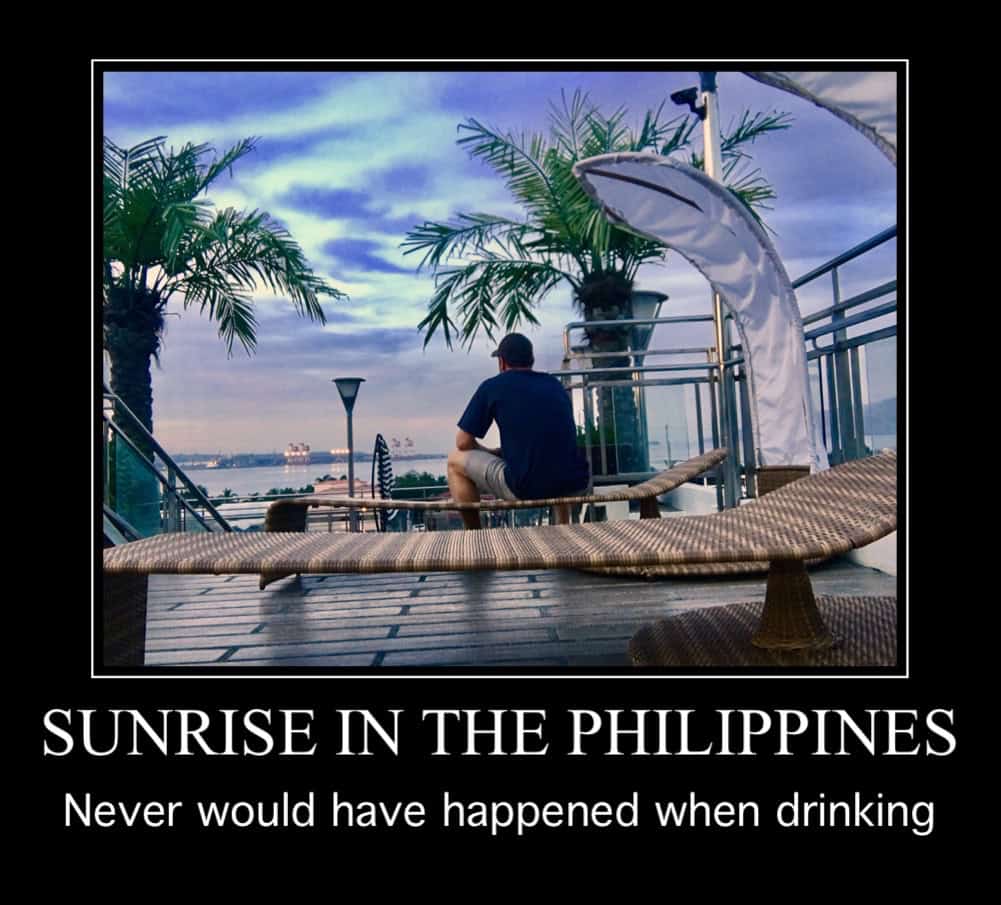
If you have any sober memes you’d like to add, send them to info@recoveryelevator.com. I found a free meme creator on the app store and I started creating memes. At first I thought it would be difficult creating sober recovery memes but once the creative juices starting flowing, I couldn’t keep up with my mind. Memes, although simple in nature, can be a powerful representation of how amazing sobriety can be. If you’re looking to get sober, I recommend downloading a meme app and creating some sober memes. They are a lot of fun to make.
Paul






















































































































